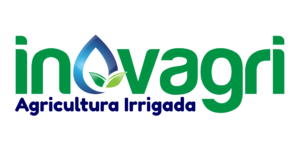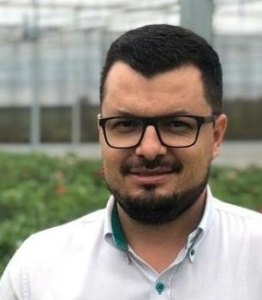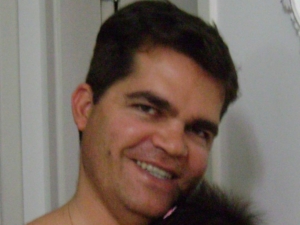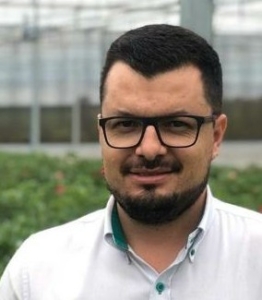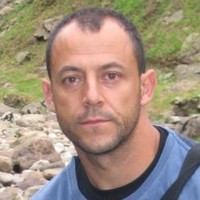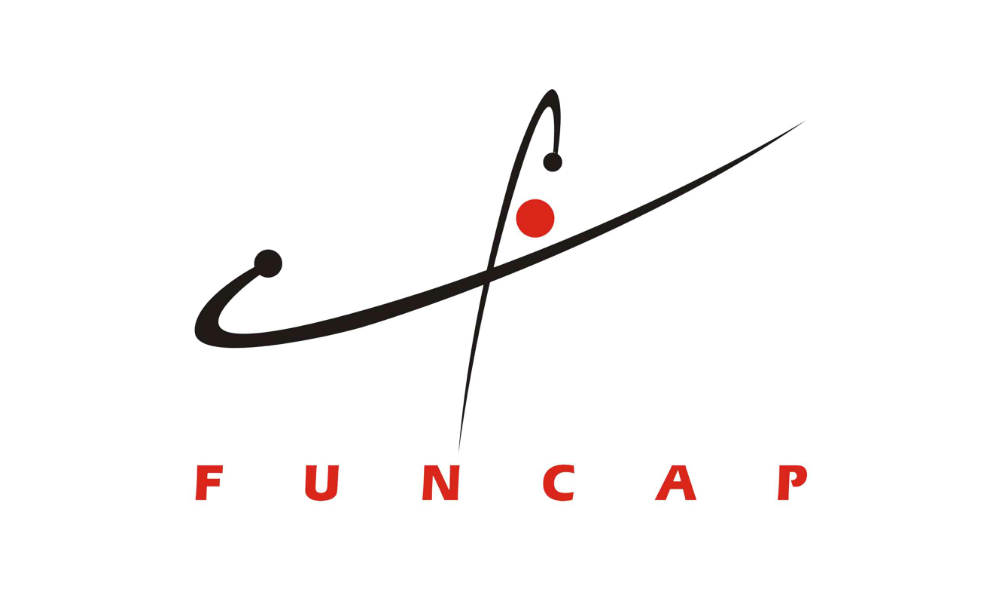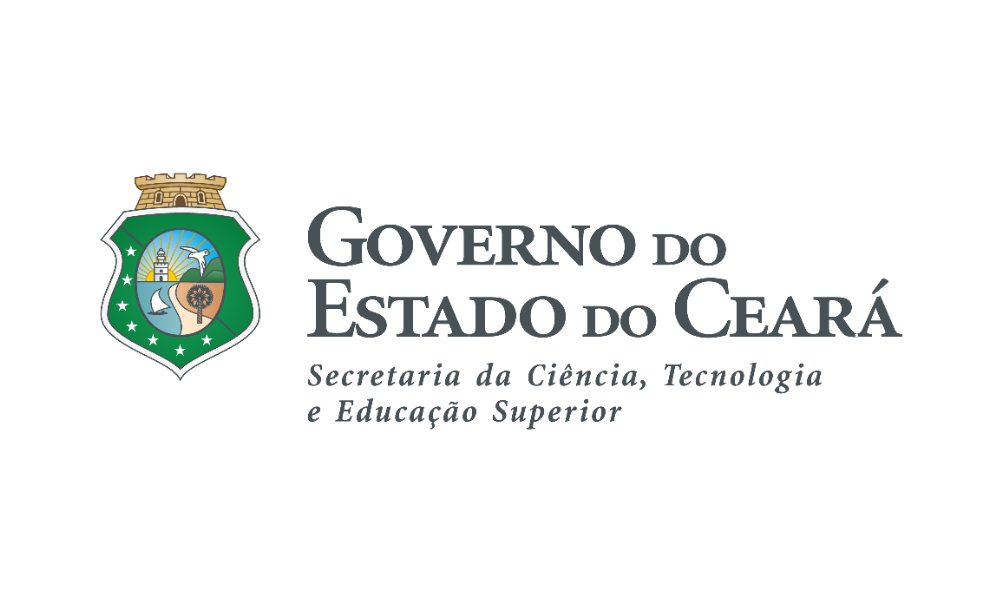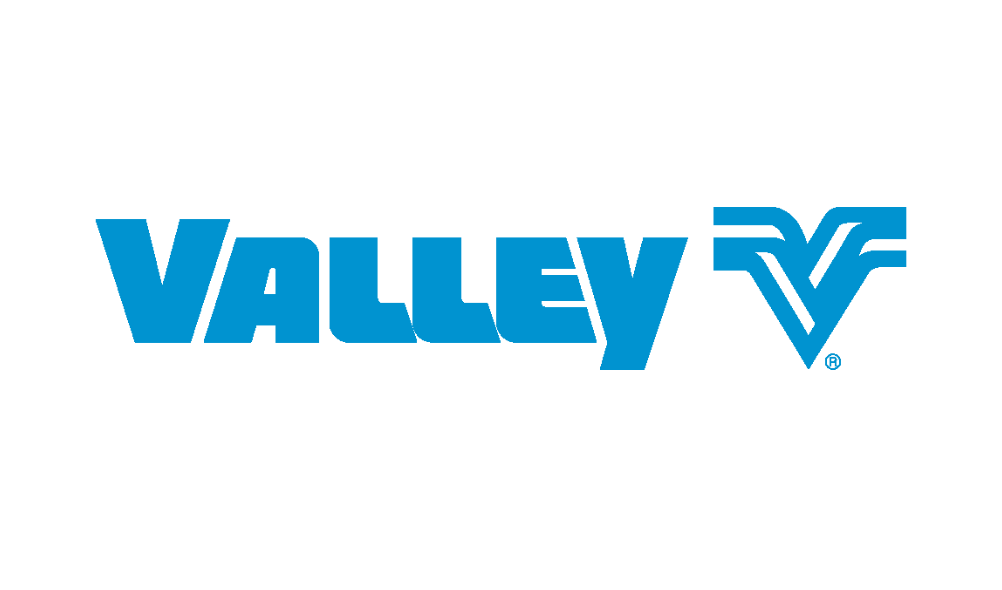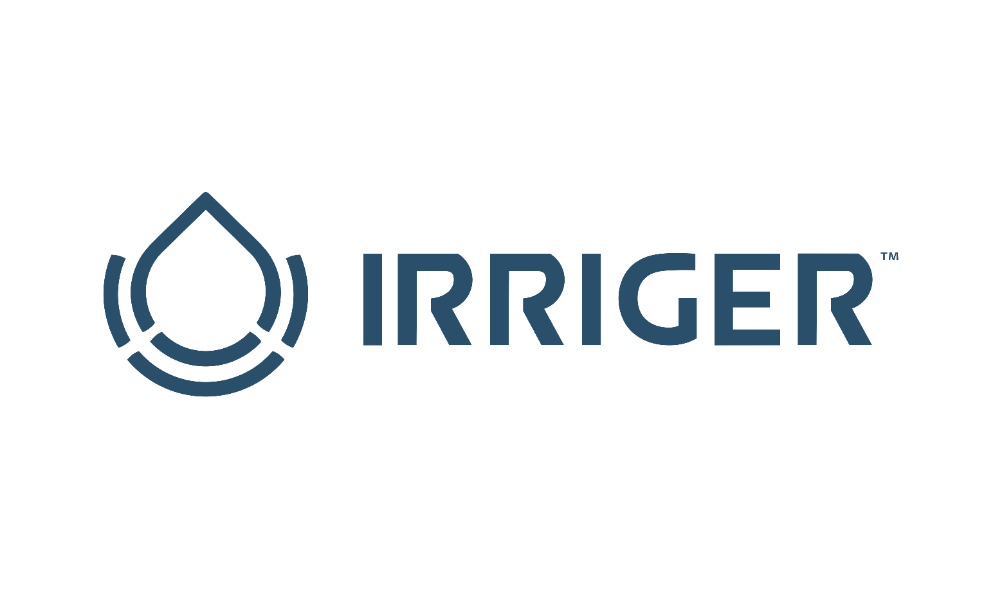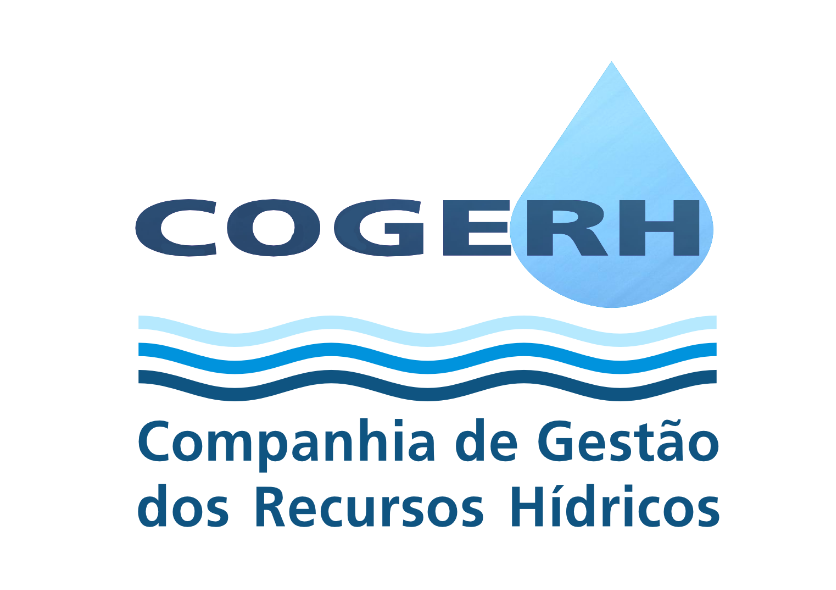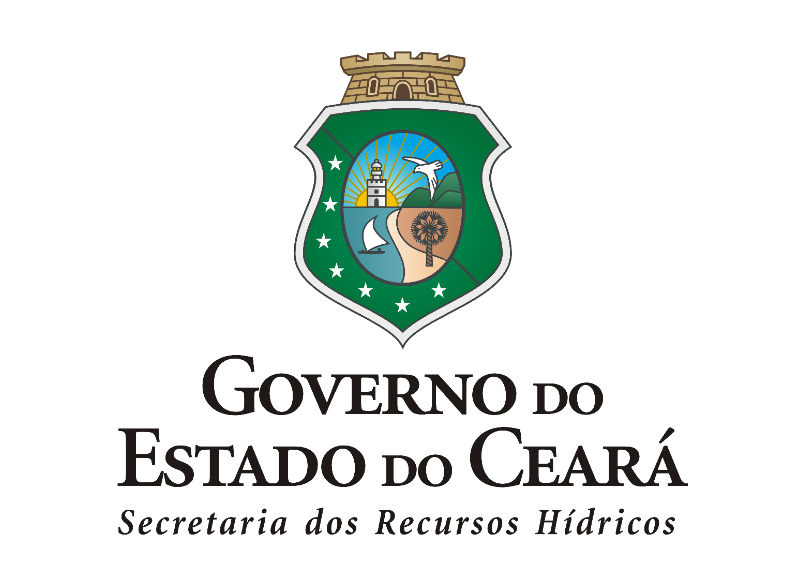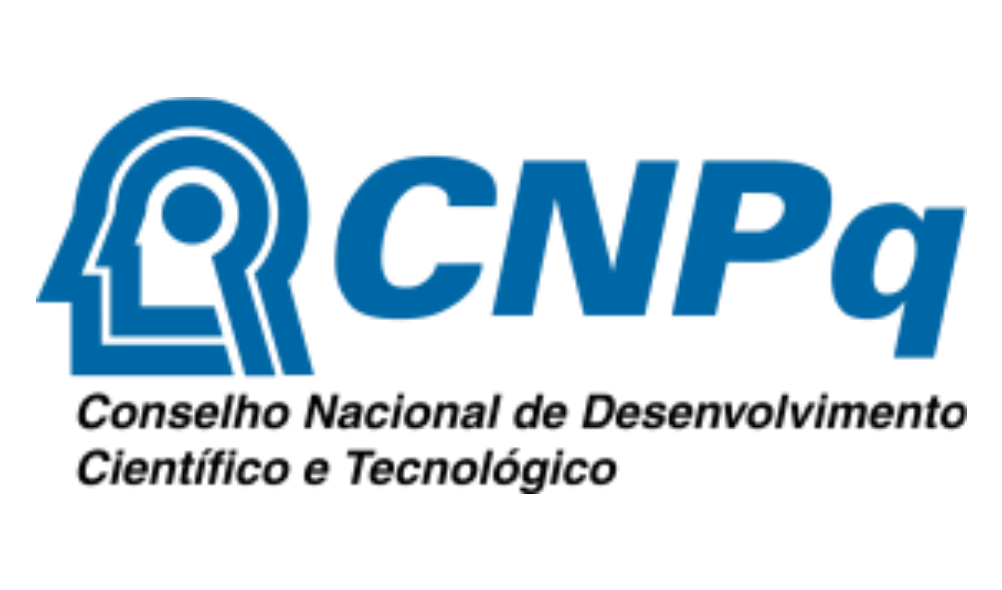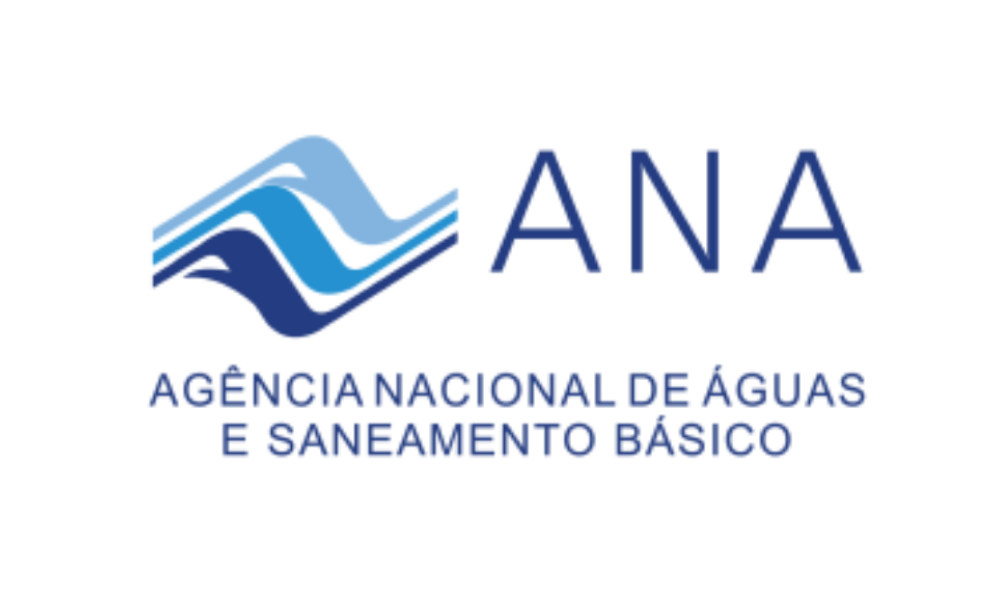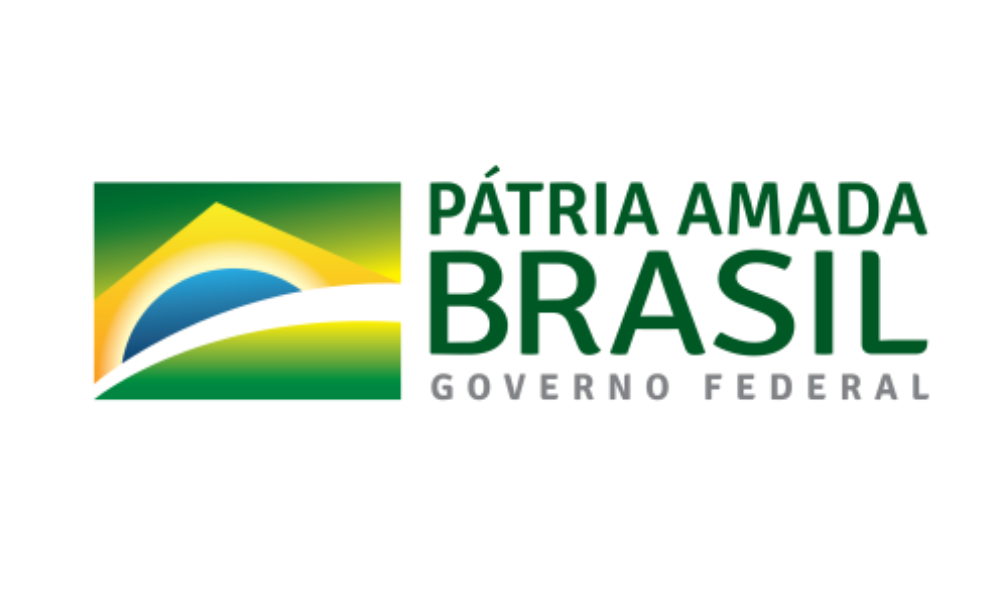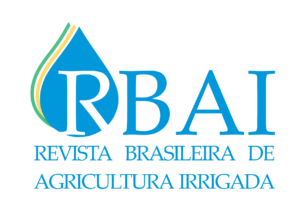
PALESTRANTES CONFIRMADOS
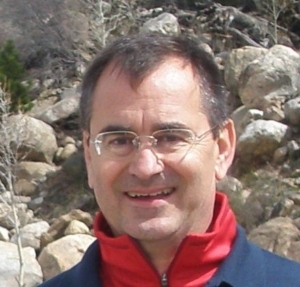 Agronomist, PhD from the University of Córdoba (Spain), scientific researcher at the Sustainable Agriculture Institute of CSIC, in Córdoba and member of the Water for Food Global institute at the University of Nebraska. His specialty is management, irrigation engineering and hydrology. He was a visiting researcher at CSIRO (Australia) and at the Universities of California-Davis, Nebraska-Lincoln and São Paulo. He also collaborated with international organizations such as FAO, where he was an international specialist. He currently develops his research activity mainly in Andalucía (Spain), but also in Sub-Saharan Africa and Latin America. Luciano Mateos regularly publishes articles on irrigation in international magazines.
Agronomist, PhD from the University of Córdoba (Spain), scientific researcher at the Sustainable Agriculture Institute of CSIC, in Córdoba and member of the Water for Food Global institute at the University of Nebraska. His specialty is management, irrigation engineering and hydrology. He was a visiting researcher at CSIRO (Australia) and at the Universities of California-Davis, Nebraska-Lincoln and São Paulo. He also collaborated with international organizations such as FAO, where he was an international specialist. He currently develops his research activity mainly in Andalucía (Spain), but also in Sub-Saharan Africa and Latin America. Luciano Mateos regularly publishes articles on irrigation in international magazines.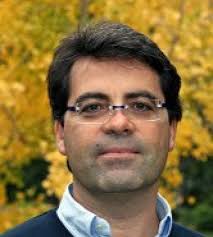 Danielle Zaccaria, a specialist in Cooperative Extension, an assistant in the Department of Land, Air and Water Resources, specializes in water management and irrigation. Zaccaria holds a doctorate in civil and environmental engineering from Utah State University. He served as a researcher at the International Center for Advanced Agronomic Studies in the Mediterranean in Italy before joining UC Davis College in 2013.
Danielle Zaccaria, a specialist in Cooperative Extension, an assistant in the Department of Land, Air and Water Resources, specializes in water management and irrigation. Zaccaria holds a doctorate in civil and environmental engineering from Utah State University. He served as a researcher at the International Center for Advanced Agronomic Studies in the Mediterranean in Italy before joining UC Davis College in 2013.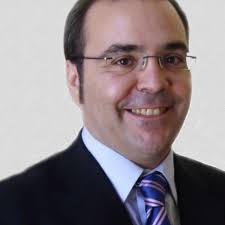 PhD in Agricultural Engineering, works at the Andalusian Institute for Agricultural Research and Training in Fisheries, Food and Organic Production (IFAPA). Specialist in Management of water distribution systems for sustainable agriculture. Current research: sustainable management in the irrigation automation community and control of water distribution systems, evaluation of energy efficiency and the application of irrigation and hydrometry methods. Calibration of meter elements to measure water consumption.
PhD in Agricultural Engineering, works at the Andalusian Institute for Agricultural Research and Training in Fisheries, Food and Organic Production (IFAPA). Specialist in Management of water distribution systems for sustainable agriculture. Current research: sustainable management in the irrigation automation community and control of water distribution systems, evaluation of energy efficiency and the application of irrigation and hydrometry methods. Calibration of meter elements to measure water consumption.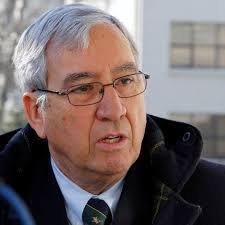 hD in Philosophy in Engineering, Water Resources University of California, USA. Agronomist, University of Concepción. AREAS OF SPECIALTY: Optimization of Water Resources in Agriculture and Irrigation Systems. PROFESSIONAL DEVELOPMENT: Full Professor / Emeritus at the Faculty of Agricultural Engineering at the Universidad de Concepción. Undergraduate courses: Design of micro irrigation systems, Hydraulic Surface Irrigation. Postgraduate courses taught: Water Resource Optimization. NETWORKS IN WHICH YOU COLLABORATE: National Council for Innovation for Development CNID, UCDavis Chile, Colegio Posgrado Chapingo
hD in Philosophy in Engineering, Water Resources University of California, USA. Agronomist, University of Concepción. AREAS OF SPECIALTY: Optimization of Water Resources in Agriculture and Irrigation Systems. PROFESSIONAL DEVELOPMENT: Full Professor / Emeritus at the Faculty of Agricultural Engineering at the Universidad de Concepción. Undergraduate courses: Design of micro irrigation systems, Hydraulic Surface Irrigation. Postgraduate courses taught: Water Resource Optimization. NETWORKS IN WHICH YOU COLLABORATE: National Council for Innovation for Development CNID, UCDavis Chile, Colegio Posgrado Chapingo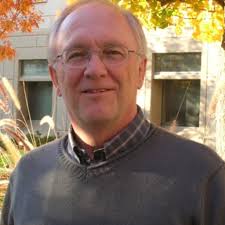 Ph.D. in Agricultural Climatology from Iowa State University, Ames, Dr. Snyder has expertise in biometeorology, climatology, irrigation management, evapotranspiration modeling, frost protection, energy balance in irrigated areas and climate risk analysis. He was one of the creators of the California Irrigation Management Information System (CIMIS). He is currently a meteorology specialist at the University of California, Davis and works with the California Department of Water Resources on several projects.
Ph.D. in Agricultural Climatology from Iowa State University, Ames, Dr. Snyder has expertise in biometeorology, climatology, irrigation management, evapotranspiration modeling, frost protection, energy balance in irrigated areas and climate risk analysis. He was one of the creators of the California Irrigation Management Information System (CIMIS). He is currently a meteorology specialist at the University of California, Davis and works with the California Department of Water Resources on several projects.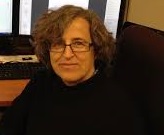 She works as a researcher at the CSIC Institute of Sustainable Agriculture (IAS). Agronomist from the University of Córdoba and doctor from the Australian National University, she has worked on water use efficiency and sustainable intensification of annual cropping systems in Syria, Australia, Mauritania, California and Spain. In 1998, he joined FAO as an Agriculture Officer to provide technical support to developing countries on issues related to cereal production and participatory research strategies in agronomy. In 2004 he joined the Institute of Sustainable Agriculture (IAS-CSIC) where he started a line of work in conservation agriculture and from where he continues to support other countries.
She works as a researcher at the CSIC Institute of Sustainable Agriculture (IAS). Agronomist from the University of Córdoba and doctor from the Australian National University, she has worked on water use efficiency and sustainable intensification of annual cropping systems in Syria, Australia, Mauritania, California and Spain. In 1998, he joined FAO as an Agriculture Officer to provide technical support to developing countries on issues related to cereal production and participatory research strategies in agronomy. In 2004 he joined the Institute of Sustainable Agriculture (IAS-CSIC) where he started a line of work in conservation agriculture and from where he continues to support other countries.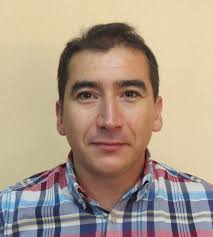 Civil Agricultural Engineer and PhD in Engineering from the University of Nebraska, Luis Octavio Lagos, is currently Director of the Department of Water Resources at the Faculty of Agricultural Engineering at the Universidad de Concepción. He is part of the team at the Research and Technologies Laboratory for Water Resources Management in Agriculture, ITECMA2, and is part of the management team at the Water Resources Research Center for Agriculture and Mining. His research focuses mainly on water resources, engineering applied to irrigation systems and water management in agriculture. This becomes visible through his research aimed at precision irrigation with central pivots and the study of the amount of water needed for each crop using satellite images.
Civil Agricultural Engineer and PhD in Engineering from the University of Nebraska, Luis Octavio Lagos, is currently Director of the Department of Water Resources at the Faculty of Agricultural Engineering at the Universidad de Concepción. He is part of the team at the Research and Technologies Laboratory for Water Resources Management in Agriculture, ITECMA2, and is part of the management team at the Water Resources Research Center for Agriculture and Mining. His research focuses mainly on water resources, engineering applied to irrigation systems and water management in agriculture. This becomes visible through his research aimed at precision irrigation with central pivots and the study of the amount of water needed for each crop using satellite images.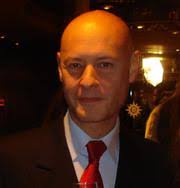 Master in Hydraulic Engineering by the Polytechnic of Bari and PhD. In Irrigation Engineering at the Technical University of Lisbon, Lamaddalena has worked for over 20 years in agricultural engineering and water resources management, with a focus on design, performance analysis and management of water systems. large-scale distribution, new delivery technologies with associated modeling development in conditions of water scarcity, governance models of Water Users Associations. He served as a university professor at the Polytechnic of Bari (Italy) from 2007 to 2012. Scientific and technical activities were combined with the management of many water-related development projects in southern Europe, northern Africa and the Near East, also in cooperation with International Research Centers and Universities.
Master in Hydraulic Engineering by the Polytechnic of Bari and PhD. In Irrigation Engineering at the Technical University of Lisbon, Lamaddalena has worked for over 20 years in agricultural engineering and water resources management, with a focus on design, performance analysis and management of water systems. large-scale distribution, new delivery technologies with associated modeling development in conditions of water scarcity, governance models of Water Users Associations. He served as a university professor at the Polytechnic of Bari (Italy) from 2007 to 2012. Scientific and technical activities were combined with the management of many water-related development projects in southern Europe, northern Africa and the Near East, also in cooperation with International Research Centers and Universities.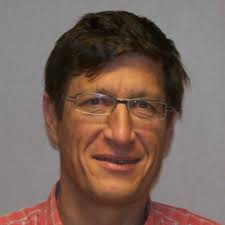 Researcher Responsible for the laboratory - IRSTEA, Montpelier (France) and Coordinator of R & D in Irrigation Technologies. He graduated in Agricultural Techniques Engineer (ENITA de Bordeaux) from 1983 to 1986. He holds a European Master's in Water Management in Agriculture (ENGREF et USTL) in 1990 - 1991. Doctor in agronomy (Montpellier Sup Agro). Senior Engineer, manager of the French National Laboratory for Research and Testing in Irrigation Equipment, Irstea (ex-Cemagref), Aix-en-provence, organizer of the International Network of Laboratory Tests in Irrigation (INITL). B. Molle is involved in several research projects to understand the paths of distribution systems (dripping and spraying) of performance in the real climate and the conditions of water quality.
Researcher Responsible for the laboratory - IRSTEA, Montpelier (France) and Coordinator of R & D in Irrigation Technologies. He graduated in Agricultural Techniques Engineer (ENITA de Bordeaux) from 1983 to 1986. He holds a European Master's in Water Management in Agriculture (ENGREF et USTL) in 1990 - 1991. Doctor in agronomy (Montpellier Sup Agro). Senior Engineer, manager of the French National Laboratory for Research and Testing in Irrigation Equipment, Irstea (ex-Cemagref), Aix-en-provence, organizer of the International Network of Laboratory Tests in Irrigation (INITL). B. Molle is involved in several research projects to understand the paths of distribution systems (dripping and spraying) of performance in the real climate and the conditions of water quality.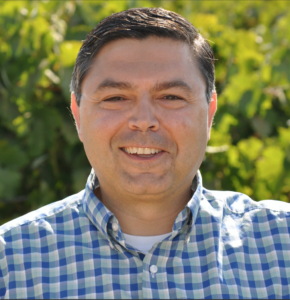 Assistant specialist in cooperative extension in viticulture in the Department of Viticulture and Oenology. It is based at the department's Oakville Station, a 40-acre research vineyard in Napa Valley. Kurtural received his Ph.D. in plant biology from Southern Illinois University Carbondale. He was an associate professor in viticulture and oenology at Fresno State before joining UC Davis faculty in 2015.
Assistant specialist in cooperative extension in viticulture in the Department of Viticulture and Oenology. It is based at the department's Oakville Station, a 40-acre research vineyard in Napa Valley. Kurtural received his Ph.D. in plant biology from Southern Illinois University Carbondale. He was an associate professor in viticulture and oenology at Fresno State before joining UC Davis faculty in 2015.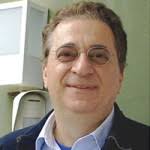 Master's degree in Israel at the Faculty of Agriculture in Rehovot of the Hebrew University of Jerusalem and research at the Volcani Center between 1987 - 1990. Focus on irrigated and fertigated field and horticultural crops. Extending the season in Israel in Genetics and Plant Physiology at the seed companies Zeraim Gedera and Hazera between 1991 - 1995. In 1996, I returned to Brazil, after 10 years in Israel with consulting activities in fertigation, in addition to having worked for 5 years in Haifa Chemicals between 1999 - 2004, and 11 years at ICL Fertilizantes Especiais between 2007 - 2017. Currently a consultant for Dimenstein Consultoria on topics of fertigation and plant nutrition. Consultant for the development of new special fertilizers for ADOB from Poland.
Master's degree in Israel at the Faculty of Agriculture in Rehovot of the Hebrew University of Jerusalem and research at the Volcani Center between 1987 - 1990. Focus on irrigated and fertigated field and horticultural crops. Extending the season in Israel in Genetics and Plant Physiology at the seed companies Zeraim Gedera and Hazera between 1991 - 1995. In 1996, I returned to Brazil, after 10 years in Israel with consulting activities in fertigation, in addition to having worked for 5 years in Haifa Chemicals between 1999 - 2004, and 11 years at ICL Fertilizantes Especiais between 2007 - 2017. Currently a consultant for Dimenstein Consultoria on topics of fertigation and plant nutrition. Consultant for the development of new special fertilizers for ADOB from Poland.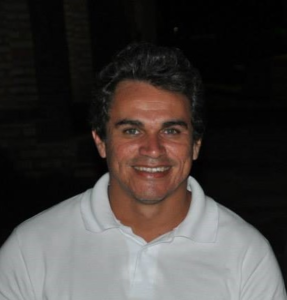 Graduated in Agronomic Engineering from the Federal Rural University of the Semi-Arid (1999), master's degree in Agricultural Engineering from the Federal University of Paraíba (2001) and doctorate in Irrigation and Drainage from the University of São Paulo (ESALq-USP, 2005) and post- PhD in plant physiology from the Federal University of Ceará (UFC) (2012). He was Coordinator of the Graduate Program in Soil Science and Vice Coordinator of the Graduate Program in Soil and Water Management / UFERSA. He is an associate professor in the Department of Agronomy and eng. Forestry of the Agricultural Sciences Center of the Federal Rural University of the Semi-arid; general supervisor of the Laboratory of Soil Water and Plant Analysis (LASAP / UFERSA) and researcher at the National Institute of Science and Technology in Salinity (INCTSal). He acts as an advisor for undergraduate students in Agronomy and for postgraduate students in Soil and Water Management (Master and Doctorate). It mainly works on the following themes: Efficiency in the use of water and nutrients by plants; Tolerance of agricultural crops to salinity; use and management of saline and wastewater for irrigation; Management of saline and sodium soils; Plant ecophysiology.
Graduated in Agronomic Engineering from the Federal Rural University of the Semi-Arid (1999), master's degree in Agricultural Engineering from the Federal University of Paraíba (2001) and doctorate in Irrigation and Drainage from the University of São Paulo (ESALq-USP, 2005) and post- PhD in plant physiology from the Federal University of Ceará (UFC) (2012). He was Coordinator of the Graduate Program in Soil Science and Vice Coordinator of the Graduate Program in Soil and Water Management / UFERSA. He is an associate professor in the Department of Agronomy and eng. Forestry of the Agricultural Sciences Center of the Federal Rural University of the Semi-arid; general supervisor of the Laboratory of Soil Water and Plant Analysis (LASAP / UFERSA) and researcher at the National Institute of Science and Technology in Salinity (INCTSal). He acts as an advisor for undergraduate students in Agronomy and for postgraduate students in Soil and Water Management (Master and Doctorate). It mainly works on the following themes: Efficiency in the use of water and nutrients by plants; Tolerance of agricultural crops to salinity; use and management of saline and wastewater for irrigation; Management of saline and sodium soils; Plant ecophysiology. He graduated in Agronomic Engineering from the University of São Paulo (1979), specialized in irrigation at Utah State University (1984), Master in Irrigation and Drainage from the University of São Paulo (1991) and PhD in Irrigation Engineering at Utah State University (2005). He was responsible for the irrigation equipment evaluation area at the National Center for Agricultural Engineering (CENEA-MA) and served as secretary and chairman of the Irrigation Equipment Commission of the Brazilian Association of Technical Standards. He is currently a professor at the Federal University of Lavras, working in the area of Water and Soil Engineering, with an emphasis on the evaluation of irrigation equipment and numerical simulations of the processes associated with engineering and irrigation management (uniformity of water application and water flow on the ground).
Agronomist, graduated from ESALQ / USP, class of 1993, completed his master's degree in 1996 at the same institution, area of concentration Irrigation and Drainage and completed his doctorate in Agricultural Engineering at the State University of Campinas (UNICAMP) in 2001. He is currently Pro Dean Research, Postgraduate and Extension at the University of Uberaba (UNIUBE). He is a permanent professor in the Professional Master's programs in Chemical Engineering (UNIUBE) and Plant Production (IFTM).
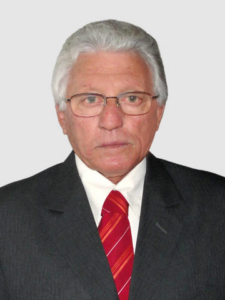 Lourival Ferreira Cavalcante PhD in Agronomy, on the subject of soil degraded by salts of the Irrigation Perimeter of São Gonçalo, Sousa-PB, by the School of Agriculture “Luiz de Queiróz” -ESALQ / USP, Piracicaba-SP, in 1985, retired professor by the Center for Agricultural Sciences, Federal University of Paraíba, Areia - Paraíba, in 2012. Permanent professor of the Graduate Programs in Agronomy / CCA / UFPB and Agricultural Sciences (Agroecology) / CCHSA / UFPB, respectively in the municipalities of Areia in Paraíba and Bananeiras, a research productivity fellow from the National Council for Scientific and Technological Development. It has always developed its activities on soils and water affected by salts, using the culture of the yellow passion fruit (Passiflora edulis Sims) more frequently.
Lourival Ferreira Cavalcante PhD in Agronomy, on the subject of soil degraded by salts of the Irrigation Perimeter of São Gonçalo, Sousa-PB, by the School of Agriculture “Luiz de Queiróz” -ESALQ / USP, Piracicaba-SP, in 1985, retired professor by the Center for Agricultural Sciences, Federal University of Paraíba, Areia - Paraíba, in 2012. Permanent professor of the Graduate Programs in Agronomy / CCA / UFPB and Agricultural Sciences (Agroecology) / CCHSA / UFPB, respectively in the municipalities of Areia in Paraíba and Bananeiras, a research productivity fellow from the National Council for Scientific and Technological Development. It has always developed its activities on soils and water affected by salts, using the culture of the yellow passion fruit (Passiflora edulis Sims) more frequently.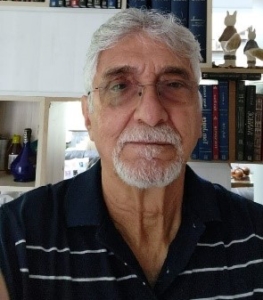 Graduated in Agronomic Engineering from the School of Agronomy of the Northeast / Federal University of Paraíba (1966-1969). Master in Phytotechnics from the Luiz de Queiroz School of Agriculture / USP (1970-1971). PhD in Soils and Plant Nutrition from ESALQ / USP (1972-1974). Completed a postdoctoral program at the University of Arizona, Tucson / AZ, USA (Aug-1989 / Dec-1990), in production physiology, with an emphasis on Horticulture. He was a member of the Scientific and Technological Council of CNPq, Professor at the Faculty of Agricultural and Veterinary Sciences of Jaboticabal / UNESP, UFPB and UFCG. He was Technical Advisor at the National Institute of the Semi-Arid and Senior Visiting Professor at the State University of Paraíba. He is currently a Visiting Professor at the Academic Unit in Agricultural Engineering at UFCG. He has experience in the areas of Agronomy and Agricultural Engineering, with an emphasis on Production Physiology, acting mainly on abiotic stress (saline, water and hypoxic / anoxitic), as well as in Ecophysiology of Caatinga species. To date, he has participated in the publication of more than 180 papers in specialized scientific journals and has supervised / co-supervised more than 100 students, at various levels of qualification, with 35 doctors already qualified under his supervision / co-supervision.
Graduated in Agronomic Engineering from the School of Agronomy of the Northeast / Federal University of Paraíba (1966-1969). Master in Phytotechnics from the Luiz de Queiroz School of Agriculture / USP (1970-1971). PhD in Soils and Plant Nutrition from ESALQ / USP (1972-1974). Completed a postdoctoral program at the University of Arizona, Tucson / AZ, USA (Aug-1989 / Dec-1990), in production physiology, with an emphasis on Horticulture. He was a member of the Scientific and Technological Council of CNPq, Professor at the Faculty of Agricultural and Veterinary Sciences of Jaboticabal / UNESP, UFPB and UFCG. He was Technical Advisor at the National Institute of the Semi-Arid and Senior Visiting Professor at the State University of Paraíba. He is currently a Visiting Professor at the Academic Unit in Agricultural Engineering at UFCG. He has experience in the areas of Agronomy and Agricultural Engineering, with an emphasis on Production Physiology, acting mainly on abiotic stress (saline, water and hypoxic / anoxitic), as well as in Ecophysiology of Caatinga species. To date, he has participated in the publication of more than 180 papers in specialized scientific journals and has supervised / co-supervised more than 100 students, at various levels of qualification, with 35 doctors already qualified under his supervision / co-supervision.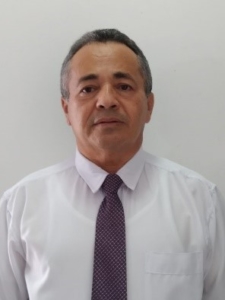 Graduated in Forest Engineering and Agricultural Degree from the Federal Rural University of Pernambuco. He holds a master's degree in Botany from the Federal Rural University of Pernambuco and a doctorate in Natural Sciences (Ecology) in Germany from Bielefeld Universität and a post-doctorate in Agricultural Engineering (Ecology of Halophytes) from the Federal University of Ceará. He is currently an Associate Professor at the State University of Ceará, next to the Biological Sciences Course. Coordinates the institution's Ecology Laboratory. He is a member of the faculty of the Academic Master in Natural Sciences. He has experience in the field of Restoration and Conservation Ecology, with an emphasis on Ecosystems, working mainly on the following themes: Ecophysiology of halophytes, soil salinity, permaculture, semiarid biodiversity, bioprospecting with Caatinga plants, use of natural resources, Monitoring and analysis environmental impacts. Develops research related to Bioinvasion and Phytoremediation.
Graduated in Forest Engineering and Agricultural Degree from the Federal Rural University of Pernambuco. He holds a master's degree in Botany from the Federal Rural University of Pernambuco and a doctorate in Natural Sciences (Ecology) in Germany from Bielefeld Universität and a post-doctorate in Agricultural Engineering (Ecology of Halophytes) from the Federal University of Ceará. He is currently an Associate Professor at the State University of Ceará, next to the Biological Sciences Course. Coordinates the institution's Ecology Laboratory. He is a member of the faculty of the Academic Master in Natural Sciences. He has experience in the field of Restoration and Conservation Ecology, with an emphasis on Ecosystems, working mainly on the following themes: Ecophysiology of halophytes, soil salinity, permaculture, semiarid biodiversity, bioprospecting with Caatinga plants, use of natural resources, Monitoring and analysis environmental impacts. Develops research related to Bioinvasion and Phytoremediation.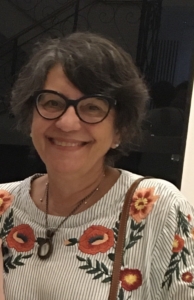 Agricultural Engineering and Master in Civil Engineering from UFPB. PhD in Agricultural Engineering from UFV. Full Professor at the Federal University of Campina Grande-UFCG / PB. Has experience in the area of Irrigation and Drainage, with an emphasis on Technology and Sanitary Problems of Irrigation, acting mainly on the following themes: water reuse; irrigation; drainage; salinity and environmental impacts.
Agricultural Engineering and Master in Civil Engineering from UFPB. PhD in Agricultural Engineering from UFV. Full Professor at the Federal University of Campina Grande-UFCG / PB. Has experience in the area of Irrigation and Drainage, with an emphasis on Technology and Sanitary Problems of Irrigation, acting mainly on the following themes: water reuse; irrigation; drainage; salinity and environmental impacts.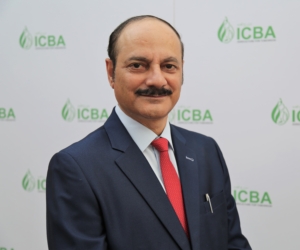 International Center for Biosaline Agriculture – ICBA. Section Head, Program Leader on Crop Diversification and Genetics, Principal Scientist - Plant Breeding. Dr. R.K. Singh is Head of Crop Diversification and Genetics Section. He joined ICBA in November 2018. He leads research teams studying such crops as quinoa, barley, mustard, safflower; trees such as date palm; and halophytes like Salicornia and Suaeda, among others. He started his career in 1986 as a scientist at the Agricultural Research Services of the Central Soil Salinity Research Institute (the Indian Council of Agricultural Research) in Karnal, India. He had risen through the ranks to become a principal scientist. In 2005 he moved to the International Rice Research Institute (IRRI) as a rice breeder for salt-affected areas. He had worked in different capacities at IRRI until 2018. Between 2009 and 2012 he had served as IRRI’s Regional Plant Breeding Coordinator for Eastern and Southern Africa based in Tanzania. In that role, he coordinated rice breeding activities in Uganda, Kenya, Tanzania, Rwanda, Burundi and Mozambique. From 2012 to 2016, he had worked at IRRI’s headquarters as a rice breeder for problem soils and rainfed lowlands of South-East Asia, including Myanmar, Thailand, Laos, Cambodia, Vietnam, Indonesia and the Philippines. In 2016-2018 he had led the trait development team at IRRI focusing on salinity, heat and problem soils. In his past roles, Dr. R.K. Singh led the teams which developed and released several salt-tolerant rice varieties, including basmati rice, in India. He holds a Ph.D. in Plant Breeding from G. B. Pant University of Agriculture and Technology, Pantnagar, India. He has published more than 75 research papers in international peer-reviewed journals and over 15 book chapters.
International Center for Biosaline Agriculture – ICBA. Section Head, Program Leader on Crop Diversification and Genetics, Principal Scientist - Plant Breeding. Dr. R.K. Singh is Head of Crop Diversification and Genetics Section. He joined ICBA in November 2018. He leads research teams studying such crops as quinoa, barley, mustard, safflower; trees such as date palm; and halophytes like Salicornia and Suaeda, among others. He started his career in 1986 as a scientist at the Agricultural Research Services of the Central Soil Salinity Research Institute (the Indian Council of Agricultural Research) in Karnal, India. He had risen through the ranks to become a principal scientist. In 2005 he moved to the International Rice Research Institute (IRRI) as a rice breeder for salt-affected areas. He had worked in different capacities at IRRI until 2018. Between 2009 and 2012 he had served as IRRI’s Regional Plant Breeding Coordinator for Eastern and Southern Africa based in Tanzania. In that role, he coordinated rice breeding activities in Uganda, Kenya, Tanzania, Rwanda, Burundi and Mozambique. From 2012 to 2016, he had worked at IRRI’s headquarters as a rice breeder for problem soils and rainfed lowlands of South-East Asia, including Myanmar, Thailand, Laos, Cambodia, Vietnam, Indonesia and the Philippines. In 2016-2018 he had led the trait development team at IRRI focusing on salinity, heat and problem soils. In his past roles, Dr. R.K. Singh led the teams which developed and released several salt-tolerant rice varieties, including basmati rice, in India. He holds a Ph.D. in Plant Breeding from G. B. Pant University of Agriculture and Technology, Pantnagar, India. He has published more than 75 research papers in international peer-reviewed journals and over 15 book chapters.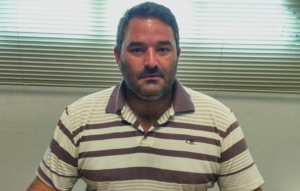 Agronomist by the Federal University of Viçosa (2001), master in Water x Plant x Environment Interaction, by the Federal University of Viçosa (2003) and doctor in the same area (2009). Post Doctorate in Irrigation by the Luiz de Queiroz School of Agriculture - ESALQ / USP - National Institute of Science and Technology in Irrigation Engineering (INCT - EI). He is currently Assistant Professor of the Department of Rural Engineering at Universidade Estadual Paulista Júlio de Mesquita Filho - Jaboticabal Campus - FCAV. He has experience in the field of Agronomy and Agricultural Engineering, with an emphasis on Water Resources, working mainly on the following topics: water and soil engineering, irrigated crops, agricultural systems hydraulics, irrigation management, irrigated agriculture and fertigation. In these areas, he has guided students of technical and vocational education and undergraduate students, as well as Master and Doctoral students in the Postgraduate Course in Agronomy (Soil Science), as well as partnerships with public and private initiatives. He is currently a Tutor Professor in the Tutorial Education Program of the Agronomic Engineering course (PET-AGRO) at FCAV / Unesp. He is a member of the Regional Council of Engineering and Agronomy of the State of São Paulo - CREA-SP (2019-2021). He is supervisor of the Education, Research and Extension Farm - FEPE, of FCAV / UNESP
Agronomist by the Federal University of Viçosa (2001), master in Water x Plant x Environment Interaction, by the Federal University of Viçosa (2003) and doctor in the same area (2009). Post Doctorate in Irrigation by the Luiz de Queiroz School of Agriculture - ESALQ / USP - National Institute of Science and Technology in Irrigation Engineering (INCT - EI). He is currently Assistant Professor of the Department of Rural Engineering at Universidade Estadual Paulista Júlio de Mesquita Filho - Jaboticabal Campus - FCAV. He has experience in the field of Agronomy and Agricultural Engineering, with an emphasis on Water Resources, working mainly on the following topics: water and soil engineering, irrigated crops, agricultural systems hydraulics, irrigation management, irrigated agriculture and fertigation. In these areas, he has guided students of technical and vocational education and undergraduate students, as well as Master and Doctoral students in the Postgraduate Course in Agronomy (Soil Science), as well as partnerships with public and private initiatives. He is currently a Tutor Professor in the Tutorial Education Program of the Agronomic Engineering course (PET-AGRO) at FCAV / Unesp. He is a member of the Regional Council of Engineering and Agronomy of the State of São Paulo - CREA-SP (2019-2021). He is supervisor of the Education, Research and Extension Farm - FEPE, of FCAV / UNESP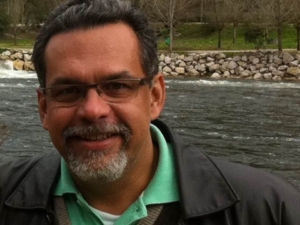 He has a degree in Civil Engineering from the Federal University of Pernambuco (1985), a master's degree in Hydraulics and Sanitation from the University of São Paulo, São Carlos (1989) and a doctorate in Water Resources - University of Newcastle Upon Tyne (1997). He has a post-doctorate in hydrological modeling from the Center for Ecology and Hydrology of Wallingford, England (2008). Visiting Researcher at the Federal University of Viçosa-MG, in 2011, developing studies in Applied Geostatistics. Visiting Researcher at the University of Coimbra, Portugal, in 2012, addressing hydrological and hydrosedimentological investigations with simulated rainfall. He is a full professor at the Federal Rural University of Pernambuco, and a permanent member of the Graduate Program in Agricultural Engineering at UFRPE. He has experience in the area of Water Resources and Agricultural and Environmental Engineering, with an emphasis on Irrigation and Drainage, acting mainly on the following themes: semiarid, watershed management, experimental and numerical hydrology, hydraulics, soil moisture dynamics, environmental services, sanitation and reuse of inferior water in agriculture, desalinators and integrated use of concentrates, water and soil conservation, geostatistics, water quality, salinity, alluvial recharge and family farming. He was General Coordinator of Research at UFRPE between 2014 and 2016. He was also Coordinator of academic and technological activities at UFRPE Advanced Campuses, between 2016 and 2019. He is currently a member of the CNPq Environmental Sciences Advisory Committee.
He has a degree in Civil Engineering from the Federal University of Pernambuco (1985), a master's degree in Hydraulics and Sanitation from the University of São Paulo, São Carlos (1989) and a doctorate in Water Resources - University of Newcastle Upon Tyne (1997). He has a post-doctorate in hydrological modeling from the Center for Ecology and Hydrology of Wallingford, England (2008). Visiting Researcher at the Federal University of Viçosa-MG, in 2011, developing studies in Applied Geostatistics. Visiting Researcher at the University of Coimbra, Portugal, in 2012, addressing hydrological and hydrosedimentological investigations with simulated rainfall. He is a full professor at the Federal Rural University of Pernambuco, and a permanent member of the Graduate Program in Agricultural Engineering at UFRPE. He has experience in the area of Water Resources and Agricultural and Environmental Engineering, with an emphasis on Irrigation and Drainage, acting mainly on the following themes: semiarid, watershed management, experimental and numerical hydrology, hydraulics, soil moisture dynamics, environmental services, sanitation and reuse of inferior water in agriculture, desalinators and integrated use of concentrates, water and soil conservation, geostatistics, water quality, salinity, alluvial recharge and family farming. He was General Coordinator of Research at UFRPE between 2014 and 2016. He was also Coordinator of academic and technological activities at UFRPE Advanced Campuses, between 2016 and 2019. He is currently a member of the CNPq Environmental Sciences Advisory Committee.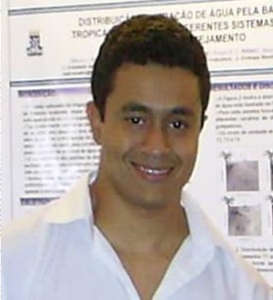 Professor of Brazilian public education - from high school from basic education to Post-Graduation. Agricultural Engineer, Master of Science and Doctor of Agricultural Sciences, works in the education of young people and adults, basic education, vocational education, graduation, specialization, master's and doctorate. In the Post-Doctorate he studied the application of agro-hydrological models in irrigated fruit trees. He has been a professor at the Federal Institute of Education, Science and Technology of Bahia - IF Baiano, since 2010. At IF Baiano he worked in several positions, including the position of Pro-Rector of Institutional Development. He is currently Academic Director of the Governador Mangabeira campus. He participated in the creation and implementation of Professional Masters in Plant Production in the Semiarid and Environmental Sciences, of which he is a permanent professor. He is a permanent professor at the Graduate Program in Agricultural Engineering at UFRB, since 2013.
Professor of Brazilian public education - from high school from basic education to Post-Graduation. Agricultural Engineer, Master of Science and Doctor of Agricultural Sciences, works in the education of young people and adults, basic education, vocational education, graduation, specialization, master's and doctorate. In the Post-Doctorate he studied the application of agro-hydrological models in irrigated fruit trees. He has been a professor at the Federal Institute of Education, Science and Technology of Bahia - IF Baiano, since 2010. At IF Baiano he worked in several positions, including the position of Pro-Rector of Institutional Development. He is currently Academic Director of the Governador Mangabeira campus. He participated in the creation and implementation of Professional Masters in Plant Production in the Semiarid and Environmental Sciences, of which he is a permanent professor. He is a permanent professor at the Graduate Program in Agricultural Engineering at UFRB, since 2013.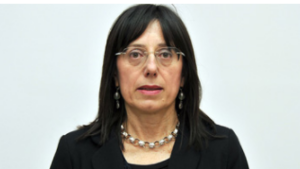 Full Professor and Scientific Coordinator of the Doctoral Program in Agrometeorology and Ecophysiology of Agricultural and Forest Ecosystems at the University of Sassari. She was Regional Minister for the Protection of the Environment (Government of the Region of Sardinia). He is a senior member of the Strategic Council of the Euro Mediterranean Center on Climate Change (CMCC). He is a founding member of the Italian Society for Climate Sciences (SISC). He graduated in Agronomic Sciences from the University of Sassari, where he also did a three-year post-doctorate with a specialization in Biometeorology. He is responsible for the scientific cooperation agreement with the University of California-Davis, where he has been conducting research activities since 1993. Member of the American Meteorological Society (AMS), International Society for Biometeorology (ISB), International Society for Horticultural Science (ISHS), Italian Society for Horticultural Science (SOI) and Italian Society for Agrometeorology (AIAM). She is also an active member of the ISB Study Group in measuring trace gas flows. Since 2006, she coordinates the Laboratory of Agrometeorology and Ecophysiology at the University of Sassari, leading a scientific team of 25 employees, including research scientists, post-doctors and doctoral students. It is actively involved in several EU projects aimed at assessing adaptation to climate change, identifying sustainable agricultural strategies, creating an integrated system for the quantification of net CO2 exchanges and evaluating mitigation strategies at urban and as well as the implementation of methodologies and systems to support fire risk assessment in extreme weather conditions.
Full Professor and Scientific Coordinator of the Doctoral Program in Agrometeorology and Ecophysiology of Agricultural and Forest Ecosystems at the University of Sassari. She was Regional Minister for the Protection of the Environment (Government of the Region of Sardinia). He is a senior member of the Strategic Council of the Euro Mediterranean Center on Climate Change (CMCC). He is a founding member of the Italian Society for Climate Sciences (SISC). He graduated in Agronomic Sciences from the University of Sassari, where he also did a three-year post-doctorate with a specialization in Biometeorology. He is responsible for the scientific cooperation agreement with the University of California-Davis, where he has been conducting research activities since 1993. Member of the American Meteorological Society (AMS), International Society for Biometeorology (ISB), International Society for Horticultural Science (ISHS), Italian Society for Horticultural Science (SOI) and Italian Society for Agrometeorology (AIAM). She is also an active member of the ISB Study Group in measuring trace gas flows. Since 2006, she coordinates the Laboratory of Agrometeorology and Ecophysiology at the University of Sassari, leading a scientific team of 25 employees, including research scientists, post-doctors and doctoral students. It is actively involved in several EU projects aimed at assessing adaptation to climate change, identifying sustainable agricultural strategies, creating an integrated system for the quantification of net CO2 exchanges and evaluating mitigation strategies at urban and as well as the implementation of methodologies and systems to support fire risk assessment in extreme weather conditions.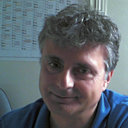 Water Research Institute (IRSA) - National Research Council (CNR)
Water Research Institute (IRSA) - National Research Council (CNR)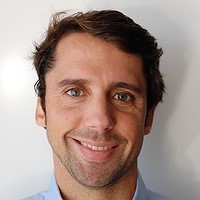 CEBAS- CSIC Center for Edaphology and Applied Biology of Segura - Murcia - SPAIN. Dr. Agronomist Engineer. Master in Water Resources Planning and Management. He worked at the University of California (USA), at the University of Beira Interior (Portugal) and at the Technical University of Denmark (DTU). About precision irrigation and water reuse in agriculture, it demonstrates the transfer of knowledge to the public and private sectors, participating in several international projects and private projects with companies. At the same time, in recent years, he obtained educational experience as a teacher in different courses related to precision irrigation and water reuse in agriculture. Advisor in several University Masters and Final Projects. He worked as a postdoctoral fellow at the University of Bari at the Dipartimento di Scienze Agro Ambientali e Territoriali (DiSAAT), under the European project “Low cost water desalination and compact sensor technology” (DESERT). He is the Technical Director of the “IWA Regional Conference on Water Reuse and Salinity Management (IWARESA)” and Principal Coordinator of the Mediterranean Youth through Water Network (MedYWat) financed by the Mediterranean Integration Center (CMI).
CEBAS- CSIC Center for Edaphology and Applied Biology of Segura - Murcia - SPAIN. Dr. Agronomist Engineer. Master in Water Resources Planning and Management. He worked at the University of California (USA), at the University of Beira Interior (Portugal) and at the Technical University of Denmark (DTU). About precision irrigation and water reuse in agriculture, it demonstrates the transfer of knowledge to the public and private sectors, participating in several international projects and private projects with companies. At the same time, in recent years, he obtained educational experience as a teacher in different courses related to precision irrigation and water reuse in agriculture. Advisor in several University Masters and Final Projects. He worked as a postdoctoral fellow at the University of Bari at the Dipartimento di Scienze Agro Ambientali e Territoriali (DiSAAT), under the European project “Low cost water desalination and compact sensor technology” (DESERT). He is the Technical Director of the “IWA Regional Conference on Water Reuse and Salinity Management (IWARESA)” and Principal Coordinator of the Mediterranean Youth through Water Network (MedYWat) financed by the Mediterranean Integration Center (CMI).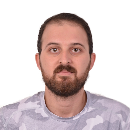 PhD student at the University of Bologna since 2017. Develops research in the area of Agricultural, Environmental and Food Science and Technology. His research interests are directed to the subfield of agrometry and, in particular, to the effect of climate change and higher concentrations of CO2 in evapotranspiration (ETo)
PhD student at the University of Bologna since 2017. Develops research in the area of Agricultural, Environmental and Food Science and Technology. His research interests are directed to the subfield of agrometry and, in particular, to the effect of climate change and higher concentrations of CO2 in evapotranspiration (ETo)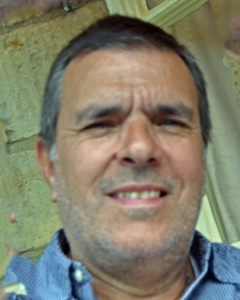 Agricultural Engineer, graduated from UDELAR, Uruguay. Consulting Director IRRI SYSTEMS S.A., since 1983 President of URUCID, since 1997. Since his beginnings as a professional, he has worked as an extension worker agricultural. For more than 33 years he has specialized in the design of different types of pressure irrigation systems, having carried out a countless irrigation projects in Uruguay, Argentina, Brazil and Paraguay from localized irrigation to center pivot irrigation projects. He has done different consultancies, standing out as a Member of the multidisciplinary team of consultants; C. & E. Consultants, based in Belgium, in charge of development projects in Latin American countries, Asia and Africa. He worked as a consultant for the Ministry of Agriculture of Uruguay, developing multi-network irrigation projects for associations of intensive producers (Melilla, Montevideo, 2010) and associations of dairy, agricultural, fruit growers and livestock producers (Colonia, Valdense, Cologne, 2013) Between 2010 and 2013 he was Vice Director of the AMRWG, Working Group of the American Region (South, Central and North America) of the ICID. He has published several extension works in the area of irrigation and agro and hydrometeorology monitoring. He frequently offers lectures and conducts workshops on these subjects to train students and producers. He has given a large number of conferences on the topics of expertise in Different areas. In Brazil particularly at FIIB 2018 and XXI Congresso Brasileiro de Agrometeorología; CBAGRO 2019.
Agricultural Engineer, graduated from UDELAR, Uruguay. Consulting Director IRRI SYSTEMS S.A., since 1983 President of URUCID, since 1997. Since his beginnings as a professional, he has worked as an extension worker agricultural. For more than 33 years he has specialized in the design of different types of pressure irrigation systems, having carried out a countless irrigation projects in Uruguay, Argentina, Brazil and Paraguay from localized irrigation to center pivot irrigation projects. He has done different consultancies, standing out as a Member of the multidisciplinary team of consultants; C. & E. Consultants, based in Belgium, in charge of development projects in Latin American countries, Asia and Africa. He worked as a consultant for the Ministry of Agriculture of Uruguay, developing multi-network irrigation projects for associations of intensive producers (Melilla, Montevideo, 2010) and associations of dairy, agricultural, fruit growers and livestock producers (Colonia, Valdense, Cologne, 2013) Between 2010 and 2013 he was Vice Director of the AMRWG, Working Group of the American Region (South, Central and North America) of the ICID. He has published several extension works in the area of irrigation and agro and hydrometeorology monitoring. He frequently offers lectures and conducts workshops on these subjects to train students and producers. He has given a large number of conferences on the topics of expertise in Different areas. In Brazil particularly at FIIB 2018 and XXI Congresso Brasileiro de Agrometeorología; CBAGRO 2019.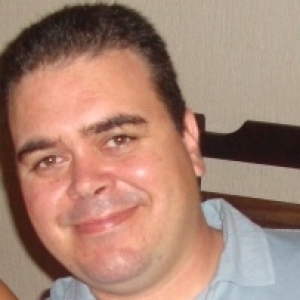 Agricultural and environmental engineer and master in Agricultural Engineering in the area of Water and Environmental Resources. Large project manager at IRRIGER irrigation management.
Agricultural and environmental engineer and master in Agricultural Engineering in the area of Water and Environmental Resources. Large project manager at IRRIGER irrigation management. Graduated in Agronomy from the Federal Rural University of Pernambuco (1987), Master in Statistics, Mathematics and Computing from Universidade Aberta -Portugal (2011) and PhD in Biosystems Engineering from the University of Lisbon financed by the DPE Program - FULL DOCTORATE PROGRAM OUTSIDE - CAPES. The main areas of research are associated with innovative technologies operating in agriculture and preservation of natural resources. At the moment, he is finishing his doctorate in Biosystems Engineering at the Instituto Superior de Agronomia-Universidade de Lisboa, collaborating with the Center for Research in Agronomy, Food, Environment and Landscape (LEAF / ISA / UL). Based on partnerships signed between research institutions in Brazil and Portugal, efforts have been made to increase the transfer of knowledge within the technological development of agricultural regions with water scarcity.
Graduated in Agronomy from the Federal Rural University of Pernambuco (1987), Master in Statistics, Mathematics and Computing from Universidade Aberta -Portugal (2011) and PhD in Biosystems Engineering from the University of Lisbon financed by the DPE Program - FULL DOCTORATE PROGRAM OUTSIDE - CAPES. The main areas of research are associated with innovative technologies operating in agriculture and preservation of natural resources. At the moment, he is finishing his doctorate in Biosystems Engineering at the Instituto Superior de Agronomia-Universidade de Lisboa, collaborating with the Center for Research in Agronomy, Food, Environment and Landscape (LEAF / ISA / UL). Based on partnerships signed between research institutions in Brazil and Portugal, efforts have been made to increase the transfer of knowledge within the technological development of agricultural regions with water scarcity.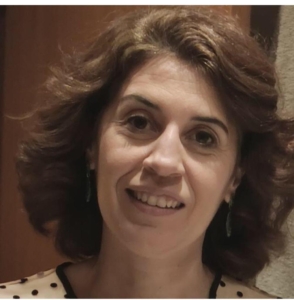 Degree in Agronomic Engineering from the University of Santiago de Compostela, Spain. • PhD in Agricultural Engineering, by the Polytechnic School of Lugo - Universidad de Santiago de Compostela - Spain. Director of the Agrarian School of the Polytechnic Institute of Viana do Castelo
Degree in Agronomic Engineering from the University of Santiago de Compostela, Spain. • PhD in Agricultural Engineering, by the Polytechnic School of Lugo - Universidad de Santiago de Compostela - Spain. Director of the Agrarian School of the Polytechnic Institute of Viana do Castelo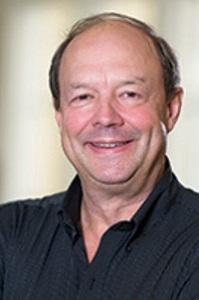 Works in research on the development of remote sensing applications for irrigated agriculture, hydrology and monitoring of natural resources. He developed a low-cost airborne remote sensing system used in the western United States to map the spatially distributed energy balance and the evapotranspiration of riparian and agricultural vegetation. His most recent international projects were in the Dominican Republic, where he used aerial photography and remote sensing to map and monitor irrigated agriculture and developed a comprehensive database of irrigation water users in a GIS environment. Neale joined the University of Nebraska in 2013 and oversees the Water for Food Institute's research efforts, involving professors in new projects and initiating partnerships with organizations and universities around the world. Previously, Neale was a professor of irrigation engineering at Utah State University, where he has led efforts in remote sensing and management of agricultural water resources since 1988. He is chairman of the International Remote Sensing Commission of the International Association of Hydrological Sciences and has extensive experience in research and management of water projects in the western United States, Africa, South America and the Caribbean. He holds a PhD in agricultural engineering from Colorado State University.
Works in research on the development of remote sensing applications for irrigated agriculture, hydrology and monitoring of natural resources. He developed a low-cost airborne remote sensing system used in the western United States to map the spatially distributed energy balance and the evapotranspiration of riparian and agricultural vegetation. His most recent international projects were in the Dominican Republic, where he used aerial photography and remote sensing to map and monitor irrigated agriculture and developed a comprehensive database of irrigation water users in a GIS environment. Neale joined the University of Nebraska in 2013 and oversees the Water for Food Institute's research efforts, involving professors in new projects and initiating partnerships with organizations and universities around the world. Previously, Neale was a professor of irrigation engineering at Utah State University, where he has led efforts in remote sensing and management of agricultural water resources since 1988. He is chairman of the International Remote Sensing Commission of the International Association of Hydrological Sciences and has extensive experience in research and management of water projects in the western United States, Africa, South America and the Caribbean. He holds a PhD in agricultural engineering from Colorado State University.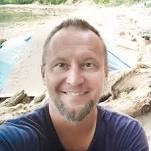 Senior-level scientist and research leader with extensive experience in managing complex projects with several extended teams, organizing interinstitutional collaborations, establishing cooperative relationships between academia and industry, developing new systems and high-tech methods and a success story in identifying and cultivating great business opportunities in science. It holds 11 patents granted in the United States and internationally in more than 40 countries, 10 of which have been successfully marketed in technology, devices and methods. More than 360 publications, including 9 books (7 with first or only authorship), over 100 referenced scientific publications, various articles and technical and conference articles. Several 'highly cited' and 'top 10' articles cited in IPCC and FAO reports, Nature, Science, PNAS, Environmental S&T, Nature Climate Change, etc. The books are in the curricula of more than 50 universities and more than 30 libraries, including Oxford, Stanford, Princeton, Yale, Cambridge, Cornell, Duke, MIT, Caltech, Dartmouth, Imp College London, Karlsruhe, Max Planck, etc. Taught more than 150 courses, seminars and invited lectures, including those at more than 20 universities, AmeriFlux, Argonne, AsiaFlux, BASC, Battelle, EPA, ICOS, InGOS, IITM, NEON, OzFlux, WMO, etc. In addition, it presented more than 450 presentations and webinars. Participated in more than 250 conferences and meetings in more than 30 countries. It has reviewed more than 100 proposals for donations, books and journal articles for major funding agencies, publishers and international journals. Several recognitions from excellent reviewers. He served on advisory boards, review panels, management, concession, research and organizational committees etc. in more than 40 organizations and groups, including IPCC, AmeriFlux, COST, DWFI, Elsevier, EPSCoR, EU Commission, ICOS, InGOS, NCSE, NEON, FFAR, Israel Ministry of Science, Dutch Organization for Scientific Research, NU Office of RED, RINGO, WMO, etc.
Senior-level scientist and research leader with extensive experience in managing complex projects with several extended teams, organizing interinstitutional collaborations, establishing cooperative relationships between academia and industry, developing new systems and high-tech methods and a success story in identifying and cultivating great business opportunities in science. It holds 11 patents granted in the United States and internationally in more than 40 countries, 10 of which have been successfully marketed in technology, devices and methods. More than 360 publications, including 9 books (7 with first or only authorship), over 100 referenced scientific publications, various articles and technical and conference articles. Several 'highly cited' and 'top 10' articles cited in IPCC and FAO reports, Nature, Science, PNAS, Environmental S&T, Nature Climate Change, etc. The books are in the curricula of more than 50 universities and more than 30 libraries, including Oxford, Stanford, Princeton, Yale, Cambridge, Cornell, Duke, MIT, Caltech, Dartmouth, Imp College London, Karlsruhe, Max Planck, etc. Taught more than 150 courses, seminars and invited lectures, including those at more than 20 universities, AmeriFlux, Argonne, AsiaFlux, BASC, Battelle, EPA, ICOS, InGOS, IITM, NEON, OzFlux, WMO, etc. In addition, it presented more than 450 presentations and webinars. Participated in more than 250 conferences and meetings in more than 30 countries. It has reviewed more than 100 proposals for donations, books and journal articles for major funding agencies, publishers and international journals. Several recognitions from excellent reviewers. He served on advisory boards, review panels, management, concession, research and organizational committees etc. in more than 40 organizations and groups, including IPCC, AmeriFlux, COST, DWFI, Elsevier, EPSCoR, EU Commission, ICOS, InGOS, NCSE, NEON, FFAR, Israel Ministry of Science, Dutch Organization for Scientific Research, NU Office of RED, RINGO, WMO, etc. Agricultural and Environmental Engineer from the Federal University of Viçosa. Master in Agricultural Systems Engineering by the School of Agriculture "Luiz de Queiroz" of the University of São Paulo (ESALQ-USP). He is currently a PhD student in Agricultural Systems Engineering at the "Luiz de Queiroz" School of Agriculture - University of São Paulo (USP / ESALQ) and a visiting student at the Daugherty Water for Food Global Institute at the University of Nebraska-Lincoln. Has experience in the area of Agricultural Engineering, with emphasis on plant nutrition, irrigation, hydrology and remote sensing applied to water resources.
Agricultural and Environmental Engineer from the Federal University of Viçosa. Master in Agricultural Systems Engineering by the School of Agriculture "Luiz de Queiroz" of the University of São Paulo (ESALQ-USP). He is currently a PhD student in Agricultural Systems Engineering at the "Luiz de Queiroz" School of Agriculture - University of São Paulo (USP / ESALQ) and a visiting student at the Daugherty Water for Food Global Institute at the University of Nebraska-Lincoln. Has experience in the area of Agricultural Engineering, with emphasis on plant nutrition, irrigation, hydrology and remote sensing applied to water resources.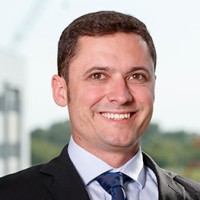 Agronomy Engineer and Masters in Plant Production (Planning and Management of Water Resources) by the Federal University of Espírito Santo (CCA - UFES), PhD in Agricultural Engineering (Water and Soil) by the State University of Campinas (FEAGRI - UNICAMP). Currently is researcher at the Water for Food Global Institute (post-doctoral position) by the University of Nebraska - Lincoln (UNL) working on remote sensing field for Improving irrigation water management (basal crop coefficient, water requirements and biomass modeling, water productivity), with experience in subsurface drip irrigation, water reuse, gas exchange and water quality.
Agronomy Engineer and Masters in Plant Production (Planning and Management of Water Resources) by the Federal University of Espírito Santo (CCA - UFES), PhD in Agricultural Engineering (Water and Soil) by the State University of Campinas (FEAGRI - UNICAMP). Currently is researcher at the Water for Food Global Institute (post-doctoral position) by the University of Nebraska - Lincoln (UNL) working on remote sensing field for Improving irrigation water management (basal crop coefficient, water requirements and biomass modeling, water productivity), with experience in subsurface drip irrigation, water reuse, gas exchange and water quality. He holds a degree in Civil Engineering from the Federal University of Minas Gerais (1995) and a master's degree in Master in Sanitation, Environment and Resources H from the Department of Sanitary Engineering at E E U F M G (2003). He is currently a Hydrologist Engineer at the Mineral Resources Research Company. He has experience in the field of Civil Engineering, with an emphasis on Water Resources. Acting mainly on the following topics: Frequency Analysis, Expert System.
Graduated in Agronomy from the Federal University of Paraíba (1976), Master in Irrigation and Drainage from the Federal University of Santa Maria (1980) and PhD in Agronomy (Vegetal Ecophysiology) - Universidad de Córdoba, Córdoba-Spain (1992). For two consecutive terms, he was Director of the Center for Agricultural Sciences at UFPB. He was Deputy Director and President of the Steering Committee of the INSA / MCTI Master Plan. At the invitation of FAO, he participated in study trips to American Universities (Texas, Arizona, New Mexico and San Diego in California) and Mexico (Monterrey and Chihuahua). He participated in the Brazilian Cooperation Scientific Mission between Brazil and Jordan, in Amman, Jordan. Study mission at the invitation of the Ministry of Foreign Affairs (MRE) in Burkina Faso, Africa. He was part of the Commission that supported the technical discussions of representatives of the MRE at the Ninth Session of the Conference of the Parties, United Nations Convention to Combat Desertification, in Buenos Aires, Argentina. He was a Senior Visiting National Professor (CAPES) at UAG / UFRPE. Participates as a permanent professor in the Integrated Doctoral Program in Animal Science (PDIZ) at CCA / UFPB and as a Collaborating Professor in the Graduate Program in Agronomy at CCA / UFPB. He is currently Full Professor at UFRPE / UAG, recently at UFAPE, and permanent professor at the Postgraduate Programs in Animal Science and Pastures and Postgraduate Studies in Agricultural Production. He has experience in Plant Ecophysiology and Soil Water Plant Relationship, developing research mainly with the following themes: Caatinga, Forages native to the Semi-Arid, Secondary metabolites in forage species from the Caatinga, Pasture and Environmental Impact
Professor at the University of Concepción in the Department of Water Resources. PhD in Agricultural Engineering M / Registration of Water in Agriculture, Universidad de Concepción, Concepción. Doctoral exchange at UC Davis, USA (2018). Bachelor of Science in Engineering, Universidad de Concepción.
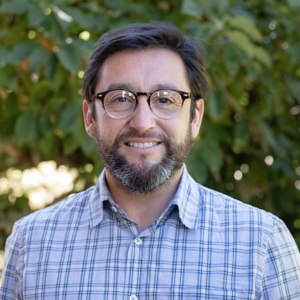 Doutorado em Ciência da Computação, Universidade Politécnica de Madrid. Mestre em Ciências da Engenharia, com menção em Engenharia Elétrica, Universidad de Concepción. Engenheiro Eletricista Civil pela Universidade de Concepción. Professor Titular, Diretor do Programa de Doutorado em Recursos Hídricos e Energia para a Agricultura, Universidad de Concepción. Relacionar a informática com a geoinformação, para o desenvolvimento de novas tecnologias para a gestão dos recursos hídricos. Imagem digital e processamento de dados. Fusão de dados. Tecnologias de informação para gestão de água
Doutorado em Ciência da Computação, Universidade Politécnica de Madrid. Mestre em Ciências da Engenharia, com menção em Engenharia Elétrica, Universidad de Concepción. Engenheiro Eletricista Civil pela Universidade de Concepción. Professor Titular, Diretor do Programa de Doutorado em Recursos Hídricos e Energia para a Agricultura, Universidad de Concepción. Relacionar a informática com a geoinformação, para o desenvolvimento de novas tecnologias para a gestão dos recursos hídricos. Imagem digital e processamento de dados. Fusão de dados. Tecnologias de informação para gestão de água Agronomist (ESALQ / USP campus of Piracicaba - 1985). Master in Agronomy / Irrigation and Drainage (FCA / UNESP Botucatu campus - 1990). PhD in Science / Nuclear Energy in Agriculture (CENA / USP campus of Piracicaba - 1994). Post-Doctorate (University of California, Davis, USA - 2000). Between December 1994 and April 2015, he was a researcher at Embrapa Semiárido, in Petrolina - PE. As of May 2015, he is a researcher at Embrapa Instrumentação, in São Carlos - SP. Main research topics: soil physics, irrigation management, fertigation, water use in agriculture and precision agriculture. Member of the faculty and master's and doctoral advisor of the Graduate Program in Agronomy (Irrigation and Drainage) at the Faculty of Agronomic Sciences (FCA), UNESP, Botucatu campus.
Agronomist (ESALQ / USP campus of Piracicaba - 1985). Master in Agronomy / Irrigation and Drainage (FCA / UNESP Botucatu campus - 1990). PhD in Science / Nuclear Energy in Agriculture (CENA / USP campus of Piracicaba - 1994). Post-Doctorate (University of California, Davis, USA - 2000). Between December 1994 and April 2015, he was a researcher at Embrapa Semiárido, in Petrolina - PE. As of May 2015, he is a researcher at Embrapa Instrumentação, in São Carlos - SP. Main research topics: soil physics, irrigation management, fertigation, water use in agriculture and precision agriculture. Member of the faculty and master's and doctoral advisor of the Graduate Program in Agronomy (Irrigation and Drainage) at the Faculty of Agronomic Sciences (FCA), UNESP, Botucatu campus.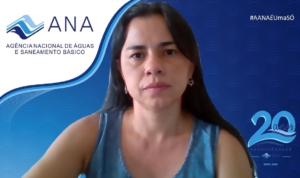 Geologist, graduated from the Federal University of Pará (1999). Master in Geology and Geochemistry (Subarea: Hidrogeologia) from the Federal University of Pará (2001). PhD from the University of Brasília (2006). He developed a thesis in hydrogeology on the Urucuia Aquifer System. He currently works in the Groundwater Coordination of the National Water Agency.
Geologist, graduated from the Federal University of Pará (1999). Master in Geology and Geochemistry (Subarea: Hidrogeologia) from the Federal University of Pará (2001). PhD from the University of Brasília (2006). He developed a thesis in hydrogeology on the Urucuia Aquifer System. He currently works in the Groundwater Coordination of the National Water Agency. Produtiva agrícola e consultoria
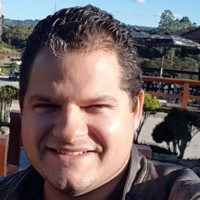 3V3 Tecnology
3V3 Tecnology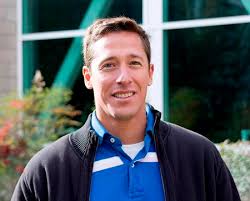 MS Agronomy and Soils, Auburn University, 2008. Bachelor of Agronomy from the University of São Paulo, 2004. Specialty Irrigation and nutrient management in fruit and vegetable crops. Specialization areas (click to see all ANR academics with this specialization)
Berries - General; Strawberries; Horticulture; Vegetable Crops; Plants and their systems; Natural Resources and Environment; Conservation and Efficient Use of Water; Protection and management of river basins; Relationships of soil, plant, water and nutrients; Management of Saline and Sodium Soils and Salinity; Pollution prevention and mitigation; Drainage and irrigation systems and installations; Geographic Information Systems; Spanish; Water quality, quantity and safety; Sustainable Food Systems
MS Agronomy and Soils, Auburn University, 2008. Bachelor of Agronomy from the University of São Paulo, 2004. Specialty Irrigation and nutrient management in fruit and vegetable crops. Specialization areas (click to see all ANR academics with this specialization)
Berries - General; Strawberries; Horticulture; Vegetable Crops; Plants and their systems; Natural Resources and Environment; Conservation and Efficient Use of Water; Protection and management of river basins; Relationships of soil, plant, water and nutrients; Management of Saline and Sodium Soils and Salinity; Pollution prevention and mitigation; Drainage and irrigation systems and installations; Geographic Information Systems; Spanish; Water quality, quantity and safety; Sustainable Food Systems Ph.D. Soil Science and Agroecology, Utah State University. 2016. MS Plant Science, Molecular Ecology, Utah State University. 2007. Bachelor of Science in Biology, University of Wisconsin - Stevens Point. 2002. Areas of specialization: Harvesting fruits and nuts - General; Nut crops; Almonds; Pistachios; Nuts; Soil and Earth; Plant genome, genetics and genetic mechanisms; Plant biological efficiency and abiotic stresses that affect plants; Basic Plant Biology; Pathogens and Nematodes that Affect Plants; Integrated pest control systems; Conservation and Efficient Use of Water; Relationships of soil, plant, water and nutrients; Management of Saline and Sodium Soils and Salinity; Drainage and irrigation systems and installations; Dafis User; Social Learning in Agriculture and Food Systems; Nutrients and water in agricultural landscapes; Commercial; Organic; Ipm; Sustainable Food Systems
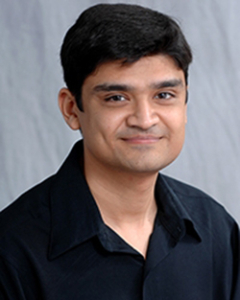 Ph.D. in Agricultural Engineering from the University of Florida 2010, master's degree in Irrigation Engineering from Uta State University in 2004 and graduated in Agricultural Engineering at Agricultural University of Gujarat in 2000. He received the leadership award from the California Climate and Agriculture Network (CalCAN), 2019. Specialist in Climate Adaptation at Ag .UC Merced - Sierra Nevada Research Institute, CA.
Ph.D. in Agricultural Engineering from the University of Florida 2010, master's degree in Irrigation Engineering from Uta State University in 2004 and graduated in Agricultural Engineering at Agricultural University of Gujarat in 2000. He received the leadership award from the California Climate and Agriculture Network (CalCAN), 2019. Specialist in Climate Adaptation at Ag .UC Merced - Sierra Nevada Research Institute, CA.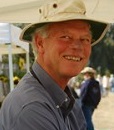 Ben Faber is the subtropical soil / water / culture consultant for the counties of Ventura and Santa Bárbara. Its main involvement in crops is avocado and citrus fruits, but other subtropical and deciduous crops are also included, such as lychee, longan, blueberry, cherimoya and passion fruit. He is currently evaluating several subtropical tree varieties for their economic viability in coastal environments. He also studies soil and water quality issues, such as erosion management, salinity management, orchard soil management, irrigation scheduling and fertility management. Ben has his Ph.D. in soil fertility and MS in pomology.
Ben Faber is the subtropical soil / water / culture consultant for the counties of Ventura and Santa Bárbara. Its main involvement in crops is avocado and citrus fruits, but other subtropical and deciduous crops are also included, such as lychee, longan, blueberry, cherimoya and passion fruit. He is currently evaluating several subtropical tree varieties for their economic viability in coastal environments. He also studies soil and water quality issues, such as erosion management, salinity management, orchard soil management, irrigation scheduling and fertility management. Ben has his Ph.D. in soil fertility and MS in pomology.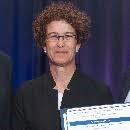 Education: University of Bologna, Italy: 1988 Degree in Physics, 1994 specialization in Environmental Science and Technology. University of Sassari, Italy: 1998 PhD in Biometeorology. Current position: She is an associate professor in the Department of Agricultural Sciences at the University of Bologna since September 15, 2014. In 2006 she was elected to the Board of Directors of the Italian Association of Agrometeorology, from 2018 she is the President. Since 2010 he is editor-in-chief of the Italian Journal of Agrometeorology. She is a member of the Italian Agronomy Society. Since 2001/02 he has taught Agrometeorology, Agroclimatology and Experimental Methodology in the First or Second Level degrees of the Faculty of Agriculture of the University of Bologna. Since 2002/03 she has been part of the Collegio dei docenti of the doctoral school at the University of Sassari. He taught Agrometeorology and Data Analysis at the Master in Land and Water Conservation and at the Doctoral School of the Faculty of Agriculture of the University of Bologna. President of the Italian Association of Agrometeorology, AIAM. Member of the Italian Society of Agronomy (SIA), European Society of Agronomy (ESA), Associazione Italiana di Scienze dell'Atmosfera e Meteorologia (AISAM). Editor-in-chief of the Italian Journal of Agrometeorology.
Education: University of Bologna, Italy: 1988 Degree in Physics, 1994 specialization in Environmental Science and Technology. University of Sassari, Italy: 1998 PhD in Biometeorology. Current position: She is an associate professor in the Department of Agricultural Sciences at the University of Bologna since September 15, 2014. In 2006 she was elected to the Board of Directors of the Italian Association of Agrometeorology, from 2018 she is the President. Since 2010 he is editor-in-chief of the Italian Journal of Agrometeorology. She is a member of the Italian Agronomy Society. Since 2001/02 he has taught Agrometeorology, Agroclimatology and Experimental Methodology in the First or Second Level degrees of the Faculty of Agriculture of the University of Bologna. Since 2002/03 she has been part of the Collegio dei docenti of the doctoral school at the University of Sassari. He taught Agrometeorology and Data Analysis at the Master in Land and Water Conservation and at the Doctoral School of the Faculty of Agriculture of the University of Bologna. President of the Italian Association of Agrometeorology, AIAM. Member of the Italian Society of Agronomy (SIA), European Society of Agronomy (ESA), Associazione Italiana di Scienze dell'Atmosfera e Meteorologia (AISAM). Editor-in-chief of the Italian Journal of Agrometeorology.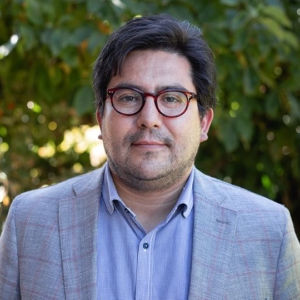 PhD in Agricultural Engineering from the Universidad de Concepción. RESEARCH LINES: Efficient use of water in agriculture and mining, Availability and quality of water for agriculture and mining due to climate change, Water governance, ecosystem services and sustainability. RESPONSIBILITY AREA: Platform Manager. AREAS OF SPECIALTY: Hydrological Modeling, Data Analysis, Use of Isotopes. PROFESSIONAL DEVELOPMENT: Researcher Professor, Faculty of Engineering, Universidad del Desarrollo. Undergraduate courses: Introduction to Environmental Engineering; Environmental engineering; Environmental Modeling; Postgraduate courses taught: Applied modeling; NETWORKS IN WHICH COLLABORATES; RED H20, FONDEQUIP
PhD in Agricultural Engineering from the Universidad de Concepción. RESEARCH LINES: Efficient use of water in agriculture and mining, Availability and quality of water for agriculture and mining due to climate change, Water governance, ecosystem services and sustainability. RESPONSIBILITY AREA: Platform Manager. AREAS OF SPECIALTY: Hydrological Modeling, Data Analysis, Use of Isotopes. PROFESSIONAL DEVELOPMENT: Researcher Professor, Faculty of Engineering, Universidad del Desarrollo. Undergraduate courses: Introduction to Environmental Engineering; Environmental engineering; Environmental Modeling; Postgraduate courses taught: Applied modeling; NETWORKS IN WHICH COLLABORATES; RED H20, FONDEQUIP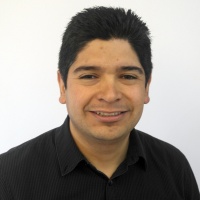 Samuel is an assistant professor and specialist in cooperative extension. His specialty is in water resources planning and management. During the decision-making process, Samuel is the person who works among scientists, engineers, environmentalists, system operators and decision makers; it integrates policy ideas and quantifies benefits and disadvantages. Samuel shares his experience and passion for quantitative water planning with students through his course entitled Water, Science and Management (ESM-121), in which he demonstrates to students tools and methods for designing sustainable water resource systems
Samuel is an assistant professor and specialist in cooperative extension. His specialty is in water resources planning and management. During the decision-making process, Samuel is the person who works among scientists, engineers, environmentalists, system operators and decision makers; it integrates policy ideas and quantifies benefits and disadvantages. Samuel shares his experience and passion for quantitative water planning with students through his course entitled Water, Science and Management (ESM-121), in which he demonstrates to students tools and methods for designing sustainable water resource systems Ph.D. Environmental Engineering - ETH Zurich, Switzerland. Assistant Associate Professor at the University of California Davis.
Ph.D. Environmental Engineering - ETH Zurich, Switzerland. Assistant Associate Professor at the University of California Davis. Khaled Bali - University of California, Cooperative Extension, - USA
Alejandro Antunes –Institute of Investigaciones Agrarias - CHILE
 Graduated in Agronomy from the Federal University of Viçosa (1977), Master in Agricultural Engineering from the Federal University of Viçosa (1979) and doctorate in Agronomy from the Luiz de Queiroz Higher School of Agriculture (1986). He retired as Full Professor at the University of São Paulo, Campus Luiz de Queiroz, in June 2018. He is currently Senior Collaborating Professor at the University of São Paulo, Campus Luiz de Queiroz, and Visiting Professor at the Agricultural Engineering Department at the University Federal do Ceará - UFC. He was Head of the Department of Biosystems Engineering at ESALQ / USP in the periods 03/2003 to 03/2007 and 03/2011 to 03/2013. He was Coordinator of the Graduate Program in Irrigation and Drainage at ESALQ / USP in the period 11/2002 to 11/2008. He is the Coordinator of the National Institute of Science and Technology in Irrigation Engineering (INCT-EI) which is headquartered at ESALQ / USP and leader of the CNPq Research Group called: Metrology, Standardization and Quality in Irrigation and Drainage. He coordinated the Irrigation Advisory Service Project - SAI, a project carried out in the Irrigation District of Baixo Acarau-CE. He was a member of the CNPq Agricultural Engineering Advisory Committee from July 1, 2013 to June 30, 2016 (as Alternate) and from October 1, 2016 to June 30, 2019 (as Holder ). He has experience in the field of Agronomy, with an emphasis on Irrigation, working mainly on the following themes: irrigation management, hydraulics of irrigation systems, optimization of water use, evapotranspiration, fertigation and simulation.
Graduated in Agronomy from the Federal University of Viçosa (1977), Master in Agricultural Engineering from the Federal University of Viçosa (1979) and doctorate in Agronomy from the Luiz de Queiroz Higher School of Agriculture (1986). He retired as Full Professor at the University of São Paulo, Campus Luiz de Queiroz, in June 2018. He is currently Senior Collaborating Professor at the University of São Paulo, Campus Luiz de Queiroz, and Visiting Professor at the Agricultural Engineering Department at the University Federal do Ceará - UFC. He was Head of the Department of Biosystems Engineering at ESALQ / USP in the periods 03/2003 to 03/2007 and 03/2011 to 03/2013. He was Coordinator of the Graduate Program in Irrigation and Drainage at ESALQ / USP in the period 11/2002 to 11/2008. He is the Coordinator of the National Institute of Science and Technology in Irrigation Engineering (INCT-EI) which is headquartered at ESALQ / USP and leader of the CNPq Research Group called: Metrology, Standardization and Quality in Irrigation and Drainage. He coordinated the Irrigation Advisory Service Project - SAI, a project carried out in the Irrigation District of Baixo Acarau-CE. He was a member of the CNPq Agricultural Engineering Advisory Committee from July 1, 2013 to June 30, 2016 (as Alternate) and from October 1, 2016 to June 30, 2019 (as Holder ). He has experience in the field of Agronomy, with an emphasis on Irrigation, working mainly on the following themes: irrigation management, hydraulics of irrigation systems, optimization of water use, evapotranspiration, fertigation and simulation.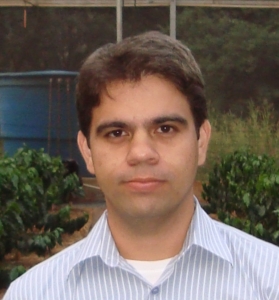 Graduated in Agronomic Engineering from FAZU (2009) and Technology in Irrigation and Drainage from IFTM (2008), Master in Irrigation and Drainage from Escola Superior de Agricultura Luiz de Queiroz -ESALQ / USP and Doctorate (PhD) in Agricultural Systems Engineering from ESALQ / USP, with a period of Doctorate Sandwich at the University of California / Davis - UC DAVIS. He is currently Adjunct Professor A1 at ICIAG / Institute of Agrarian Sciences at the Federal University of Uberlândia UFU / Campus Monte Carmelo, teaching 3 undergraduate courses and 1 graduate course. He published 28 scientific articles in indexed journals and dozens of papers in the annals of events. It operates mainly in the areas of: Water and Soil Engineering, Agrometeorology, Water Relations in crops / Irrigated Coffee and Water Stress / Deficient Irrigation.
Graduated in Agronomic Engineering from FAZU (2009) and Technology in Irrigation and Drainage from IFTM (2008), Master in Irrigation and Drainage from Escola Superior de Agricultura Luiz de Queiroz -ESALQ / USP and Doctorate (PhD) in Agricultural Systems Engineering from ESALQ / USP, with a period of Doctorate Sandwich at the University of California / Davis - UC DAVIS. He is currently Adjunct Professor A1 at ICIAG / Institute of Agrarian Sciences at the Federal University of Uberlândia UFU / Campus Monte Carmelo, teaching 3 undergraduate courses and 1 graduate course. He published 28 scientific articles in indexed journals and dozens of papers in the annals of events. It operates mainly in the areas of: Water and Soil Engineering, Agrometeorology, Water Relations in crops / Irrigated Coffee and Water Stress / Deficient Irrigation.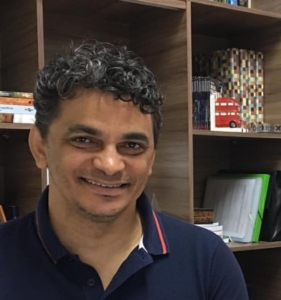 Graduated in Agronomy from the Federal Rural University of the Semi-Arid (1999), Master in Agricultural Engineering from the Federal University of Campina Grande (2001), PhD in Agronomy from the University of São Paulo - USP / ESALq (2004) and Postdoctoral from the University California Riverside (UCR) - US Salinity Laboratory (2014). He is currently Associate Professor IV at the Federal Rural University of the Semi-Arid and Research Productivity Scholarship - Level 1 A. Permanent professor of the Postgraduate Program in Phytotechnics. He has experience in the area of ecological management and soil and water conservation, with an emphasis on social technology in living with the semiarid and, management of salinity in agriculture. Award Winner: National Water Agency (ANA) 2017 in the Research and Technological Innovation Category; I ODS Brasil / Agenda 2030 Award in the Teaching Category Research and Extension and Honorable mention in the IV Celso Furtado Regional Development Award.
Graduated in Agronomy from the Federal Rural University of the Semi-Arid (1999), Master in Agricultural Engineering from the Federal University of Campina Grande (2001), PhD in Agronomy from the University of São Paulo - USP / ESALq (2004) and Postdoctoral from the University California Riverside (UCR) - US Salinity Laboratory (2014). He is currently Associate Professor IV at the Federal Rural University of the Semi-Arid and Research Productivity Scholarship - Level 1 A. Permanent professor of the Postgraduate Program in Phytotechnics. He has experience in the area of ecological management and soil and water conservation, with an emphasis on social technology in living with the semiarid and, management of salinity in agriculture. Award Winner: National Water Agency (ANA) 2017 in the Research and Technological Innovation Category; I ODS Brasil / Agenda 2030 Award in the Teaching Category Research and Extension and Honorable mention in the IV Celso Furtado Regional Development Award.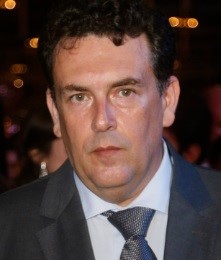 gricultural Engineer graduated from the Federal University of Lavras (1994), master in Agricultural Engineering from the Federal University of Paraíba (1997), doctor in Irrigation and Drainage from the University of São Paulo (2002), with post-doctorate in Water and Soil Conservation from University of São Paulo (2006). He is currently an associate professor in the Department of Agricultural Engineering at UFRPE, where he teaches disciplines in the area of water resources and the environment. He has experience in the field of Agricultural Engineering, with an emphasis on Irrigation and Drainage, acting mainly on the following themes: salinity, irrigation, soil solution, fertigation and water quality and reuse. He currently serves as Coordinator of the Graduate Program in Agricultural Engineering at UFRPE. In the Brazilian interinstitutional research, he acts as coordinator of the Network of Reuse of Domestic Sewage Treated for Hydro-Agricultural Production in Northeast Brazil (REREUNE / CNPq), which integrates different universities such as the Federal Rural University of the Semi-Arid and the Federal University of Recôncavo da Bahia in addition to composing the team of Researchers at the National Institute of Science and Technology in Salinity (INCTSal / CNPq), in addition to working in cooperation with the Department of Edafología at Universidad A Coruña in Spain and with the Department of Ecosystem Science and Management at Texas A & M University in the United States United States of America.
gricultural Engineer graduated from the Federal University of Lavras (1994), master in Agricultural Engineering from the Federal University of Paraíba (1997), doctor in Irrigation and Drainage from the University of São Paulo (2002), with post-doctorate in Water and Soil Conservation from University of São Paulo (2006). He is currently an associate professor in the Department of Agricultural Engineering at UFRPE, where he teaches disciplines in the area of water resources and the environment. He has experience in the field of Agricultural Engineering, with an emphasis on Irrigation and Drainage, acting mainly on the following themes: salinity, irrigation, soil solution, fertigation and water quality and reuse. He currently serves as Coordinator of the Graduate Program in Agricultural Engineering at UFRPE. In the Brazilian interinstitutional research, he acts as coordinator of the Network of Reuse of Domestic Sewage Treated for Hydro-Agricultural Production in Northeast Brazil (REREUNE / CNPq), which integrates different universities such as the Federal Rural University of the Semi-Arid and the Federal University of Recôncavo da Bahia in addition to composing the team of Researchers at the National Institute of Science and Technology in Salinity (INCTSal / CNPq), in addition to working in cooperation with the Department of Edafología at Universidad A Coruña in Spain and with the Department of Ecosystem Science and Management at Texas A & M University in the United States United States of America.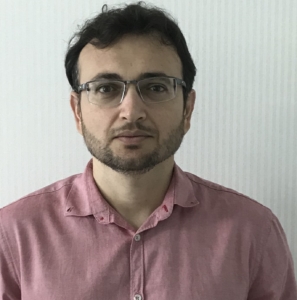 EAgronomist engineer (UFERSA-2004), Master (2007) and Doctor (2010) from UFRPE. He is an Associate Professor, Level II, Department of Agronomy / UFRPE (Since 2010). He is a permanent professor at the Graduate Programs in Soil Sciences and Agricultural Engineering at UFRPE. He was in charge of the Coordination of the Agronomy Course at UFRPE (2011-2018). He is currently Coordinator of the Postgraduate Course in Soil Science - UFRPE (10/2018 - present). Assistant Editor of the Brazilian Soil Science Magazine. Researches topics related to soil-plant interaction in environments affected by abiotic stresses. In his curriculum, themes such as phytoremediation, hydraulic relationships and geostatistics are highlighted. CNPq Research Productivity Scholar - Level 2 - CA AG - Agronomy
EAgronomist engineer (UFERSA-2004), Master (2007) and Doctor (2010) from UFRPE. He is an Associate Professor, Level II, Department of Agronomy / UFRPE (Since 2010). He is a permanent professor at the Graduate Programs in Soil Sciences and Agricultural Engineering at UFRPE. He was in charge of the Coordination of the Agronomy Course at UFRPE (2011-2018). He is currently Coordinator of the Postgraduate Course in Soil Science - UFRPE (10/2018 - present). Assistant Editor of the Brazilian Soil Science Magazine. Researches topics related to soil-plant interaction in environments affected by abiotic stresses. In his curriculum, themes such as phytoremediation, hydraulic relationships and geostatistics are highlighted. CNPq Research Productivity Scholar - Level 2 - CA AG - Agronomy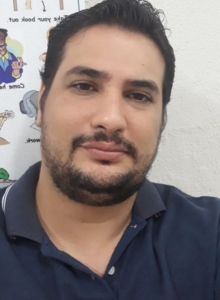 Agronomist graduated from the Federal Rural University of Pernambuco (UFRPE) in 2010, master's degree (2012) and PhD (2015) in Agronomy (Irrigation and Drainage) from the Faculty of Agronomic Sciences (FCA) of the Universidade Estadual Paulista (UNESP) Júlio de Mesquita Filho , campus of Botucatu-SP and Post-doctorate by the Federal Rural University of Pernambuco (UFRPE) in 2016. He is currently an Adjunct Professor at the Federal University of Ceará (UFC) in the Department of Agricultural Engineering (DENA), where he teaches the subjects of Irrigation and Drainage, Pressurized Irrigation and Drainage in Agriculture. His research is linked to agricultural engineering with a concentration of research in irrigation and drainage, working on lines related to fertigation, irrigated agriculture management, agrometeorology and irrigation engineering.
Agronomist graduated from the Federal Rural University of Pernambuco (UFRPE) in 2010, master's degree (2012) and PhD (2015) in Agronomy (Irrigation and Drainage) from the Faculty of Agronomic Sciences (FCA) of the Universidade Estadual Paulista (UNESP) Júlio de Mesquita Filho , campus of Botucatu-SP and Post-doctorate by the Federal Rural University of Pernambuco (UFRPE) in 2016. He is currently an Adjunct Professor at the Federal University of Ceará (UFC) in the Department of Agricultural Engineering (DENA), where he teaches the subjects of Irrigation and Drainage, Pressurized Irrigation and Drainage in Agriculture. His research is linked to agricultural engineering with a concentration of research in irrigation and drainage, working on lines related to fertigation, irrigated agriculture management, agrometeorology and irrigation engineering.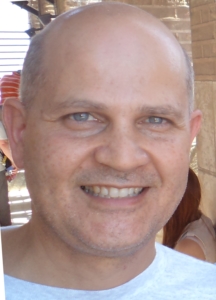 César S. B. Costa - BA in Oceanology from FURG. PhD in Biological Sciences from the University of East Anglia. Prof. from the FURG Oceanography Institute (Rio Grande, RS). He works in research on the population dynamics of coastal plants, salt water agriculture and phytoremediation of saline waters and soils.
César S. B. Costa - BA in Oceanology from FURG. PhD in Biological Sciences from the University of East Anglia. Prof. from the FURG Oceanography Institute (Rio Grande, RS). He works in research on the population dynamics of coastal plants, salt water agriculture and phytoremediation of saline waters and soils. Dr. Jorge FS Ferreira has a bachelor's degree in Agronomic Engineering (1983), a master's degree in Tropical Fruit Culture (1985) and a doctorate. PhD in Horticulture (1994) by Purdue University, with an emphasis on physiology and biochemistry of secondary plant metabolites. Dr. Ferreira worked as a plant physiologist for the (then) Southern Weed Science Lab in Stoneville, MS, where he developed technology used by the United States government to control illicit plants. He then worked as an environmental chemist for Agrevo, Aventis and then Bayer Crop Sciences. He taught plant biology at Southern Illinois University for two years, then joined the Appalachian Farming Systems Research Center in 2003. Currently, Dr. Ferreira works for the US Salinity Lab in Riverside, CA. His research focuses on the physiological and biochemical responses of agricultural crops (such as strawberries and alfalfa) to saline stress and the potential use of biochemical markers to identify salinity tolerance. He is particularly interested in antioxidants, sugars and other compounds that can be produced in response to high levels of stress (in the form of ROS) triggered by salinity in water and soil.
Dr. Jorge FS Ferreira has a bachelor's degree in Agronomic Engineering (1983), a master's degree in Tropical Fruit Culture (1985) and a doctorate. PhD in Horticulture (1994) by Purdue University, with an emphasis on physiology and biochemistry of secondary plant metabolites. Dr. Ferreira worked as a plant physiologist for the (then) Southern Weed Science Lab in Stoneville, MS, where he developed technology used by the United States government to control illicit plants. He then worked as an environmental chemist for Agrevo, Aventis and then Bayer Crop Sciences. He taught plant biology at Southern Illinois University for two years, then joined the Appalachian Farming Systems Research Center in 2003. Currently, Dr. Ferreira works for the US Salinity Lab in Riverside, CA. His research focuses on the physiological and biochemical responses of agricultural crops (such as strawberries and alfalfa) to saline stress and the potential use of biochemical markers to identify salinity tolerance. He is particularly interested in antioxidants, sugars and other compounds that can be produced in response to high levels of stress (in the form of ROS) triggered by salinity in water and soil.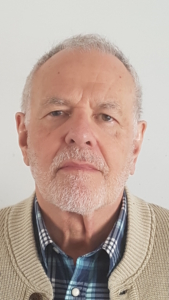 Prof. Dr. Raul Silvio Lavado, Ingeniero Agrónomo. Faculty of Agronomy and Veterinaria, UBA. Doctor in Diplomado en Edafología y Biología Vegetal. University of Granada. España. He is Professor at La Universidad de Buenos Aires, Argentina
Prof. Dr. Raul Silvio Lavado, Ingeniero Agrónomo. Faculty of Agronomy and Veterinaria, UBA. Doctor in Diplomado en Edafología y Biología Vegetal. University of Granada. España. He is Professor at La Universidad de Buenos Aires, Argentina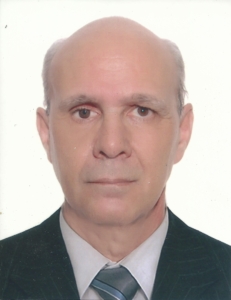 Graduated in Agricultural Engineering from the Federal University of Lavras (1981), Master in Agricultural Engineering from the Federal University of Viçosa (1984) and a PhD in Agronomy, area of concentration Irrigation and Drainage from the University of São Paulo (1997). Pos Doctor from Oregon State University, Oregon, United States (2014). He is currently a researcher at the Brazilian Agricultural Research Corporation, based at Embrapa Semiárido. Ad hoc consultant to the magazines: PAB, Ciência Rural, Horticultura Brasileira, Agricultural and Environmental Engineering, Caatinga ITEM. Irrigation and Modern Technology e - Irriga (Botucatu), Revista Brasileira de Fruticultura. He has experience in the field of Agricultural Engineering, with an emphasis on Irrigation and Drainage, acting mainly on the following themes: irrigation, fertigation, drip in crops, melon, onion, coffee, grape and citrus. He published 53 articles in a journal, 161 in Anais de evento, 18 book chapters, editor of a book. Member of the Publications Committee of Embrapa Semiárido and of the Internal Technical Committee of Embrapa Semiárido. Received the "Recognition of Agronomic Merit - 2014" award from CREA-PE; National Team Award, Brazilian Agricultural Research Corporation, 2011; National Team Award Project: Brazilian rocks as alternative sources of potassium for use in agricultural systems, Embrapa, 2007; National Team Award - Fundraising, Embrapa, 2004; National Team Award - Partnerships, Embrapa, 2003. He was a member of CIPA. The GESTEC Embrapa Semiárido group participates.
Graduated in Agricultural Engineering from the Federal University of Lavras (1981), Master in Agricultural Engineering from the Federal University of Viçosa (1984) and a PhD in Agronomy, area of concentration Irrigation and Drainage from the University of São Paulo (1997). Pos Doctor from Oregon State University, Oregon, United States (2014). He is currently a researcher at the Brazilian Agricultural Research Corporation, based at Embrapa Semiárido. Ad hoc consultant to the magazines: PAB, Ciência Rural, Horticultura Brasileira, Agricultural and Environmental Engineering, Caatinga ITEM. Irrigation and Modern Technology e - Irriga (Botucatu), Revista Brasileira de Fruticultura. He has experience in the field of Agricultural Engineering, with an emphasis on Irrigation and Drainage, acting mainly on the following themes: irrigation, fertigation, drip in crops, melon, onion, coffee, grape and citrus. He published 53 articles in a journal, 161 in Anais de evento, 18 book chapters, editor of a book. Member of the Publications Committee of Embrapa Semiárido and of the Internal Technical Committee of Embrapa Semiárido. Received the "Recognition of Agronomic Merit - 2014" award from CREA-PE; National Team Award, Brazilian Agricultural Research Corporation, 2011; National Team Award Project: Brazilian rocks as alternative sources of potassium for use in agricultural systems, Embrapa, 2007; National Team Award - Fundraising, Embrapa, 2004; National Team Award - Partnerships, Embrapa, 2003. He was a member of CIPA. The GESTEC Embrapa Semiárido group participates.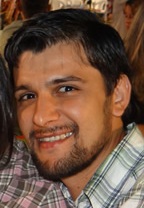 Graduated in Agronomic Engineering from the Federal University of Tocantins Foundation, UFT - TO (2005). Master in Agricultural Engineering from the Federal Rural University of Pernambuco UFRPE - PE (2008), PhD in Sciences - Irrigation and Drainage from the University of São Paulo USP / ESALQ - SP (2011). Post-doctorate at IESA / LAPIG at the Federal University of Goiás, UFG - GO (2015). He is a professor at the State University of Goiás, working in undergraduate and graduate courses (lato sensu and stricto sensu). Areas of interest and research are in the use and application of geotechnologies to watershed studies, environmental analysis, biophysical variables in the cerrado and the use of UAVs in agriculture. Works in the areas of topography, photogrammetry and photointerpretation, remote sensing and geographic information system.
Graduated in Agronomic Engineering from the Federal University of Tocantins Foundation, UFT - TO (2005). Master in Agricultural Engineering from the Federal Rural University of Pernambuco UFRPE - PE (2008), PhD in Sciences - Irrigation and Drainage from the University of São Paulo USP / ESALQ - SP (2011). Post-doctorate at IESA / LAPIG at the Federal University of Goiás, UFG - GO (2015). He is a professor at the State University of Goiás, working in undergraduate and graduate courses (lato sensu and stricto sensu). Areas of interest and research are in the use and application of geotechnologies to watershed studies, environmental analysis, biophysical variables in the cerrado and the use of UAVs in agriculture. Works in the areas of topography, photogrammetry and photointerpretation, remote sensing and geographic information system.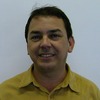 Professor Luiz Antonio Lima has a degree in Agricultural Engineering from the Federal University of Lavras-UFLA (1981), a master's degree in Water Science - University Of California Davis (1986) and a doctorate in Irrigation and Drainage - University of California Davis (1989). He was a researcher at EMBRAPA-CPAC (1982 and 1983) and has worked in the private sector (1998 to 2004), developing technical and commercial projects in Latin America for American and Israeli companies. He is currently a full professor at the Federal University of Lavras, responsible for the disciplines of irrigation projects (undergraduate), Hydrogeology, Drainage, Water Quality and Environmental Impacts (master's and doctorate). At UFLA he was coordinator of the postgraduate course in Agricultural Engineering, and of the course Water Resources in Agricultural Systems, both with master's and doctorate levels. He was research provost and acting chief of staff of the rectory. From 2005 to 2008, he was president of the Foundation for Support to Education Research and Extension - FAEPE. From 2009 to 2014 he was a member of the Agriculture Advisory Board of FAPEMIG. He also works in Environmental Engineering. He has already participated as a visiting professor at the Instituto Tecnológico VALE (ITV), giving classes in groundwater exploration and contamination. He is currently a member of the BIOMAS Project - Water Group, of the Forum for the Future, in the groundwater and drainage segment.
Professor Luiz Antonio Lima has a degree in Agricultural Engineering from the Federal University of Lavras-UFLA (1981), a master's degree in Water Science - University Of California Davis (1986) and a doctorate in Irrigation and Drainage - University of California Davis (1989). He was a researcher at EMBRAPA-CPAC (1982 and 1983) and has worked in the private sector (1998 to 2004), developing technical and commercial projects in Latin America for American and Israeli companies. He is currently a full professor at the Federal University of Lavras, responsible for the disciplines of irrigation projects (undergraduate), Hydrogeology, Drainage, Water Quality and Environmental Impacts (master's and doctorate). At UFLA he was coordinator of the postgraduate course in Agricultural Engineering, and of the course Water Resources in Agricultural Systems, both with master's and doctorate levels. He was research provost and acting chief of staff of the rectory. From 2005 to 2008, he was president of the Foundation for Support to Education Research and Extension - FAEPE. From 2009 to 2014 he was a member of the Agriculture Advisory Board of FAPEMIG. He also works in Environmental Engineering. He has already participated as a visiting professor at the Instituto Tecnológico VALE (ITV), giving classes in groundwater exploration and contamination. He is currently a member of the BIOMAS Project - Water Group, of the Forum for the Future, in the groundwater and drainage segment.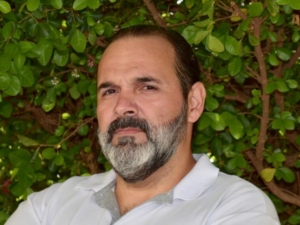 Agribusiness manager. Master in Water Resources Management and Regulation. Responsible for managing water use in three regions of the State of Minas Gerais. He is a representative of water users for irrigation in the Basin Committee and in the National Water Resources Council.
Agribusiness manager. Master in Water Resources Management and Regulation. Responsible for managing water use in three regions of the State of Minas Gerais. He is a representative of water users for irrigation in the Basin Committee and in the National Water Resources Council.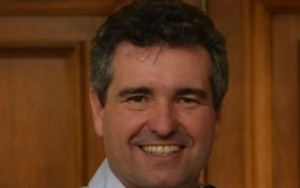 Agricultural Engineer graduated from Unicamp (University of Campinas) where he also completed his master's degree in Mechanical Engineering (Refrigeration) in 1994. He specialized in post-harvest technologies at Laval University in Canada. In 1998, he worked in the post-harvest department of the company Ransco Industries (California / USA). In 1999, he was vice president of the FS Technologie electrolytic treatment plant in Montréal. In 2003, he entered the protected cultivation area as Director General of the cut rose company Rose Drummond in Québec. In 2007, he was vice president of operations for the hydroponic lettuce company Hidroserre Mirabel (Canada). Between 2008 and 2009, he was executive vice president of Harnois Industries, the largest manufacturer of agricultural greenhouses in North America. Returning to Brazil, since the beginning of 2010, he was a founding partner of the company Estufas Agrícolas Comércio e Assessoria Ltda known in the market as EACEA - Solutions in protected cultivation, specializing in projects and advice in the protected cultivation sector. In 2015, he was a founding partner of the first private technology and training center in protected cultivation in Brazil - Projeto HORTICUNHA.
Agricultural Engineer graduated from Unicamp (University of Campinas) where he also completed his master's degree in Mechanical Engineering (Refrigeration) in 1994. He specialized in post-harvest technologies at Laval University in Canada. In 1998, he worked in the post-harvest department of the company Ransco Industries (California / USA). In 1999, he was vice president of the FS Technologie electrolytic treatment plant in Montréal. In 2003, he entered the protected cultivation area as Director General of the cut rose company Rose Drummond in Québec. In 2007, he was vice president of operations for the hydroponic lettuce company Hidroserre Mirabel (Canada). Between 2008 and 2009, he was executive vice president of Harnois Industries, the largest manufacturer of agricultural greenhouses in North America. Returning to Brazil, since the beginning of 2010, he was a founding partner of the company Estufas Agrícolas Comércio e Assessoria Ltda known in the market as EACEA - Solutions in protected cultivation, specializing in projects and advice in the protected cultivation sector. In 2015, he was a founding partner of the first private technology and training center in protected cultivation in Brazil - Projeto HORTICUNHA.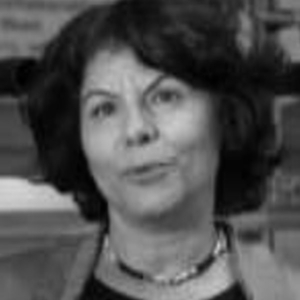 Professor at LargeSenior Expert, SUEZ - FRANCE. Is an international specialist with over 30 years of research and practical experience in the field of environmental engineering. His career began as a designer and project manager for wastewater treatment plants, followed by experience in interdisciplinary academic research as coordinator and project manager, culminating as a technical specialist and consultant for large-scale operations, new offerings and policy development. During her career, she has held important positions in different professional organizations, for example, President of the IWA Water Reuse Expert Group.
Professor at LargeSenior Expert, SUEZ - FRANCE. Is an international specialist with over 30 years of research and practical experience in the field of environmental engineering. His career began as a designer and project manager for wastewater treatment plants, followed by experience in interdisciplinary academic research as coordinator and project manager, culminating as a technical specialist and consultant for large-scale operations, new offerings and policy development. During her career, she has held important positions in different professional organizations, for example, President of the IWA Water Reuse Expert Group.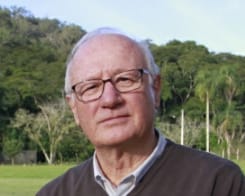 Agronomist (1970) from the Federal University of Rio Grande do Sul (UFRGS). Master in Soil Sciences at UFRGS (1973). PhD in Agronomy from the University of São Paulo (1985). He did postdoctoral studies at the University of Reading, United Kingdom (2006). Full Professor (retired) at Fac. Agronomia at UFRGS, working from 1975 to 2019. Researcher from 1980 to 2019 (having reached a maximum level, 1-A) by the National Council for Scientific and Technological Development (CNPq). Founding member of the International Society of Agricultural Meteorology. He worked on missions for the CAPES-COFECUB agreement at INRA and INA-PG (France) in 1991, and for the CAPES-FIPSE Program at the University of Florida (USA) in 2012. President of the Brazilian Society of Agrometeorology and the Federation of Latin Associations - American Agrometeorology (1999-2001). Leader of the Agrometeorology Research Group / UFRGS at CNPq, until 2018. Coordinator of the Graduate Programs in Agronomy at UFRGS (1992-1993) and in Phytotechnics at UFRGS (2003-2005). Brazilian coordinator in a Brazil-Germany-Israel research program (1994-1999) by the German-Israeli Agricultural Research Agreement for the Benefit of Developing Countries, funded by the German agency GTZ. Awarded by the Brazilian Society of Agrometeorology with the Sérgio Westphalen, in 2015. Laureate in 2017, with the "O Futuro da Terra" award in the Innovation, Rural Technology and Entrepreneurship category by FAPERGS, with support from Farsul, Bradesco and Jornal do Comércio. Representative of Brazil in the CAgM Expert Team on Capacity Building in Focus Area 4, of the Agricultural Meteorology Division of the World Meteorological Organization (WMO), from 2015 to 2017. Lead author of the books "As Plants and the Climate - Principles and Applications", by 2017, by the publisher Agrolivros and "Agrometeorology Applied to Irrigation", 1992, by Editora da UFRGS. He has experience in: climate-plant relations, soil-plant-atmosphere water relations, micrometeorology of crops, irrigation, protected crops, corn, soybeans, beans, canola, grapevines and apple trees.
Agronomist (1970) from the Federal University of Rio Grande do Sul (UFRGS). Master in Soil Sciences at UFRGS (1973). PhD in Agronomy from the University of São Paulo (1985). He did postdoctoral studies at the University of Reading, United Kingdom (2006). Full Professor (retired) at Fac. Agronomia at UFRGS, working from 1975 to 2019. Researcher from 1980 to 2019 (having reached a maximum level, 1-A) by the National Council for Scientific and Technological Development (CNPq). Founding member of the International Society of Agricultural Meteorology. He worked on missions for the CAPES-COFECUB agreement at INRA and INA-PG (France) in 1991, and for the CAPES-FIPSE Program at the University of Florida (USA) in 2012. President of the Brazilian Society of Agrometeorology and the Federation of Latin Associations - American Agrometeorology (1999-2001). Leader of the Agrometeorology Research Group / UFRGS at CNPq, until 2018. Coordinator of the Graduate Programs in Agronomy at UFRGS (1992-1993) and in Phytotechnics at UFRGS (2003-2005). Brazilian coordinator in a Brazil-Germany-Israel research program (1994-1999) by the German-Israeli Agricultural Research Agreement for the Benefit of Developing Countries, funded by the German agency GTZ. Awarded by the Brazilian Society of Agrometeorology with the Sérgio Westphalen, in 2015. Laureate in 2017, with the "O Futuro da Terra" award in the Innovation, Rural Technology and Entrepreneurship category by FAPERGS, with support from Farsul, Bradesco and Jornal do Comércio. Representative of Brazil in the CAgM Expert Team on Capacity Building in Focus Area 4, of the Agricultural Meteorology Division of the World Meteorological Organization (WMO), from 2015 to 2017. Lead author of the books "As Plants and the Climate - Principles and Applications", by 2017, by the publisher Agrolivros and "Agrometeorology Applied to Irrigation", 1992, by Editora da UFRGS. He has experience in: climate-plant relations, soil-plant-atmosphere water relations, micrometeorology of crops, irrigation, protected crops, corn, soybeans, beans, canola, grapevines and apple trees.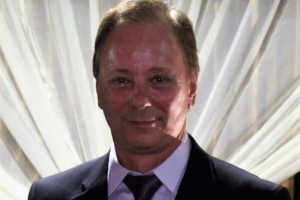 He has been a professor at FCAV-Unesp in Jaboticabal since 2011. He was a researcher at IAPAR until 2011, holds a degree in Agronomic Engineering from ESALQ / USP, Master in Irrigation and Drainage from ESALQ / USP, PhD in Agricultural Engineering from McGill University and Post-doctor in Simulation Models by ESALQ / USP. He is currently professor of irrigation of the undergraduate course in Agronomic Engineering, professor and advisor of master's and doctorate courses in Plant Production and Soil Science and member of the Board of the Postgraduate Course in Soil Science at FCAV-Unesp. He is also Head of the Department of Engineering and Exact Sciences at FCAV-Unesp, Editor-in-Chief of the magazine Engenharia Agrícola, leader of the Research Group on Irrigation and Environment (GPIMA) and serves as a researcher for four other Research Groups accredited by the Directory of CNPq's Brazilian Research Groups. He mainly works on the following themes: irrigation, water balance, simulation and modeling
He has been a professor at FCAV-Unesp in Jaboticabal since 2011. He was a researcher at IAPAR until 2011, holds a degree in Agronomic Engineering from ESALQ / USP, Master in Irrigation and Drainage from ESALQ / USP, PhD in Agricultural Engineering from McGill University and Post-doctor in Simulation Models by ESALQ / USP. He is currently professor of irrigation of the undergraduate course in Agronomic Engineering, professor and advisor of master's and doctorate courses in Plant Production and Soil Science and member of the Board of the Postgraduate Course in Soil Science at FCAV-Unesp. He is also Head of the Department of Engineering and Exact Sciences at FCAV-Unesp, Editor-in-Chief of the magazine Engenharia Agrícola, leader of the Research Group on Irrigation and Environment (GPIMA) and serves as a researcher for four other Research Groups accredited by the Directory of CNPq's Brazilian Research Groups. He mainly works on the following themes: irrigation, water balance, simulation and modeling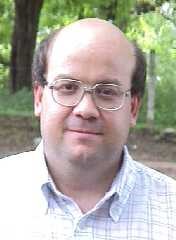 Graduated in Civil Engineering from the University of Brasília (1986); M.Sc in Civil Engineering - Water Resources- University of New Hampshire (1990) and Ph.D. in Engineering - Drexel University (1994). He is currently Full Professor at the Federal University of Ceará. & # 10; Research in the areas of Methods Numerics Applied to Engineering and in the Hydraulics of Water Distribution Systems, Sewage Systems and Pipelines, as well as in the Hydrogeology area, acting mainly on the following themes: Finite Elements and Non-meshed Elements, Use of EPANET and SWMM for Simulation and Hydraulic Modeling of Water Distribution Networks, Sewerage Networks, Drainage Networks and Underground Water Flow and Aquifer Contamination.
Graduated in Civil Engineering from the University of Brasília (1986); M.Sc in Civil Engineering - Water Resources- University of New Hampshire (1990) and Ph.D. in Engineering - Drexel University (1994). He is currently Full Professor at the Federal University of Ceará. & # 10; Research in the areas of Methods Numerics Applied to Engineering and in the Hydraulics of Water Distribution Systems, Sewage Systems and Pipelines, as well as in the Hydrogeology area, acting mainly on the following themes: Finite Elements and Non-meshed Elements, Use of EPANET and SWMM for Simulation and Hydraulic Modeling of Water Distribution Networks, Sewerage Networks, Drainage Networks and Underground Water Flow and Aquifer Contamination.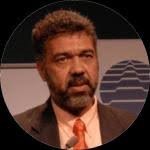 Graduated in Agronomy from the Federal University of Recôncavo da Bahia (1987) and postgraduate (Specialization) in Irrigation and Drainage by FAMESF, currently UNEB. He is currently an agronomist at the Companhia de Desenvolvimento do Vales do São Francisco and Parnaiba - DF. Has experience in Agricultural Engineering, with emphasis on Irrigation and Drainage
Graduated in Agronomy from the Federal University of Recôncavo da Bahia (1987) and postgraduate (Specialization) in Irrigation and Drainage by FAMESF, currently UNEB. He is currently an agronomist at the Companhia de Desenvolvimento do Vales do São Francisco and Parnaiba - DF. Has experience in Agricultural Engineering, with emphasis on Irrigation and Drainage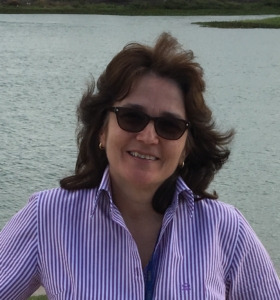 Graduated in Agronomy from the Federal Rural University of Pernambuco (1986), Master in Agronomy (Soil Sciences) from the Federal Rural University of Pernambuco (1993) and PhD in Soils and Plant Nutrition from the Federal University of Viçosa (2002). Post-Doctorate in: Soils and Plant Nutrition by the Federal University of Viçosa (2008); in Ecosystem Science and Management by Texas A & M University (2016). Full Professor at the Federal Rural University of Pernambuco. Research lines: saline and sodium soils, management and recovery of soils affected by salts, phytoremediation of saline soils, soil organic matter, soil-forest relationship, semiarid soils, irrigation water quality. Permanent Professor of the Graduate Programs in: Soil Science and Forest Sciences at the Federal Rural University of Pernambuco
Graduated in Agronomy from the Federal Rural University of Pernambuco (1986), Master in Agronomy (Soil Sciences) from the Federal Rural University of Pernambuco (1993) and PhD in Soils and Plant Nutrition from the Federal University of Viçosa (2002). Post-Doctorate in: Soils and Plant Nutrition by the Federal University of Viçosa (2008); in Ecosystem Science and Management by Texas A & M University (2016). Full Professor at the Federal Rural University of Pernambuco. Research lines: saline and sodium soils, management and recovery of soils affected by salts, phytoremediation of saline soils, soil organic matter, soil-forest relationship, semiarid soils, irrigation water quality. Permanent Professor of the Graduate Programs in: Soil Science and Forest Sciences at the Federal Rural University of Pernambuco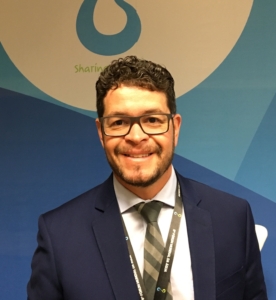 Holds a degree in Civil Engineering and a master's degree in Environmental Technology and Water Resources from the University of Brasília (2002). He is currently manager of studies and surveys - Water Resources Planning Superintendence of the National Water Agency. He has experience in the area of Sanitary Engineering, with an emphasis on planning sanitation systems and wastewater treatment, acting mainly on the following themes: sanitary sewage, water supply and water resources.
Holds a degree in Civil Engineering and a master's degree in Environmental Technology and Water Resources from the University of Brasília (2002). He is currently manager of studies and surveys - Water Resources Planning Superintendence of the National Water Agency. He has experience in the area of Sanitary Engineering, with an emphasis on planning sanitation systems and wastewater treatment, acting mainly on the following themes: sanitary sewage, water supply and water resources. Agronomist and Environmental Manager, both graduated from ESALQ / USP.
Responsible in Brazil for the application of FieldNET and FieldNET Advisor irrigation systems management and management technologies.
I have experience and focus on precision agriculture, digital agriculture and innovation in agricultural production systems.
I did an internship at the John Deere Precision Agriculture and Innovation Center, participating in the investigation and generation of agronomic hypotheses, also working with the Precision Agriculture Products Marketing team, mainly in digital and embedded solutions.
I have experience in surveying and analyzing the market in the area of livestock production costs, sugarcane phytotechnics and agricultural experimentation.
Agronomist and Environmental Manager, both graduated from ESALQ / USP.
Responsible in Brazil for the application of FieldNET and FieldNET Advisor irrigation systems management and management technologies.
I have experience and focus on precision agriculture, digital agriculture and innovation in agricultural production systems.
I did an internship at the John Deere Precision Agriculture and Innovation Center, participating in the investigation and generation of agronomic hypotheses, also working with the Precision Agriculture Products Marketing team, mainly in digital and embedded solutions.
I have experience in surveying and analyzing the market in the area of livestock production costs, sugarcane phytotechnics and agricultural experimentation.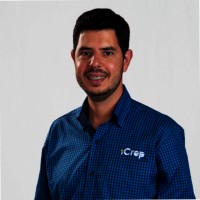 Agronomist, specialist in irrigation management. Partner and Commercial Director of iCrop - Tecnologia e Consultoria Agricola Ltda.
Agronomist, specialist in irrigation management. Partner and Commercial Director of iCrop - Tecnologia e Consultoria Agricola Ltda.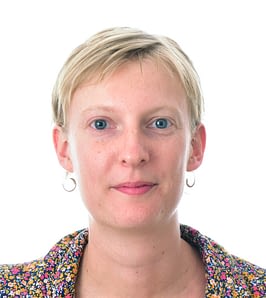 In it Verhulst is a senior scientist and agronomist of farming systems. With a team of researchers and local officials, she works to develop management practices based on conservation agriculture and post-harvest technologies in Latin America, with a focus on Mexico and Central America. The agronomic management practices that Verhulst and his team develop aim to conserve natural resources, obtain high and stable yields and increase the economic return for farmers. Their post-harvest work focuses on evaluating technologies for small farmers that allow them to store their grains while preserving their quality until consumption. Currently, its network has experiments carried out by local collaborators in more than 50 locations in Mexico. Capacity building with researchers and extension workers is an important part of the team's work. They share results through publications, ranging from scientific articles to extension brochures and scale recommendations for farmers through innovation networks.
In it Verhulst is a senior scientist and agronomist of farming systems. With a team of researchers and local officials, she works to develop management practices based on conservation agriculture and post-harvest technologies in Latin America, with a focus on Mexico and Central America. The agronomic management practices that Verhulst and his team develop aim to conserve natural resources, obtain high and stable yields and increase the economic return for farmers. Their post-harvest work focuses on evaluating technologies for small farmers that allow them to store their grains while preserving their quality until consumption. Currently, its network has experiments carried out by local collaborators in more than 50 locations in Mexico. Capacity building with researchers and extension workers is an important part of the team's work. They share results through publications, ranging from scientific articles to extension brochures and scale recommendations for farmers through innovation networks.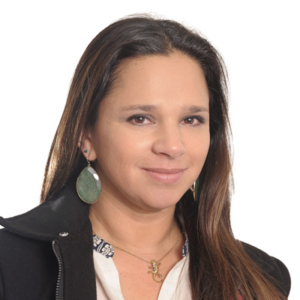 PhD in Agricultural Sciences. Mention in physiology and fruit nutrition. Pontifical Catholic University, Chile. Degree in Agronomy, Pontificia Universidad Católica de Valparaíso, Chile. Agronomist Engineer, Pontificia Universidad Católica de Valparaíso, Chile. DEVELOPMENT AREA: Fruit Physiology, Fruit Growing, Irrigation Management, Water Relations.
PhD in Agricultural Sciences. Mention in physiology and fruit nutrition. Pontifical Catholic University, Chile. Degree in Agronomy, Pontificia Universidad Católica de Valparaíso, Chile. Agronomist Engineer, Pontificia Universidad Católica de Valparaíso, Chile. DEVELOPMENT AREA: Fruit Physiology, Fruit Growing, Irrigation Management, Water Relations.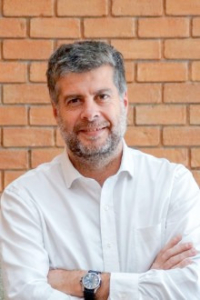 Ph.D. Atmospheric Sciences, Cornell University. Master in Hydraulic and Environmental Engineering Sciences. Agricultural engineer. Pontifical Catholic University of Chile. DEVELOPMENT AREA: Climate change on agriculture, global change, applied Climatology, impacts and adaptation of variability, and water resources.
Ph.D. Atmospheric Sciences, Cornell University. Master in Hydraulic and Environmental Engineering Sciences. Agricultural engineer. Pontifical Catholic University of Chile. DEVELOPMENT AREA: Climate change on agriculture, global change, applied Climatology, impacts and adaptation of variability, and water resources.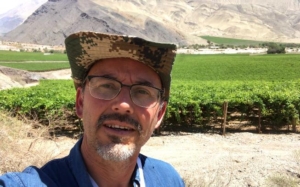 Claudio Balbontín Nesvara is an Agronomist from the University of Chile, a Master of Science from the Postgraduate College of Mexico and a Doctor of Agricultural Sciences from the Higher Technical School of Agricultural Engineers of the Castilla-La Mancha University, Spain. His work experience is mainly related to agricultural research work in international centers such as the Laboratory of Soil Fertility and Environmental Chemistry of the Postgraduate College of Mexico, the Remote Sensing and GIS section of the Regional Development Institute of the Castilla La Mancha University in Spain and the Instituto de Investigaciones Agropecuarias-INIA of Chile. Dr. Balbontín's line of research is focused on defining the irrigation needs of crops, using the conceptual framework of water relations in plants and the use of satellite tools, for efficient management of water resources in agriculture. . Currently, the professional works as a researcher in irrigation at the Intihuasi Regional Center (La Serena) of the Institute of Agricultural Research INIA Chile, where he leads the CAPRA Remote Sensing Laboratory, develops basic science projects (CONICYT) and regional and national projects ( PLAS-Chile Satellite Agricultural Platform), financed with public and private funds.
Claudio Balbontín Nesvara is an Agronomist from the University of Chile, a Master of Science from the Postgraduate College of Mexico and a Doctor of Agricultural Sciences from the Higher Technical School of Agricultural Engineers of the Castilla-La Mancha University, Spain. His work experience is mainly related to agricultural research work in international centers such as the Laboratory of Soil Fertility and Environmental Chemistry of the Postgraduate College of Mexico, the Remote Sensing and GIS section of the Regional Development Institute of the Castilla La Mancha University in Spain and the Instituto de Investigaciones Agropecuarias-INIA of Chile. Dr. Balbontín's line of research is focused on defining the irrigation needs of crops, using the conceptual framework of water relations in plants and the use of satellite tools, for efficient management of water resources in agriculture. . Currently, the professional works as a researcher in irrigation at the Intihuasi Regional Center (La Serena) of the Institute of Agricultural Research INIA Chile, where he leads the CAPRA Remote Sensing Laboratory, develops basic science projects (CONICYT) and regional and national projects ( PLAS-Chile Satellite Agricultural Platform), financed with public and private funds.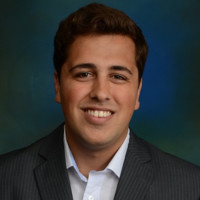 Agronomist and Master in Agricultural Engineering from the Federal University of Viçosa - UFV. PhD student at the Federal University of Viçosa. He currently works in the private sector as an irrigation consultant throughout Latin America. A passionate and encourager of Irrigated Agriculture.
Agronomist and Master in Agricultural Engineering from the Federal University of Viçosa - UFV. PhD student at the Federal University of Viçosa. He currently works in the private sector as an irrigation consultant throughout Latin America. A passionate and encourager of Irrigated Agriculture.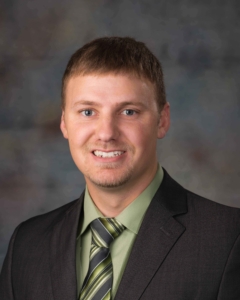 Assistant Professor: Specialist in Irrigation Management. Ph.D., Agricultural and Biological Systems Engineering, Univ. of Nebraska-Lincoln, 2015. MS, Agricultural and Biological Systems Engineering, Univ. Nebraska-Lincoln, 2013. BS, Biological Systems Engineering, Univ. de Nebraska-Lincoln, 2011. Research and professional interest areas: Total and deficient irrigation management; Technologies for monitoring soil water; Dynamics of water intake in the culture; Fertilizer interactions with nitrogen and water and their effects on crop performance.
Assistant Professor: Specialist in Irrigation Management. Ph.D., Agricultural and Biological Systems Engineering, Univ. of Nebraska-Lincoln, 2015. MS, Agricultural and Biological Systems Engineering, Univ. Nebraska-Lincoln, 2013. BS, Biological Systems Engineering, Univ. de Nebraska-Lincoln, 2011. Research and professional interest areas: Total and deficient irrigation management; Technologies for monitoring soil water; Dynamics of water intake in the culture; Fertilizer interactions with nitrogen and water and their effects on crop performance.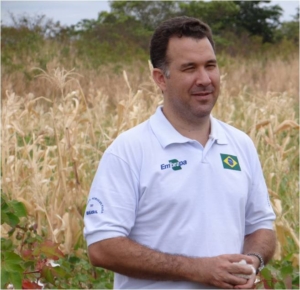 Graduated in Agronomic Engineering (1999) and Master in Phytosanity-Agricultural Entomology by the Federal Rural University of Pernambuco (2002). PhD in Agronomy - Agricultural Entomology by the Universidade Estadual Paulista Júlio de Mesquita Filho (2006), Campus Jaboticabal. He is currently a researcher - EMBRAPA ALGODÃO. He has experience in the field of Agronomy, with an emphasis on Entomology and Agricultural Acarology, working mainly on the following themes: cotton, castor bean, mites of agricultural importance, global climate changes and organic crops.
Graduated in Agronomic Engineering (1999) and Master in Phytosanity-Agricultural Entomology by the Federal Rural University of Pernambuco (2002). PhD in Agronomy - Agricultural Entomology by the Universidade Estadual Paulista Júlio de Mesquita Filho (2006), Campus Jaboticabal. He is currently a researcher - EMBRAPA ALGODÃO. He has experience in the field of Agronomy, with an emphasis on Entomology and Agricultural Acarology, working mainly on the following themes: cotton, castor bean, mites of agricultural importance, global climate changes and organic crops.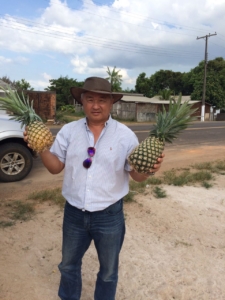 Graduated in Agronomy from the Federal University of Paraná (1988), master's in Vegetable Production - Kochi University (1992) and PhD in Vegetable Production - Ehime University (1995). Professor of fruit culture at the Universidade Estadual do Norte Fluminense (04/95 to 03/97) where he was mentor of the papaya project that resulted after years of research in a center of excellence and world reference in papaya research. He is currently an associate professor at the University of Brasília. He was a mentor and coordinated the integrated production of papaya until the publication of NTE - Specific Technical Norms in the DOU. Currently, he advises Camposol in Peru to implement the lychee culture for export and to introduce new varieties of lychee in Madagascar, which is the main export of fresh lychee in the world. In addition to papaya and lychee, he has studied other crops with great potential, always looking for new alternatives for the producer, such as longan, macadamia, pitaya, jujube, avocado, Portuguese chestnut and, more recently, blueberry without a cold requirement with the possibility of produce year round in subtropical conditions. He has made numerous study trips and participation in international events on all continents and with the wide national and international network in both the public and private sectors, he has coordinated numerous technical trips with Brazilian avocado, lychee and blueberry producers in the main producing countries to get to know the state-of-the-art of the culture in question. The focus of study has been the exotic fruit trees for Brazilians (example: blueberry) but extremely well-known and popular abroad and which are excellent cultivation alternatives for being sustainable fruits with low disease pressure and with excellent profitability for the producer.
Graduated in Agronomy from the Federal University of Paraná (1988), master's in Vegetable Production - Kochi University (1992) and PhD in Vegetable Production - Ehime University (1995). Professor of fruit culture at the Universidade Estadual do Norte Fluminense (04/95 to 03/97) where he was mentor of the papaya project that resulted after years of research in a center of excellence and world reference in papaya research. He is currently an associate professor at the University of Brasília. He was a mentor and coordinated the integrated production of papaya until the publication of NTE - Specific Technical Norms in the DOU. Currently, he advises Camposol in Peru to implement the lychee culture for export and to introduce new varieties of lychee in Madagascar, which is the main export of fresh lychee in the world. In addition to papaya and lychee, he has studied other crops with great potential, always looking for new alternatives for the producer, such as longan, macadamia, pitaya, jujube, avocado, Portuguese chestnut and, more recently, blueberry without a cold requirement with the possibility of produce year round in subtropical conditions. He has made numerous study trips and participation in international events on all continents and with the wide national and international network in both the public and private sectors, he has coordinated numerous technical trips with Brazilian avocado, lychee and blueberry producers in the main producing countries to get to know the state-of-the-art of the culture in question. The focus of study has been the exotic fruit trees for Brazilians (example: blueberry) but extremely well-known and popular abroad and which are excellent cultivation alternatives for being sustainable fruits with low disease pressure and with excellent profitability for the producer.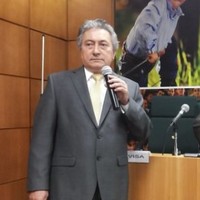 He is an electrical engineer and has a postgraduate degree in administration and marketing. He works in the Agribusiness Promotion area of the Secretariat for Economic Development and Labor - SEDET.
He is an electrical engineer and has a postgraduate degree in administration and marketing. He works in the Agribusiness Promotion area of the Secretariat for Economic Development and Labor - SEDET.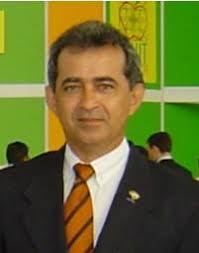 Agronomist with extensive experience in Irrigated Fruit; Specialization in Irrigated Agriculture by Pressurized System in Israel; Specialization in Environmental Management from the University of Fortaleza - UNIFOR; Effective Member of the IBGE / GCEA of Ceará; He works in the area of water resources for agribusiness of the Secretariat for Economic Development and Labor - SEDET.
Agronomist with extensive experience in Irrigated Fruit; Specialization in Irrigated Agriculture by Pressurized System in Israel; Specialization in Environmental Management from the University of Fortaleza - UNIFOR; Effective Member of the IBGE / GCEA of Ceará; He works in the area of water resources for agribusiness of the Secretariat for Economic Development and Labor - SEDET.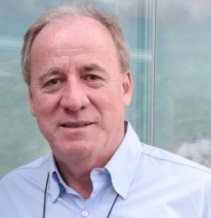 Agricultural Engineer and MS from UFV, PhD in Agronomy from UCo-Spain. Professor at UFV since 1983 and currently Senior Professor at DEA-UFV. He coordinated several projects funded by CNPq, FAPEMIG, BNB, EMBRAPA and is currently the coordinator of a research program on the availability of water resources in Western Bahia with resources from AIBA / IAIBA / PRODEAGRO
Agricultural Engineer and MS from UFV, PhD in Agronomy from UCo-Spain. Professor at UFV since 1983 and currently Senior Professor at DEA-UFV. He coordinated several projects funded by CNPq, FAPEMIG, BNB, EMBRAPA and is currently the coordinator of a research program on the availability of water resources in Western Bahia with resources from AIBA / IAIBA / PRODEAGRO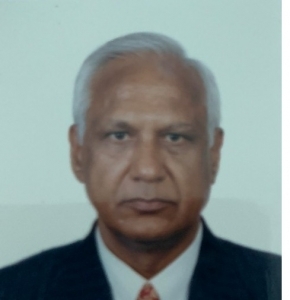 Graduated in Agriculture - University of Udai Pur (1963), Master in Soil Sciences - Punjab Agricultural University (1965) and PhD in Agronomic Sciences - Universite Catholique de Louvain (1974). He is currently a retired professor (titular) at the Federal University of Campina Grande and a visiting professor at the Federal University of Recôncavo da Bahia (UFRB), chief editor of the Agriambi Magazine at the Federal University of Campina Grande. He has experience in the area of Agricultural Engineering, with an emphasis on Water and Soil Engineering, working mainly on the following themes: salinity, irrigation, fertility, soil-water plant relationship, saline stress, plant tolerance to water deficit, water quality and water reuse. Water.
Graduated in Agriculture - University of Udai Pur (1963), Master in Soil Sciences - Punjab Agricultural University (1965) and PhD in Agronomic Sciences - Universite Catholique de Louvain (1974). He is currently a retired professor (titular) at the Federal University of Campina Grande and a visiting professor at the Federal University of Recôncavo da Bahia (UFRB), chief editor of the Agriambi Magazine at the Federal University of Campina Grande. He has experience in the area of Agricultural Engineering, with an emphasis on Water and Soil Engineering, working mainly on the following themes: salinity, irrigation, fertility, soil-water plant relationship, saline stress, plant tolerance to water deficit, water quality and water reuse. Water.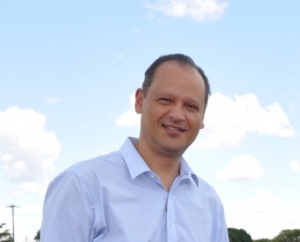 PhD in Agricultural Engineering from the Federal University of Viçosa (1999) and post-doctorate from the University of Nebraska-USA, Lincoln, in irrigation engineering and water management. He was a consultant to the Organization of American States (OAS) and a visiting researcher at the University of California, USA, Davis, in the Department of Land, Air and Water Resources Studies, where he developed work in modeling the hydrology of irrigated areas. He is currently a researcher in the area of water resources and irrigation and supervisor of the International Articulation Center at Embrapa Cerrados. He acts as a scientific advisor to several research promotion bodies and scientific journals. He coordinates the CNPq research group entitled Rede Agrohidro.
PhD in Agricultural Engineering from the Federal University of Viçosa (1999) and post-doctorate from the University of Nebraska-USA, Lincoln, in irrigation engineering and water management. He was a consultant to the Organization of American States (OAS) and a visiting researcher at the University of California, USA, Davis, in the Department of Land, Air and Water Resources Studies, where he developed work in modeling the hydrology of irrigated areas. He is currently a researcher in the area of water resources and irrigation and supervisor of the International Articulation Center at Embrapa Cerrados. He acts as a scientific advisor to several research promotion bodies and scientific journals. He coordinates the CNPq research group entitled Rede Agrohidro.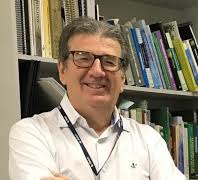 He graduated in Agronomic Engineering (1987) and Master (1991) in Agronomy (Vegetable Production) from the Faculty of Agricultural and Veterinary Sciences of Jaboticabal - UNESP (1987) and PhD in Irrigation and Drainage from Escola Superior Luiz de Queiroz - USP (1995 ). He is Full Professor at Universidade Estadual Paulista - Campus de Ilha Solteira. He was Head of DEFERS - Department of Plant Health, Rural and Soil Engineering from 2001 to 2003 and 2005 to 2009. He has experience in the field of Agricultural Engineering, with an emphasis on Irrigation and Drainage, acting mainly on the following themes: irrigated agriculture, irrigation systems irrigation, agrometeorology, hydrology and fertigation. He is a Professor and Advisor in the Agronomy course at UNESP Ilha Solteira and in the Postgraduate Programs in Production Systems and Professional Master in Water Resources Management and Regulation (PROFÁGUA) at UNESP Ilha Solteira and in Irrigation and Drainage at UNESP Botucatu. He is an Ad-Hoc Rapporteur for some Brazilian Technical Magazines and also for FAPESP.
He graduated in Agronomic Engineering (1987) and Master (1991) in Agronomy (Vegetable Production) from the Faculty of Agricultural and Veterinary Sciences of Jaboticabal - UNESP (1987) and PhD in Irrigation and Drainage from Escola Superior Luiz de Queiroz - USP (1995 ). He is Full Professor at Universidade Estadual Paulista - Campus de Ilha Solteira. He was Head of DEFERS - Department of Plant Health, Rural and Soil Engineering from 2001 to 2003 and 2005 to 2009. He has experience in the field of Agricultural Engineering, with an emphasis on Irrigation and Drainage, acting mainly on the following themes: irrigated agriculture, irrigation systems irrigation, agrometeorology, hydrology and fertigation. He is a Professor and Advisor in the Agronomy course at UNESP Ilha Solteira and in the Postgraduate Programs in Production Systems and Professional Master in Water Resources Management and Regulation (PROFÁGUA) at UNESP Ilha Solteira and in Irrigation and Drainage at UNESP Botucatu. He is an Ad-Hoc Rapporteur for some Brazilian Technical Magazines and also for FAPESP.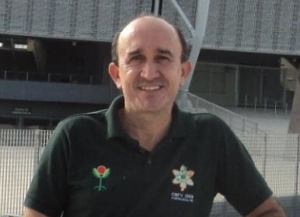 Graduated in Agronomy from the Federal University of Ceará (1991), Master in Agronomy (Soils and Plant Nutrition) from the Federal University of Ceará (1995), PhD in Agrarian Sciences (Plant Physiology) from the Federal University of Viçosa (2000) and post -doctorate from the University of California, Riverside (UCR) and US Salinity Laboratory / ARS / USDA (2014). He was Coordinator of the Graduate Program in Agricultural Engineering / UFC from August 2005 to August 2009 and from May 2011 to April 2013. He was also President of the XII Brazilian Congress of Plant Physiology (Fortaleza-CE, 2009), Coordinator of the I and II Brazilian Symposium on Salinity (Fortaleza-CE, 2010 and 2014) and the I Latin American Symposium on Salinity (Fortaleza-CE, 2019). He is Full Professor in the Department of Agricultural Engineering at the Center for Agricultural Sciences at the Federal University of Ceará, Researcher at the National Institute of Science and Technology in Salinity (INCTSal) and CNPq Productivity Scholarship level 1C. He works as an advisor for undergraduate students in Agronomy and postgraduate in Agricultural Engineering (Master and Doctorate) and Soil Science (Master and Doctorate). It mainly works on the following topics: Efficiency in the use of water and nutrients in plants under normal conditions and under stress; Tolerance to the salinity of annual crops (sorghum, string beans, corn, cotton), perennials (coconut, cashew) and ornamentals; Strategies for the use of saline and wastewater for irrigation (full and supplementary); Management of saline and sodium soils; Plant ecophysiology.
Graduated in Agronomy from the Federal University of Ceará (1991), Master in Agronomy (Soils and Plant Nutrition) from the Federal University of Ceará (1995), PhD in Agrarian Sciences (Plant Physiology) from the Federal University of Viçosa (2000) and post -doctorate from the University of California, Riverside (UCR) and US Salinity Laboratory / ARS / USDA (2014). He was Coordinator of the Graduate Program in Agricultural Engineering / UFC from August 2005 to August 2009 and from May 2011 to April 2013. He was also President of the XII Brazilian Congress of Plant Physiology (Fortaleza-CE, 2009), Coordinator of the I and II Brazilian Symposium on Salinity (Fortaleza-CE, 2010 and 2014) and the I Latin American Symposium on Salinity (Fortaleza-CE, 2019). He is Full Professor in the Department of Agricultural Engineering at the Center for Agricultural Sciences at the Federal University of Ceará, Researcher at the National Institute of Science and Technology in Salinity (INCTSal) and CNPq Productivity Scholarship level 1C. He works as an advisor for undergraduate students in Agronomy and postgraduate in Agricultural Engineering (Master and Doctorate) and Soil Science (Master and Doctorate). It mainly works on the following topics: Efficiency in the use of water and nutrients in plants under normal conditions and under stress; Tolerance to the salinity of annual crops (sorghum, string beans, corn, cotton), perennials (coconut, cashew) and ornamentals; Strategies for the use of saline and wastewater for irrigation (full and supplementary); Management of saline and sodium soils; Plant ecophysiology.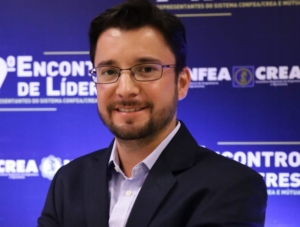 Agricultural Engineer (2008) and Master in Agronomy from the State University of Maringá - UEM (2010) (CAPES 5) with research development for his dissertation at the Agronomic Institute of Paraná (IAPAR), and PhD in Irrigation and Drainage from the Escola Superior de Agricultura Luiz de Queiroz -ESALQ / USP (2014) (CAPES 5). He completed a Sandwich Doctorate at the University of California / Davis - UC DAVIS, for a period of one year (2013), with a scholarship in force by CNPq / CsF. Since 2014 he is an Adjunct Professor at the Federal University of Mato Grosso do Sul - UFMS / CPCS. In 2020 he was elected Coordinator of the Specialized Chamber of Agronomy at CREA / MS. It operates mainly in the areas of: Irrigation Management, Economic Feasibility in Irrigation, Agrometeorology, Climate Zoning, Water Stress, Modeling and has been developing Remote Sensing activities applied to the management of water resources in partnership with the Water for Food Robert B. Daugherty Institute of University of Nebraska - UNL / USA, under the supervision of Professor Christopher Neale in his Post Doc project. He is leader of the Research Group on Economic Viability of Irrigation and Collaborator of the Institute of Research and Innovation in Irrigated Agriculture - INOVAGRI. Acts as Technical Expert of the State Public Ministry - MPMS in projects that involve water resources. Among the various representations on councils and commissions, his active and participative profile stands out as an academic, having been a student representative at the ESALQ-USP Congregation, at the Research Council (CoP / USP) and at the Graduate Council (CoPGr / USP). He was also President of the Association of Graduate Students (APG-ESALQ) during his PhD and President of the Academic Center for Agricultural Engineering (CAEAG / UEM), during his graduation.
Agricultural Engineer (2008) and Master in Agronomy from the State University of Maringá - UEM (2010) (CAPES 5) with research development for his dissertation at the Agronomic Institute of Paraná (IAPAR), and PhD in Irrigation and Drainage from the Escola Superior de Agricultura Luiz de Queiroz -ESALQ / USP (2014) (CAPES 5). He completed a Sandwich Doctorate at the University of California / Davis - UC DAVIS, for a period of one year (2013), with a scholarship in force by CNPq / CsF. Since 2014 he is an Adjunct Professor at the Federal University of Mato Grosso do Sul - UFMS / CPCS. In 2020 he was elected Coordinator of the Specialized Chamber of Agronomy at CREA / MS. It operates mainly in the areas of: Irrigation Management, Economic Feasibility in Irrigation, Agrometeorology, Climate Zoning, Water Stress, Modeling and has been developing Remote Sensing activities applied to the management of water resources in partnership with the Water for Food Robert B. Daugherty Institute of University of Nebraska - UNL / USA, under the supervision of Professor Christopher Neale in his Post Doc project. He is leader of the Research Group on Economic Viability of Irrigation and Collaborator of the Institute of Research and Innovation in Irrigated Agriculture - INOVAGRI. Acts as Technical Expert of the State Public Ministry - MPMS in projects that involve water resources. Among the various representations on councils and commissions, his active and participative profile stands out as an academic, having been a student representative at the ESALQ-USP Congregation, at the Research Council (CoP / USP) and at the Graduate Council (CoPGr / USP). He was also President of the Association of Graduate Students (APG-ESALQ) during his PhD and President of the Academic Center for Agricultural Engineering (CAEAG / UEM), during his graduation. Holds a degree in Agronomy from the Federal University of Bahia (1994), a master's degree in Irrigation and Drainage from the School of Agriculture Luíz de Queiroz (1998) and a doctorate in Irrigation and Drainage from the School of Agriculture Luíz de Queiroz (2002). He is currently a professor at the Federal Institute of Education, Science and Technology of the Sertão Pernambucana Petrolina-Pe. He has experience in the field of Agricultural Engineering, with an emphasis on Water and Soil Engineering, working mainly on the following topics: irrigation, evapotranspiration, irrigation management, water needs and lysimeter. Member of the faculty and master's advisor of the Graduate Course in Agricultural Engineering at UNIVASF, Juazeiro campus
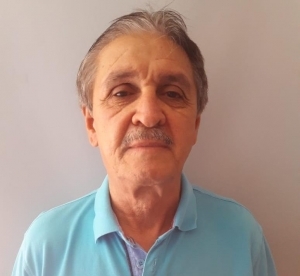 Graduated in Agronomy from UFC (1982), Master in Agronomy (Irrigation and Drainage) from UFC (1988) and Doctor in Irrigation and Drainage from Esalq / USP (1994). He is currently Full Professor at UFC. Lines of work: Surface Irrigation, Agricultural Drainage, Resource allocation in irrigated agriculture.
Graduated in Agronomy from UFC (1982), Master in Agronomy (Irrigation and Drainage) from UFC (1988) and Doctor in Irrigation and Drainage from Esalq / USP (1994). He is currently Full Professor at UFC. Lines of work: Surface Irrigation, Agricultural Drainage, Resource allocation in irrigated agriculture. Graduated in Meteorology from the Federal University of Alagoas (2000), Master in Agronomy (Agricultural Meteorology) from the Federal University of Viçosa (2002) and doctorate in Agronomy (Physics of the Agricultural Environment) from the University of São Paulo (2005). Has experience in Geosciences, with an emphasis on Agrometeorology, Climatology and Micrometeorology, acting mainly on the following themes: turbulent transport processes over vegetated surfaces, evapotranspiration, climatological statistics, geographic information system applied to atmospheric sciences, solar radiometry and agrometeorological modeling. He is currently Prof. Adjunct II of the Department of Environmental Sciences at the Forestry Institute of the Federal Rural University of Rio de Janeiro and serves as professor / advisor of the Graduate Programs in Practices in Sustainable Development at the Federal Rural University of Rio de Janeiro and Biosystems Engineering at the University Federal Fluminense.
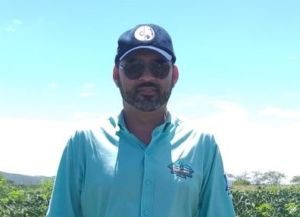 Professor of Agrometeorology at the Federal Rural University of Pernambuco, Academic Unit of Serra Talhada, for more than 10 years, currently in Class / Level: Associate II, Thieres George Freire da Silva is a CNPq Research Productivity Scholar with an emphasis on Agricultural Governance and in Ecosystem Studies. His research is aimed at assessing the impacts of Land Use Change and proposing Resilient Production Systems for Family Farming and Productive Chains based on Agrometeorological Services. It has index h (ISI) = 8, h (Scopus) = 11; h (GoogleScholar) = 22; and, RGscore = 27.78. Agronomist, with MSc. and DSc in Agricultural Meteorology is the current President of the Brazilian Society of Agrometeorology-SBAgro (2017-2019 / 2019-2021) and member of the Advisory and Evaluation Chamber of FACEPE. Contributes ad hoc consultancy to several institutions. It has a strong vocation in continuing education, currently having a doctorate (9), master's (7), Scientific Initiation-IC (6) and Course Conclusion-TCC (13) guidelines. He has already guided / co-directed 97 CI / Other proposals, 26 CBT, 2 specialists, 37 masters and 3 doctors, and supervised 3 researchers in Post-Doctoral Internship, totaling 161 research proposals, which resulted in 85 trained professionals. It has more than 600 scientific productions, of which more than 130 are articles in national and international journals, 8 are chapters and more than 480 are works of scientific events. He is a professor of undergraduate courses in Agronomy and Zootechnics, and Permanent Professor of the Postgraduate Programs in Agricultural Engineering (6) and in Plant Production (4). He works on two important NETWORK projects: one as a researcher at the National NET of Agricultural Zoning of Climate Risk, where he contributes to the definition and validation of the agricultural calendar of forage palm in Brazil, and another as a member of the Pernambuco Interinstitutional NETWORK Project aimed at ' Research and Water Technologies for the Development of the Semiarid Region '. He is the editor of indexed journals (Revista Caatinga and Revista Brasileira de Meteorologia) and reviewer of numerous national and international journals. He has experience with project management financed by CNPq (5), FACEPE (2) and UFRPE (1), having a Universal project (2018) in progress, and participation in several interinstitutional projects.
Professor of Agrometeorology at the Federal Rural University of Pernambuco, Academic Unit of Serra Talhada, for more than 10 years, currently in Class / Level: Associate II, Thieres George Freire da Silva is a CNPq Research Productivity Scholar with an emphasis on Agricultural Governance and in Ecosystem Studies. His research is aimed at assessing the impacts of Land Use Change and proposing Resilient Production Systems for Family Farming and Productive Chains based on Agrometeorological Services. It has index h (ISI) = 8, h (Scopus) = 11; h (GoogleScholar) = 22; and, RGscore = 27.78. Agronomist, with MSc. and DSc in Agricultural Meteorology is the current President of the Brazilian Society of Agrometeorology-SBAgro (2017-2019 / 2019-2021) and member of the Advisory and Evaluation Chamber of FACEPE. Contributes ad hoc consultancy to several institutions. It has a strong vocation in continuing education, currently having a doctorate (9), master's (7), Scientific Initiation-IC (6) and Course Conclusion-TCC (13) guidelines. He has already guided / co-directed 97 CI / Other proposals, 26 CBT, 2 specialists, 37 masters and 3 doctors, and supervised 3 researchers in Post-Doctoral Internship, totaling 161 research proposals, which resulted in 85 trained professionals. It has more than 600 scientific productions, of which more than 130 are articles in national and international journals, 8 are chapters and more than 480 are works of scientific events. He is a professor of undergraduate courses in Agronomy and Zootechnics, and Permanent Professor of the Postgraduate Programs in Agricultural Engineering (6) and in Plant Production (4). He works on two important NETWORK projects: one as a researcher at the National NET of Agricultural Zoning of Climate Risk, where he contributes to the definition and validation of the agricultural calendar of forage palm in Brazil, and another as a member of the Pernambuco Interinstitutional NETWORK Project aimed at ' Research and Water Technologies for the Development of the Semiarid Region '. He is the editor of indexed journals (Revista Caatinga and Revista Brasileira de Meteorologia) and reviewer of numerous national and international journals. He has experience with project management financed by CNPq (5), FACEPE (2) and UFRPE (1), having a Universal project (2018) in progress, and participation in several interinstitutional projects.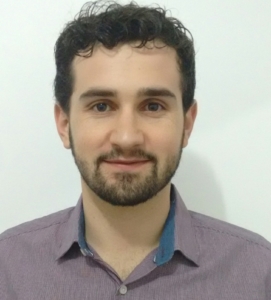 Has Agronomy from the Federal University of Santa Maria, Frederico Westphalen campus, RS, master's and doctorate in Agricultural Systems Engineering from ESALQ / USP, Piracicaba, SP, with a sandwich doctorate at the University of Florida, Gainesville, USA, developing research projects in the area of Agrometeorology and Phytotechnics, with an emphasis on models of productivity simulation and evaluation of soybean productivity under current and future climatic conditions, evaluating characteristics of water deficit tolerant and cultivation management for Brazil. During the post-doctorate, carried out in the Department of Biosystems Engineering (ESALQ / USP), he developed a project aimed at characterizing the production environments for soybean cultivation and strategic management to increase the resilience of the productive system in the agrometeorological context. He is currently Adjunct Professor A and researcher in the field of agrometeorology and modeling at the School of Agronomy at the Federal University of Goiás.
Has Agronomy from the Federal University of Santa Maria, Frederico Westphalen campus, RS, master's and doctorate in Agricultural Systems Engineering from ESALQ / USP, Piracicaba, SP, with a sandwich doctorate at the University of Florida, Gainesville, USA, developing research projects in the area of Agrometeorology and Phytotechnics, with an emphasis on models of productivity simulation and evaluation of soybean productivity under current and future climatic conditions, evaluating characteristics of water deficit tolerant and cultivation management for Brazil. During the post-doctorate, carried out in the Department of Biosystems Engineering (ESALQ / USP), he developed a project aimed at characterizing the production environments for soybean cultivation and strategic management to increase the resilience of the productive system in the agrometeorological context. He is currently Adjunct Professor A and researcher in the field of agrometeorology and modeling at the School of Agronomy at the Federal University of Goiás.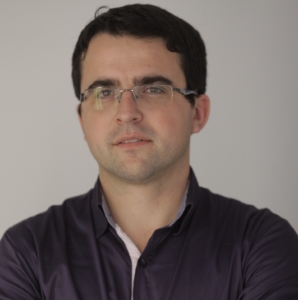 Graduated in Agronomy from the Federal University of Santa Maria (UFSM) and Universidad Nacional de Córdoba, Argentina (2009). PhD in Agronomy from UFSM and University of Nebraska - Lincoln, United States (2015). He was a rural extension worker at EMATER / RS-ASCAR from 2011 to 2013. He was a researcher at the Rio Grandense do Arroz Institute (IRGA) and Coordinator of the Agronomy Research Program at the IRGA Experimental Rice Station from 2014 to 2016. He was awarded with the "O FUTURO DA TERRA - 2016" award, in the Production Chains category by FAPERGS / Jornal do Comércio. He was Professor of the Agronomy Course at the Federal University of Pampa (UNIPAMPA), Itaqui campus in 2016. He is currently an Adjunct Professor at the Department of Fitotechnics at the Federal University of Santa Maria and Visiting Professor at the Universidad Nacional de Entre Ríos, Argentina. He was Coordinator of the Graduate Program in Agricultural Engineering (PPGEA) at UFSM (2019). He has experience in the field of Agronomy and Agricultural Engineering, with an emphasis on Potential and productivity gaps in agricultural crops and Efficiency in the use of resources. Since 2018 he has been a collaborator on the Global Yield Gap and Water Productivity Atlas (GYGA) Project in soy, corn and rice crops in Brazil. Since 2020, he has been a Consultant for the Soy Project led by the Latin American Fund for Irrigated Rice (FLAR) in 17 countries in Latin America and the Caribbean. He is an advisor at the Master and Doctorate level at PPGEA and in the Graduate Program in Agronomy (PPGAgro) at UFSM. He has given lectures in several research and extension institutions in Brazil, Uruguay, Argentina, United States, South Africa and China on Potential and gaps in the productivity of agricultural crops and efficiency in the use of resources. Coordinator of FieldCrops and Simanihot Teams that carry out research based on the demands of rural producers, based on Process Agriculture, aiming at the maximum profit of the producer with the minimum environmental impact.
Graduated in Agronomy from the Federal University of Santa Maria (UFSM) and Universidad Nacional de Córdoba, Argentina (2009). PhD in Agronomy from UFSM and University of Nebraska - Lincoln, United States (2015). He was a rural extension worker at EMATER / RS-ASCAR from 2011 to 2013. He was a researcher at the Rio Grandense do Arroz Institute (IRGA) and Coordinator of the Agronomy Research Program at the IRGA Experimental Rice Station from 2014 to 2016. He was awarded with the "O FUTURO DA TERRA - 2016" award, in the Production Chains category by FAPERGS / Jornal do Comércio. He was Professor of the Agronomy Course at the Federal University of Pampa (UNIPAMPA), Itaqui campus in 2016. He is currently an Adjunct Professor at the Department of Fitotechnics at the Federal University of Santa Maria and Visiting Professor at the Universidad Nacional de Entre Ríos, Argentina. He was Coordinator of the Graduate Program in Agricultural Engineering (PPGEA) at UFSM (2019). He has experience in the field of Agronomy and Agricultural Engineering, with an emphasis on Potential and productivity gaps in agricultural crops and Efficiency in the use of resources. Since 2018 he has been a collaborator on the Global Yield Gap and Water Productivity Atlas (GYGA) Project in soy, corn and rice crops in Brazil. Since 2020, he has been a Consultant for the Soy Project led by the Latin American Fund for Irrigated Rice (FLAR) in 17 countries in Latin America and the Caribbean. He is an advisor at the Master and Doctorate level at PPGEA and in the Graduate Program in Agronomy (PPGAgro) at UFSM. He has given lectures in several research and extension institutions in Brazil, Uruguay, Argentina, United States, South Africa and China on Potential and gaps in the productivity of agricultural crops and efficiency in the use of resources. Coordinator of FieldCrops and Simanihot Teams that carry out research based on the demands of rural producers, based on Process Agriculture, aiming at the maximum profit of the producer with the minimum environmental impact.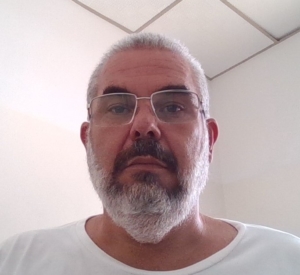 Adjunct professor at the Federal University of Recôncavo da Bahia. Graduated in Agronomic Engineering from the Federal University of Bahia (2005), master's degree in Agricultural Sciences from the Federal University of Recôncavo da Bahia (2007) and doctorate in Irrigation and Drainage from the University of São Paulo (2010). Has experience in the area of Agricultural Engineering, with emphasis on Irrigation and Drainage, acting mainly on the following themes: irrigation, sap flow, agricultural instrumentation.
Adjunct professor at the Federal University of Recôncavo da Bahia. Graduated in Agronomic Engineering from the Federal University of Bahia (2005), master's degree in Agricultural Sciences from the Federal University of Recôncavo da Bahia (2007) and doctorate in Irrigation and Drainage from the University of São Paulo (2010). Has experience in the area of Agricultural Engineering, with emphasis on Irrigation and Drainage, acting mainly on the following themes: irrigation, sap flow, agricultural instrumentation.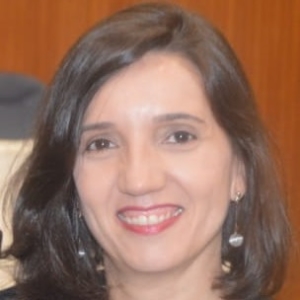 Graduated in Agronomic Engineering from the Federal Rural University of the Semi-Arid (1994), graduated in Agrarian Sciences from the Federal Rural University of Pernambuco (1998), master's degree in Agronomy (Soil Science) from the Federal Rural University of Pernambuco (1998) and PhD in Irrigation and Drainage from ESALQ / USP with an internship in the Doctorate-SWE modality at the University of Southern Queensland, Australia. She is Full Professor at the Colégio Agrícola Dom Agostinho Ikas (CODAI) at the Federal Rural University of Pernambuco (UFRPE) and a permanent professor in the Graduate Program in Agricultural Engineering at UFRPE. Has experience in the area of Irrigation, acting mainly in the following sub-areas: hydraulics, localized irrigation, salinity, design of irrigation systems.
Graduated in Agronomic Engineering from the Federal Rural University of the Semi-Arid (1994), graduated in Agrarian Sciences from the Federal Rural University of Pernambuco (1998), master's degree in Agronomy (Soil Science) from the Federal Rural University of Pernambuco (1998) and PhD in Irrigation and Drainage from ESALQ / USP with an internship in the Doctorate-SWE modality at the University of Southern Queensland, Australia. She is Full Professor at the Colégio Agrícola Dom Agostinho Ikas (CODAI) at the Federal Rural University of Pernambuco (UFRPE) and a permanent professor in the Graduate Program in Agricultural Engineering at UFRPE. Has experience in the area of Irrigation, acting mainly in the following sub-areas: hydraulics, localized irrigation, salinity, design of irrigation systems.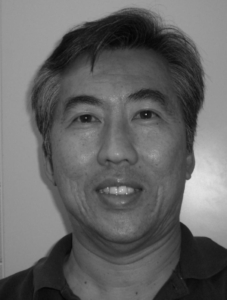 raduated in Agronomic Engineering from the University of São Paulo (1980), master's degree in Irrigation and Drainage from the University of São Paulo (1987) and doctorate in Agricultural Hydraulics - Universite de Montpellier II (Scien. Et Tech Du Languedoc) (1992). He is currently Full Professor at the State University of Campinas. He has experience in the field of Agricultural Engineering, with an emphasis on Soil and Water Conservation, working mainly on the following themes: applications of the TDR technique in irrigated soils, water and nutrient management in irrigation, no-till and irrigation.
raduated in Agronomic Engineering from the University of São Paulo (1980), master's degree in Irrigation and Drainage from the University of São Paulo (1987) and doctorate in Agricultural Hydraulics - Universite de Montpellier II (Scien. Et Tech Du Languedoc) (1992). He is currently Full Professor at the State University of Campinas. He has experience in the field of Agricultural Engineering, with an emphasis on Soil and Water Conservation, working mainly on the following themes: applications of the TDR technique in irrigated soils, water and nutrient management in irrigation, no-till and irrigation.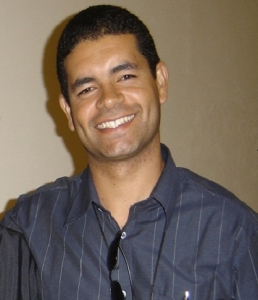 Studied doctoral and master's degrees in the Department of Agricultural Systems Engineering at ESALQ / USP in the area of irrigation and drainage. He did a sandwich doctorate at the National Center for Engineering in Agriculture at the University of Southern Queensland - Australia. He is an Agronomist by the Federal University of Alagoas. He is an agricultural technician at Escola Agrotécnica Federal de Satuba - AL. He works as a professor at the Federal University of Alagoas. He has experience and works in the areas of water and energy use efficiency in agricultural and forestry crops, Irrigation Engineering, Evaluation and Development of Irrigation Equipment, Forestry / Agricultural Experimentation, Ecophysiology, Mathematical Modeling, Energy Balance, Water Resources Management and Harnessing by-products in agriculture
Studied doctoral and master's degrees in the Department of Agricultural Systems Engineering at ESALQ / USP in the area of irrigation and drainage. He did a sandwich doctorate at the National Center for Engineering in Agriculture at the University of Southern Queensland - Australia. He is an Agronomist by the Federal University of Alagoas. He is an agricultural technician at Escola Agrotécnica Federal de Satuba - AL. He works as a professor at the Federal University of Alagoas. He has experience and works in the areas of water and energy use efficiency in agricultural and forestry crops, Irrigation Engineering, Evaluation and Development of Irrigation Equipment, Forestry / Agricultural Experimentation, Ecophysiology, Mathematical Modeling, Energy Balance, Water Resources Management and Harnessing by-products in agriculture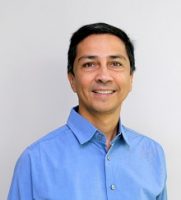 Agronomist, UNIVERSITY OF CHILE. Chile, 1996. Agricultural Sciences, UNIVERSITY OF CHILE. Chile, 1994. Irrigation Engineering, CEDEX; Ministry of Development. Spain, 1998. Engineering Sciences, Washington State University. United States, 2006; Research lines: Physiology and water relations in cultures; Irrigation schedule; Hydrical stress; Culture physiology; Abiotic stress; Agronomy of annual crops; Antioxidants in food; Oxidative stress; Functional and Healthy Foods; Plant physiology under stress and potential yield conditions; Phyto-remediation; Plant biotechnology.
Agronomist, UNIVERSITY OF CHILE. Chile, 1996. Agricultural Sciences, UNIVERSITY OF CHILE. Chile, 1994. Irrigation Engineering, CEDEX; Ministry of Development. Spain, 1998. Engineering Sciences, Washington State University. United States, 2006; Research lines: Physiology and water relations in cultures; Irrigation schedule; Hydrical stress; Culture physiology; Abiotic stress; Agronomy of annual crops; Antioxidants in food; Oxidative stress; Functional and Healthy Foods; Plant physiology under stress and potential yield conditions; Phyto-remediation; Plant biotechnology.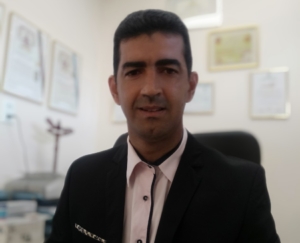 Graduated in Agronomic Engineering from the Federal University of Sergipe (2005), Master and Doctorate in Agricultural Engineering from the Federal University of Campina Grande, UFCG, completed in 2007 and 2010, respectively, both in the area of concentration of Irrigation and Drainage. Associate Professor II at the Federal University of Sergipe (UFS), Campus do Sertão, based at the Agronomy Graduate Center, and also a permanent professor at the UFS Graduate Program in Water Resources (PRORH). Has a CNPq productivity scholarship, level 2. Has experience in Agricultural Engineering, with an emphasis on Water and Soil Engineering, working mainly on the following topics: Ecophysiology and irrigated crop production; the sustainable management of water in the soil-plant-atmosphere system, especially from the cultivation of fruit species with the use of saline waters.
Graduated in Agronomic Engineering from the Federal University of Sergipe (2005), Master and Doctorate in Agricultural Engineering from the Federal University of Campina Grande, UFCG, completed in 2007 and 2010, respectively, both in the area of concentration of Irrigation and Drainage. Associate Professor II at the Federal University of Sergipe (UFS), Campus do Sertão, based at the Agronomy Graduate Center, and also a permanent professor at the UFS Graduate Program in Water Resources (PRORH). Has a CNPq productivity scholarship, level 2. Has experience in Agricultural Engineering, with an emphasis on Water and Soil Engineering, working mainly on the following topics: Ecophysiology and irrigated crop production; the sustainable management of water in the soil-plant-atmosphere system, especially from the cultivation of fruit species with the use of saline waters.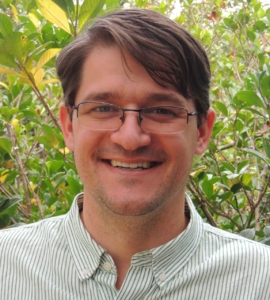 Graduated in Agronomic Engineering from the University of São Paulo (2004), where he completed his Master's in 2009 and his Doctorate in 2012, both in Sciences with Specialization in Irrigation and Drainage. Currently studying MBA in Project Management (USP-ESALQ). He held the position of professor at UFSCar and UFMT where he taught disciplines in the areas of Geoprocessing and Water Resources. They have experience with: Geoprocessing; Remote sensing; Hydrology; Water Resources Management. It operates mainly in the potential geographic distribution of agricultural pests and in hydrological modeling for water and soil conservation. He is currently a Geotechnology Analyst at Embrapa Territorial.
Graduated in Agronomic Engineering from the University of São Paulo (2004), where he completed his Master's in 2009 and his Doctorate in 2012, both in Sciences with Specialization in Irrigation and Drainage. Currently studying MBA in Project Management (USP-ESALQ). He held the position of professor at UFSCar and UFMT where he taught disciplines in the areas of Geoprocessing and Water Resources. They have experience with: Geoprocessing; Remote sensing; Hydrology; Water Resources Management. It operates mainly in the potential geographic distribution of agricultural pests and in hydrological modeling for water and soil conservation. He is currently a Geotechnology Analyst at Embrapa Territorial.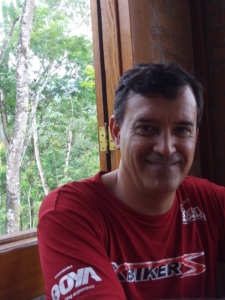 PhD in Sciences by the University of São Paulo (2010). Master's degree in Biology (Ecology) from the National Institute for Research in the Amazon (1992). Specialization in Remote Sensing Applied to Environmental Analysis by the University of Brasília, UnB. Graduated in Biological Sciences at the Federal University of Santa Catarina (1986). He is currently a researcher at the Brazilian Agricultural Research Corporation. He has experience in the area of Ecology, working mainly on the following themes: wetland, remote sensing, geoprocessing, environmental impacts, and use and conservation of water resources.
PhD in Sciences by the University of São Paulo (2010). Master's degree in Biology (Ecology) from the National Institute for Research in the Amazon (1992). Specialization in Remote Sensing Applied to Environmental Analysis by the University of Brasília, UnB. Graduated in Biological Sciences at the Federal University of Santa Catarina (1986). He is currently a researcher at the Brazilian Agricultural Research Corporation. He has experience in the area of Ecology, working mainly on the following themes: wetland, remote sensing, geoprocessing, environmental impacts, and use and conservation of water resources.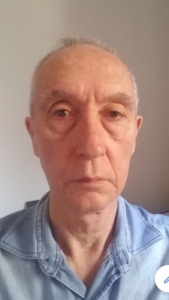 Agronomist from Esalq, class of 1974. Training in Irrigation. I started in drip irrigation in 1976. At that time there was no mention of irrigation and I started with drip irrigation. Several courses in Isrel, in valves, filters and hydraulics for irrigation.
Agronomist from Esalq, class of 1974. Training in Irrigation. I started in drip irrigation in 1976. At that time there was no mention of irrigation and I started with drip irrigation. Several courses in Isrel, in valves, filters and hydraulics for irrigation.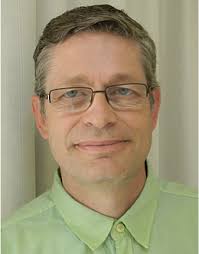 Graduated in Agricultural Engineering from Esalq- University of São Paulo (1983), master's degree (1997) and doctorate (2010) in Agricultural Engineering from the State University of Campinas. He is currently an agronomist at the State University of Campinas, based at the Faculty of Agricultural Engineering. It is linked to the areas of teaching, research and extension supporting activities in the Undergraduate Program (Ambience, Rural Infrastructure, Post-Harvest Technology) and in the Graduate Program (Rural Constructions, Post-Harvest Environment and Technology, Plant Physiology). Professor at the Faculty of Agribusiness of Holambra working in the areas of cultivation without soil, intensive cultivation, cultivation in a protected environment, post-harvesting of perishable products and management of rural properties. Vice-President of the Brazilian Committee for the Development and Application of Plastics in Agriculture and President of the Editorial Committee of Revista Plasticultura. Participation as an instructor or speaker in more than 150 courses or events in Brazil and abroad, aiming at technology transfer. Performance centered on the themes: protected cultivation, plasticulture, production systems, soilless crops, floriculture, olericulture, fruit growing, coffee, post-harvest, packaging, quality of agricultural products and management.
Graduated in Agricultural Engineering from Esalq- University of São Paulo (1983), master's degree (1997) and doctorate (2010) in Agricultural Engineering from the State University of Campinas. He is currently an agronomist at the State University of Campinas, based at the Faculty of Agricultural Engineering. It is linked to the areas of teaching, research and extension supporting activities in the Undergraduate Program (Ambience, Rural Infrastructure, Post-Harvest Technology) and in the Graduate Program (Rural Constructions, Post-Harvest Environment and Technology, Plant Physiology). Professor at the Faculty of Agribusiness of Holambra working in the areas of cultivation without soil, intensive cultivation, cultivation in a protected environment, post-harvesting of perishable products and management of rural properties. Vice-President of the Brazilian Committee for the Development and Application of Plastics in Agriculture and President of the Editorial Committee of Revista Plasticultura. Participation as an instructor or speaker in more than 150 courses or events in Brazil and abroad, aiming at technology transfer. Performance centered on the themes: protected cultivation, plasticulture, production systems, soilless crops, floriculture, olericulture, fruit growing, coffee, post-harvest, packaging, quality of agricultural products and management.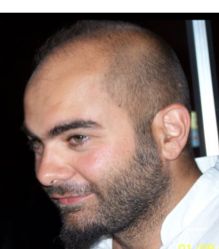 Department of Agriculture and Environmental Science - University of Bari – ITALY.
Skills and expertise: wastewater management, wastewater reuse, wastewater treatment, water quality, tree crops, irrigation scheduling, crop nutrition, field experiments, environmental impact assessment, soil analysis, salinity and standard statistical analysis. International experience in reuse of municipal wastewater.
Department of Agriculture and Environmental Science - University of Bari – ITALY.
Skills and expertise: wastewater management, wastewater reuse, wastewater treatment, water quality, tree crops, irrigation scheduling, crop nutrition, field experiments, environmental impact assessment, soil analysis, salinity and standard statistical analysis. International experience in reuse of municipal wastewater.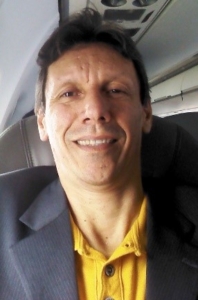 Brazilian, Christian, has a degree in Agronomic Engineering from the Federal University of Ceará (1986), a master's degree in Agronomy (Irrigation and Drainage) from the Federal University of Ceará (1992) and a doctorate in Agricultural Engineering from the Federal University of Viçosa (2000). He held the position of director of the Faculty of Technology Centec - FATEC of Limoeiro do Norte, belonging to the organizational structure of Instituto Centec, from 02/2007 to 03/30/2008. He was coordinator of undergraduate and specialization courses in irrigation technology at the Faculty of Technology Centec, in Sobral, Ceará. He has experience in higher education and coordination of research projects. Approved and coordinated the following projects: Training course on water resources management (Edital 048/2008 from CNPq), Training course on hydrometry and water resources management (Edital 037/2006 from CNPq), Laboratory of tests on irrigation equipment (FINEP / CNPq). Participated in exchanges at research institutions in Spain, Italy and France. He is a supervisor of undergraduate and master's students. Participated in several boards of completion of specialization courses, master's and doctorate. He works in the area of Agricultural Engineering, with an emphasis on Irrigation and Drainage, and in the area of Environmental Sciences, with an emphasis on water reuse and sustainability. He was an adjunct professor at the Federal University of Goiás, Campus Jataí, from April 2008 to June 2013 and held the position of coordinator in the Agronomy course from 9/24/2012 to 5/20/2013. He is currently an associate professor at the Federal University of Sergipe, assigned to the Agricultural Engineering course and accredited to the Graduate Program in Water Resources. He was chief editor of the Revista Brasileira de Agricultura Irrigada from 2007 to 2013. He is a member of the Institute for Research and Innovation in Irrigated Agriculture - INOVAGRI. Author of the books; Water Resources Management: concepts and experiences in hydrographic basins ; and "Hydraulics Applied to Agricultural Sciences".
Brazilian, Christian, has a degree in Agronomic Engineering from the Federal University of Ceará (1986), a master's degree in Agronomy (Irrigation and Drainage) from the Federal University of Ceará (1992) and a doctorate in Agricultural Engineering from the Federal University of Viçosa (2000). He held the position of director of the Faculty of Technology Centec - FATEC of Limoeiro do Norte, belonging to the organizational structure of Instituto Centec, from 02/2007 to 03/30/2008. He was coordinator of undergraduate and specialization courses in irrigation technology at the Faculty of Technology Centec, in Sobral, Ceará. He has experience in higher education and coordination of research projects. Approved and coordinated the following projects: Training course on water resources management (Edital 048/2008 from CNPq), Training course on hydrometry and water resources management (Edital 037/2006 from CNPq), Laboratory of tests on irrigation equipment (FINEP / CNPq). Participated in exchanges at research institutions in Spain, Italy and France. He is a supervisor of undergraduate and master's students. Participated in several boards of completion of specialization courses, master's and doctorate. He works in the area of Agricultural Engineering, with an emphasis on Irrigation and Drainage, and in the area of Environmental Sciences, with an emphasis on water reuse and sustainability. He was an adjunct professor at the Federal University of Goiás, Campus Jataí, from April 2008 to June 2013 and held the position of coordinator in the Agronomy course from 9/24/2012 to 5/20/2013. He is currently an associate professor at the Federal University of Sergipe, assigned to the Agricultural Engineering course and accredited to the Graduate Program in Water Resources. He was chief editor of the Revista Brasileira de Agricultura Irrigada from 2007 to 2013. He is a member of the Institute for Research and Innovation in Irrigated Agriculture - INOVAGRI. Author of the books; Water Resources Management: concepts and experiences in hydrographic basins ; and "Hydraulics Applied to Agricultural Sciences".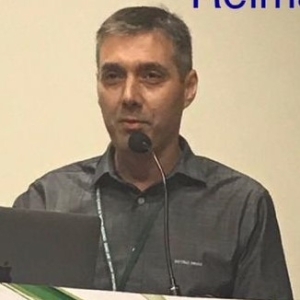 Graduated in Agronomy from the Federal University of Santa Maria (1982), with a master's degree in Agricultural Engineering from the Federal University of Santa Maria (1987) and a doctorate in Crop And Soil Science - Michigan State University, in 1993. He is a professor in the Department of Rural Engineering , from the Federal University of Santa Maria. He acts as a professor and advisor in the Postgraduate courses in Agricultural Engineering and Soil Science, with eleven Doctoral Theses and thirty-seven Master's Dissertations completed, in addition to permanent guidance from Scientific Initiation students. He is leader of the Research Group "Water management in agricultural systems", which has as main objectives the search for strategies that increase the efficiency of water and energy use in irrigated systems, through the investigation of a series of variables related to the conservation of water. water in agricultural systems.
Graduated in Agronomy from the Federal University of Santa Maria (1982), with a master's degree in Agricultural Engineering from the Federal University of Santa Maria (1987) and a doctorate in Crop And Soil Science - Michigan State University, in 1993. He is a professor in the Department of Rural Engineering , from the Federal University of Santa Maria. He acts as a professor and advisor in the Postgraduate courses in Agricultural Engineering and Soil Science, with eleven Doctoral Theses and thirty-seven Master's Dissertations completed, in addition to permanent guidance from Scientific Initiation students. He is leader of the Research Group "Water management in agricultural systems", which has as main objectives the search for strategies that increase the efficiency of water and energy use in irrigated systems, through the investigation of a series of variables related to the conservation of water. water in agricultural systems.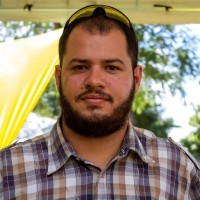 Commercial Technical Specialist Manna Irrigation at Rivulis Irrigation. Has experience in Hydraulics and Irrigation, acting on the following subjects: Fertilization, Irrigation, Biodiesel and Ethanol. Exchange in the second semesters of 2013 in Iowa - United States.
Commercial Technical Specialist Manna Irrigation at Rivulis Irrigation. Has experience in Hydraulics and Irrigation, acting on the following subjects: Fertilization, Irrigation, Biodiesel and Ethanol. Exchange in the second semesters of 2013 in Iowa - United States.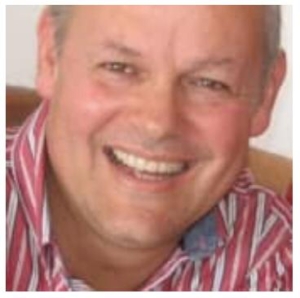 Associate Professor with Aggregation (Mediterranean Institute for Agriculture, Environment and Development). PhD: Modeling Soil Erodibility / Aggregation: Precision Agriculture (University of Évora, 1999). Degree: Agricultural Engineering (University of Évora, 1991); Optimization of resources in agriculture (smart agriculture) and reduction of its impacts (sustainability: environmental, landscape, biodiversity and social). Interests: Application of nearby (optical and geoelectric) and remote sensors (radar, optical, thermal and pollution satellites) to agriculture and the environment. Activities: Precision agriculture.
Associate Professor with Aggregation (Mediterranean Institute for Agriculture, Environment and Development). PhD: Modeling Soil Erodibility / Aggregation: Precision Agriculture (University of Évora, 1999). Degree: Agricultural Engineering (University of Évora, 1991); Optimization of resources in agriculture (smart agriculture) and reduction of its impacts (sustainability: environmental, landscape, biodiversity and social). Interests: Application of nearby (optical and geoelectric) and remote sensors (radar, optical, thermal and pollution satellites) to agriculture and the environment. Activities: Precision agriculture.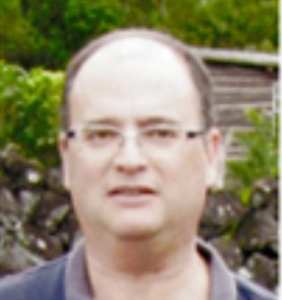 National Institute for Agricultural and Veterinary Research (INIAV) | INRB · National Institute for Agricultural Research (INIA). ACADEMIC QUALIFICATIONS: Degree in agronomy (ISA / UTL) 1990. Master in Plant Nutrition, Soil Fertility and Fertilization (ISA / UTL) 1995. PhD in Agronomic Engineering (ISA / UTL) 2003. FIELD OF SPECIALIZATION: Ecophysiology of vineyards and Nutrition of the vineyard. CURRENT RESEARCH AREAS: Water relations of the vine and responses to water stress, Measurement and Modeling of evapotranspiration, Micrometeorological methods (instant fluctuations) and sap flow, Conducting irrigation in vineyards and olive groves, Climate change, Desertification. OTHER ACTIVITIES: Coordinator of the editorial committee of the magazine Ciência e Técnica Vitivinícola e Perito of CNOIV (National Commission of the International Organization of Vine and Wine)
National Institute for Agricultural and Veterinary Research (INIAV) | INRB · National Institute for Agricultural Research (INIA). ACADEMIC QUALIFICATIONS: Degree in agronomy (ISA / UTL) 1990. Master in Plant Nutrition, Soil Fertility and Fertilization (ISA / UTL) 1995. PhD in Agronomic Engineering (ISA / UTL) 2003. FIELD OF SPECIALIZATION: Ecophysiology of vineyards and Nutrition of the vineyard. CURRENT RESEARCH AREAS: Water relations of the vine and responses to water stress, Measurement and Modeling of evapotranspiration, Micrometeorological methods (instant fluctuations) and sap flow, Conducting irrigation in vineyards and olive groves, Climate change, Desertification. OTHER ACTIVITIES: Coordinator of the editorial committee of the magazine Ciência e Técnica Vitivinícola e Perito of CNOIV (National Commission of the International Organization of Vine and Wine)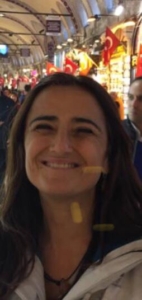 Postgraduate in GIS and Remote Sensing Applications for the Water Sector, UNESCO-IHE, Institute for Water Education, Delft, Netherlands, 2011. Postgraduate in Turfgrass Management, Guelph Turfgrass Institute, University of Guelph, Canada, 2010 PhD in Branch of Agricultural Sciences, Specialty Rural Engineering, from the University of Algarve, 2003. Master's degree in Irrigation and Water Resources Engineering from the Instituto Superior de Agronomia, Technical University of Lisbon, 1997. Degree in Horticultural Engineering, University of Algarve, 1990. Course of Operators in the Basic Sanitation Area by the University of Algarve, 1986. Research Area: Water needs of crops in the agricultural scope and in green spaces Reaction management of irrigation water; Efficient use of water and assessment of impacts and economic and environmental; Modeling water uses / consumptions at local and regional scale; Decision Support System for the design and conduct of irrigation systems; MIRRIG software for localized irrigation; Modeling to optimize water use in the irrigation plot. Research and Development Unit / Center: CTA - Science and Technology Center; LEAF - Research Center in Agronomy, Food, Environment and Landscape, Instituto Superior de Agronomia, University of Lisbon.
Postgraduate in GIS and Remote Sensing Applications for the Water Sector, UNESCO-IHE, Institute for Water Education, Delft, Netherlands, 2011. Postgraduate in Turfgrass Management, Guelph Turfgrass Institute, University of Guelph, Canada, 2010 PhD in Branch of Agricultural Sciences, Specialty Rural Engineering, from the University of Algarve, 2003. Master's degree in Irrigation and Water Resources Engineering from the Instituto Superior de Agronomia, Technical University of Lisbon, 1997. Degree in Horticultural Engineering, University of Algarve, 1990. Course of Operators in the Basic Sanitation Area by the University of Algarve, 1986. Research Area: Water needs of crops in the agricultural scope and in green spaces Reaction management of irrigation water; Efficient use of water and assessment of impacts and economic and environmental; Modeling water uses / consumptions at local and regional scale; Decision Support System for the design and conduct of irrigation systems; MIRRIG software for localized irrigation; Modeling to optimize water use in the irrigation plot. Research and Development Unit / Center: CTA - Science and Technology Center; LEAF - Research Center in Agronomy, Food, Environment and Landscape, Instituto Superior de Agronomia, University of Lisbon.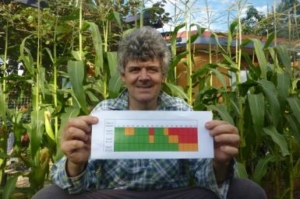 Richard is a principal research scientist at CSIRO Agriculture and Food, based in Canberra, Australia. Its mission is to apply transdisciplinary science in the context of agricultural development. Richard did his PhD in soil science and his research revolved around the use of water in agricultural systems at paddock and catchment scales. Richard is currently applying his knowledge of soil science and irrigation to specific problems faced by small farmers in developing countries. He developed a series of simple instruments to measure soil water and solutes that can structure the learning of farmers and their advisers.
Richard is a principal research scientist at CSIRO Agriculture and Food, based in Canberra, Australia. Its mission is to apply transdisciplinary science in the context of agricultural development. Richard did his PhD in soil science and his research revolved around the use of water in agricultural systems at paddock and catchment scales. Richard is currently applying his knowledge of soil science and irrigation to specific problems faced by small farmers in developing countries. He developed a series of simple instruments to measure soil water and solutes that can structure the learning of farmers and their advisers.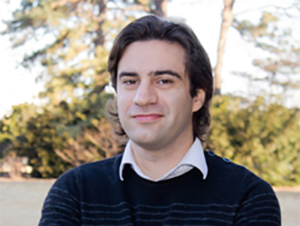 Associate professor at the Department of Agronomy and Horticulture at UNL. Specialization area: plant physiology, weeds and production systems. Agricultural Engineer Graduated from the University of Buenos Aires, Argentina (2005). Ph.D. (Agronomy). University of Nebraska-Lincoln (2010). Focus Area Cultivation systems. Research interests: Harvest physiology; Yield potential; Yield difference analysis; Efficiency in the use of resources and energy; Crop simulation models.
Associate professor at the Department of Agronomy and Horticulture at UNL. Specialization area: plant physiology, weeds and production systems. Agricultural Engineer Graduated from the University of Buenos Aires, Argentina (2005). Ph.D. (Agronomy). University of Nebraska-Lincoln (2010). Focus Area Cultivation systems. Research interests: Harvest physiology; Yield potential; Yield difference analysis; Efficiency in the use of resources and energy; Crop simulation models.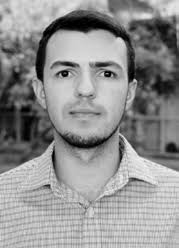 Bachelor and Degree in Geography from Universidade Federal Fluminense. Specialized in Urban-Environmental Dynamics and Territory Management by UERJ. Master in Ocean and Earth Dynamics from UFF (Concentration Area: Biogeochemistry). He has already received a scholarship in the area of General Geology from the Department of Geology (LAGEMAR / UFF) and a fellow in the area of Coastal Geomorphology from the Department of Geography (LAGEF / UFF), developing activities within the scope of the Physical Geography, Petrography, Sedimentology and Geoprocessing at UFF. He worked from March / 2009 to March / 2011 as a Specialist in Geoprocessing - in the Coordination of Geography (CGEO) of IBGE. Between March and December / 2011 he developed research activities at the Center for Studies and Housing and Urban Projects (NEPHU / UFF). Since January / 2012, he has worked at the Water Resources Planning Superintendence of the National Water Agency (SPR / ANA).
Bachelor and Degree in Geography from Universidade Federal Fluminense. Specialized in Urban-Environmental Dynamics and Territory Management by UERJ. Master in Ocean and Earth Dynamics from UFF (Concentration Area: Biogeochemistry). He has already received a scholarship in the area of General Geology from the Department of Geology (LAGEMAR / UFF) and a fellow in the area of Coastal Geomorphology from the Department of Geography (LAGEF / UFF), developing activities within the scope of the Physical Geography, Petrography, Sedimentology and Geoprocessing at UFF. He worked from March / 2009 to March / 2011 as a Specialist in Geoprocessing - in the Coordination of Geography (CGEO) of IBGE. Between March and December / 2011 he developed research activities at the Center for Studies and Housing and Urban Projects (NEPHU / UFF). Since January / 2012, he has worked at the Water Resources Planning Superintendence of the National Water Agency (SPR / ANA).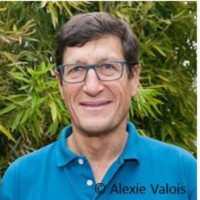 Working at INRAe (National Institute for Research in Agriculture, Agri-food and Environment), Manager of PReSTI (Research and Experimentation Platform and Science and Technologies for Irrigation) He is an agronomist involved in research and R&D in irrigation technologies and their performance improvement. His research focuses on the way in which these technologies are operated, in real weather conditions (sprinkling in windy areas) and water quality (drip irrigation with low quality water, sprinkling with treated sewage). It is linked to irrigation professionals through various associations: EIA (European Irrigation Association, manufacturers and installers), Afeid (French ICID office, agricultural water management professionals) and European specialist groups like EIP-WIRE. He is participating in the standardization effort in ISO TC23 SC18 (Irrigation techniques), ISO PC282 (Wastewater reuse) and in some aspects of TC144 (Machine safety).
Working at INRAe (National Institute for Research in Agriculture, Agri-food and Environment), Manager of PReSTI (Research and Experimentation Platform and Science and Technologies for Irrigation) He is an agronomist involved in research and R&D in irrigation technologies and their performance improvement. His research focuses on the way in which these technologies are operated, in real weather conditions (sprinkling in windy areas) and water quality (drip irrigation with low quality water, sprinkling with treated sewage). It is linked to irrigation professionals through various associations: EIA (European Irrigation Association, manufacturers and installers), Afeid (French ICID office, agricultural water management professionals) and European specialist groups like EIP-WIRE. He is participating in the standardization effort in ISO TC23 SC18 (Irrigation techniques), ISO PC282 (Wastewater reuse) and in some aspects of TC144 (Machine safety).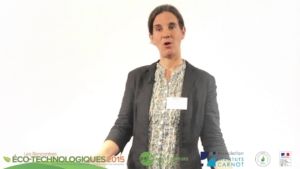 In an ecological engineering approach with a view to revegetation of places with strong conditions, such as urban ones, my previous research allowed to develop an alternative to the traditional grass of the Montpellier tram platform thanks to a set of soil cover symbiotic} savings in chips and inputs (water, fertilizers). My current work still focuses on saving water, more geared towards improving the efficiency of irrigation in agriculture (equipment and irrigation practices). Skills: Project Management, Irrigation Management and Optimization, Technological Innovation Marketing, Mines, Microsoft Word, Water Management, Microsoft PowerPoint, English, Marketing, R&D, Urban Environment, Environmental Enhancement of Microorganisms from Vegetable Interactions, Agronomy, Physics, PowerPoint, Search.
In an ecological engineering approach with a view to revegetation of places with strong conditions, such as urban ones, my previous research allowed to develop an alternative to the traditional grass of the Montpellier tram platform thanks to a set of soil cover symbiotic} savings in chips and inputs (water, fertilizers). My current work still focuses on saving water, more geared towards improving the efficiency of irrigation in agriculture (equipment and irrigation practices). Skills: Project Management, Irrigation Management and Optimization, Technological Innovation Marketing, Mines, Microsoft Word, Water Management, Microsoft PowerPoint, English, Marketing, R&D, Urban Environment, Environmental Enhancement of Microorganisms from Vegetable Interactions, Agronomy, Physics, PowerPoint, Search. Agronomist Doctor. PROFESSOR OF THE UNIVERSITY OF CASTILLA-LA MANCHA. AT the Regional Center of Estudios del Agua. Project manager SUPROMED "Sustainable production in environments with water limitations in the Mediterranean agroecosystem" financed by PRIMA (CE)
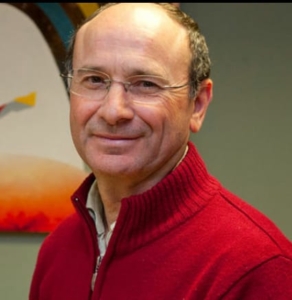 Dr. Agronomist Engineer, Professor of the Agroforestry Engineering Area at the E.T.S.I. Agronomists and Montes de Albacete, and Director of the Regional Center for Water Studies (CREA) of the University of Castilla-La Mancha. He has the professional experience of more than thirty years dedicated to teaching and research in the general problem of the use of water and energy in irrigation. The lines of research are mainly focused on water and energy management systems linked to irrigation in arid and semi-arid areas, acting on the improvement of the design and operation of water distribution systems and on-site irrigation (mainly by sprinkling and drip), developing models to help decision-making for the management of agricultural holdings as a sustainable activity, promoting Advisory Services to farmers and helping to make irrigated agriculture a sustainable activity. It is an applied research, developed in close collaboration with socioeconomic agents (farmers, manufacturers of irrigation equipment and other companies in the sector), integrated into a continuous process of transfer of results to technicians and users through scientific publications, courses, conferences and congresses at international level
Dr. Agronomist Engineer, Professor of the Agroforestry Engineering Area at the E.T.S.I. Agronomists and Montes de Albacete, and Director of the Regional Center for Water Studies (CREA) of the University of Castilla-La Mancha. He has the professional experience of more than thirty years dedicated to teaching and research in the general problem of the use of water and energy in irrigation. The lines of research are mainly focused on water and energy management systems linked to irrigation in arid and semi-arid areas, acting on the improvement of the design and operation of water distribution systems and on-site irrigation (mainly by sprinkling and drip), developing models to help decision-making for the management of agricultural holdings as a sustainable activity, promoting Advisory Services to farmers and helping to make irrigated agriculture a sustainable activity. It is an applied research, developed in close collaboration with socioeconomic agents (farmers, manufacturers of irrigation equipment and other companies in the sector), integrated into a continuous process of transfer of results to technicians and users through scientific publications, courses, conferences and congresses at international level Graduated in Geology from the Federal University of Ceará (1983), Master in Geosciences (Mineral Resources and Hydrogeology) from the University of São Paulo (1990) and Doctorate in Geosciences (Mineral Resources and Hydrogeology) from the University of São Paulo (1998). He is currently Associate Professor IV at the Federal University of Ceará, Professor of Undergraduate and Graduate Programs in the Department of Geology, Hydrogeology Line (Undergraduate) and Hydrogeology and Hydro-Environmental Management (Graduate - Master and Doctorate), Coordinator of the Hydrogeology Laboratory - LABHI / CC / DEGEO / UFC, created and leads the Hydrogeology and Water Resources Management Research Group CNPq / UFC, Member of the Review Board of the Revista de Geologia (DEGEO / UFC, Fortaleza). Participates in the Graduate Program of the Geosciences Institute of UFPA in the Hydrogeology Area in the Professional Master in Water Resources and in the Specialization Courses in Hydrogeology and Environmental Management and in Geomedicine. Professor of the subjects Hydrogeology I and Hydrogeology II (DEGEO / CC / UFC Graduation), Aquifer Management and Groundwater Pollution (Postgraduate in Geology DEGEO / CC / UFC). Has in the area of Geosciences, with emphasis on Hydrogeology, acting mainly in the following lines: Aquifer Management, Groundwater Pollution, Groundwater Quality, experience and Leasing of Tubular Wells.
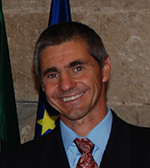 is a full Professor of Agricultural Economics in University of Cordoba where he is coordinating projects related to environmental management and biotechnology. He holds a PhD Agricultural Engineering (Univ. Córdoba) and a Master Agricultural Economics (Univ. Manchester). Publications are in the field of water, agricultural economics, agribusiness and environmental management. He has been consultant and technical assistance to the European Commission (DG ENV-Water), Ministry of Agriculture and Environment (Spain) and Junta de Andalucía for the implementation of Water Framework Directive and River Basin Management Plans. He combines hand-on experience in environmental and agribusiness management sector with academic and scientific involvement.
is a full Professor of Agricultural Economics in University of Cordoba where he is coordinating projects related to environmental management and biotechnology. He holds a PhD Agricultural Engineering (Univ. Córdoba) and a Master Agricultural Economics (Univ. Manchester). Publications are in the field of water, agricultural economics, agribusiness and environmental management. He has been consultant and technical assistance to the European Commission (DG ENV-Water), Ministry of Agriculture and Environment (Spain) and Junta de Andalucía for the implementation of Water Framework Directive and River Basin Management Plans. He combines hand-on experience in environmental and agribusiness management sector with academic and scientific involvement. Graduated in Agricultural Engineering from the Federal Rural University of Rio de Janeiro (UFRRJ). He holds a Master's Degree in Agricultural Engineering in the area of concentration in Water and Soil, from the Faculty of Agricultural Engineering (FEAGRI), UNICAMP. He holds a PhD in Sciences in the area of concentration in Irrigation and Drainage, by the School of Agriculture "Luiz de Queiroz" (ESALQ), USP. Acts as Adjunct Professor in the Engineering Department at UFRRJ. Has experience in the area of Agricultural Engineering, with emphasis on Irrigation and Drainage, acting mainly on the following themes: technology and irrigation management, sub-irrigation, fertigation and instrumentation in agriculture.
